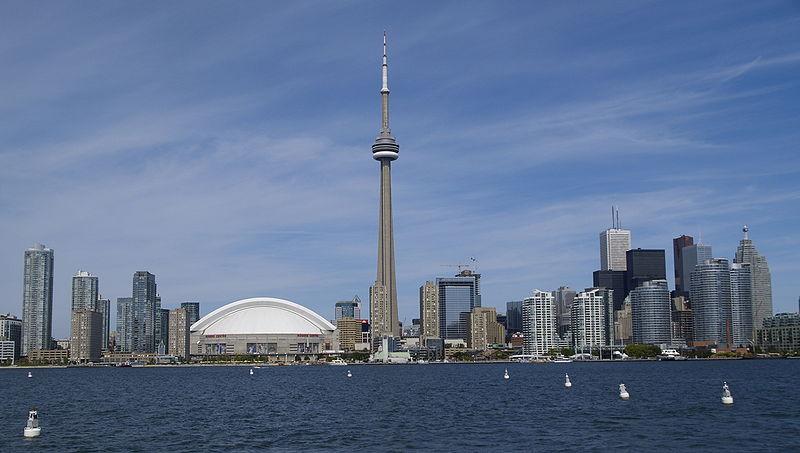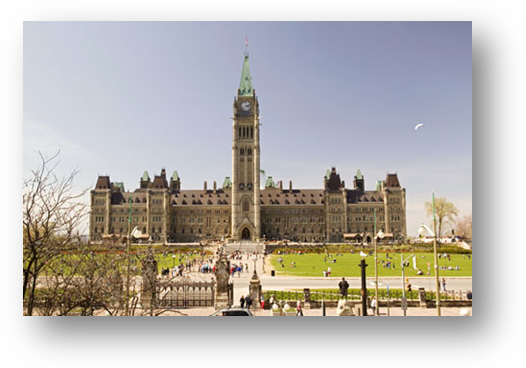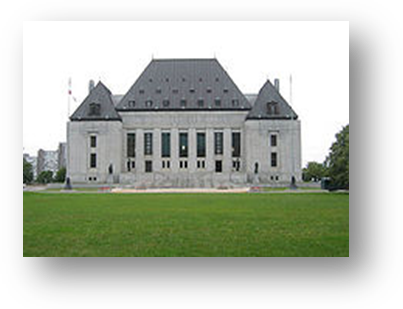
- •Предисловие
- •Раздел 1 – Исмагилова л.Р., Горелова ю.Н., Заляева е.О., Солодкова и.М.;
- •Справочник по грамматике английского языка Cуществительное (The Noun)
- •Общие сведения об артиклях
- •Неопределенный артикль
- •Определенный артикль
- •Определённый артикль употребляется:
- •Артикли не употребляются:
- •Употребление определенного артикля
- •Множественное число имен существительных
- •Исключения
- •Личные местоимения
- •Притяжательные местоимения
- •Отрицательные местоимения
- •Взаимные местоимения
- •Оборот There is / There are
- •Местоимения some, any, no и их производные.
- •Имя прилагательное (The Adjective)
- •Исключения
- •Наречие (The Adverb)
- •Глагол (The Verb)
- •Основные глагольные формы
- •Инфинитив
- •Причастие I
- •Формы причастия
- •Функции причастия I
- •Причастие II
- •Функции причастия II
- •1. Определением.
- •Герундий
- •Функции герундия
- •Повелительное наклонение.
- •Модальные глаголы и их эквиваленты
- •Условные придаточные предложения
- •Условные предложения 0 типа
- •Условные предложения I типа
- •Союзы условных придаточных предложений.
- •Правило согласования времен
- •Косвенные вопросы
- •Косвенные команды, просьбы
- •Интернет-ресурсы, использованные при составлении учебного пособия:
learningenglish1.ru
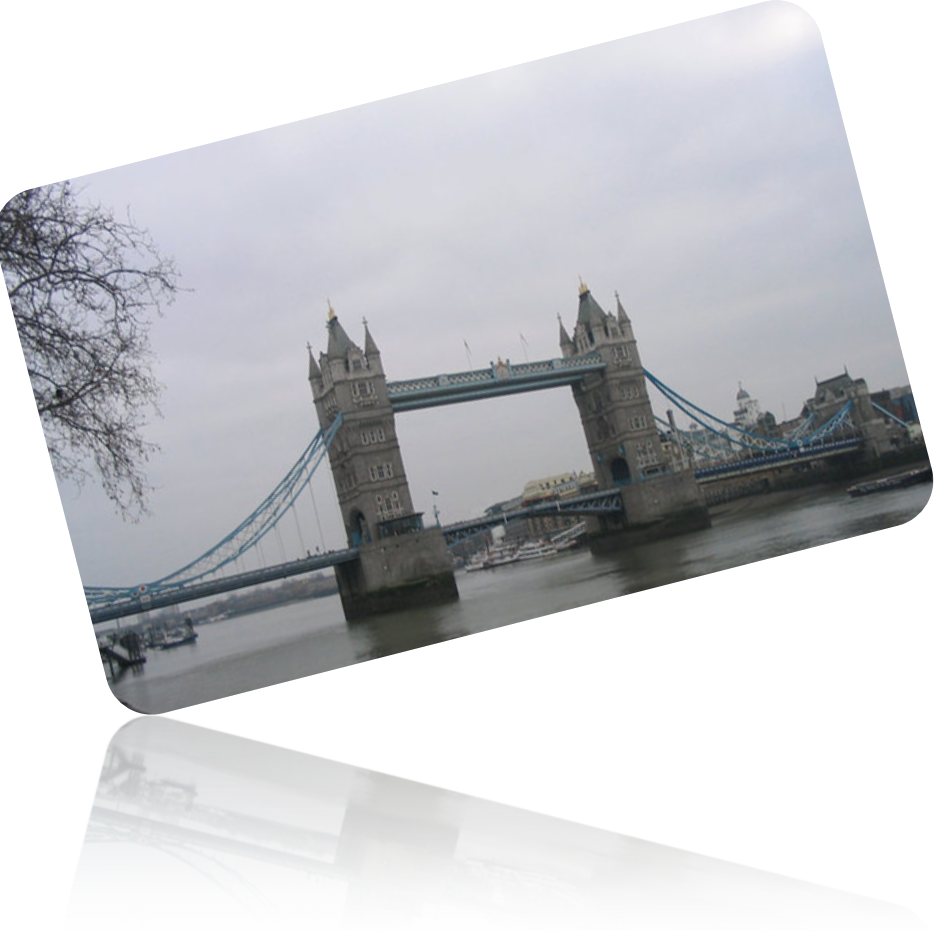
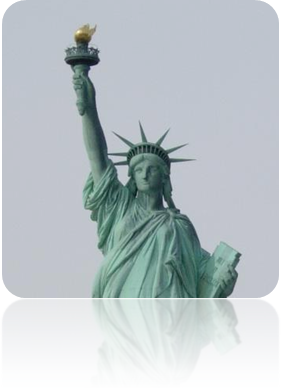
LEARNINGENGLISH1.RU
Рекомендовано
Учебно-методическим объединением по образованию
в области лингвистики Министерства образования и науки
Российской Федерации в качестве учебного пособия для студентов, обучающихся по экономическим специальностям и направлениям
Казань
2011
УДК 811.111:378
ББК Ш13(Англ)-923
Рецензенты:
А.Г. Садыкова, проф. Татарского государственного гуманитарно-педагогического университета, д-р филол. наук;
А.Р. Ахметшина, доц., помощник ректора КГФЭИ по международному сотрудничеству, к-т филол. наук
Learningenglish1.ru: учебное пособие / Е.М. Галишникова, Ю.Н. Горелова, Е.Е. Журавлева, Л.Р. Исмагилова, О.В. Полякова, Р.М. Марданшина, Л.В. Хафизова – КГФЭИ, 2011. – 195 с.
ISBN
Материалы учебного пособия направлены на формирование коммуникативной компетенции студентов средствами английского языка. Предлагаемые тексты и задания развивают навыки восприятия англоязычной речи на слух, способствуют овладению навыками чтения аутентичных источников, использованию речевых образцов, закрепляют умения самостоятельных высказываний в устной и письменной формах. Содержание учебного пособия отвечает требованиям, предъявляемым к оригинальным учебникам зарубежных издательств. Для него характерны: наличие словарного минимума в каждом учебном модуле, компактность подачи грамматического материала, наличие упражнений тренирующих различные виды чтения, профессионально-ориентированный материал для совершенствования навыков чтения, коммуникативная направленность тренировочных заданий, позволяющих студентам освоить активную лексику и приобрести навыки профессиональной деятельности, наглядность иллюстративного материала.
Для студентов экономических факультетов.
УДК 811.111:378
ББК Ш13(Англ)-923
ISBN Коллектив авторов, 2011
Предисловие
Данное учебное пособие предназначено для студентов экономических факультетов.
Целью учебника является формирование коммуникативной компетенции средствами английского языка, что включает знание лексических единиц, грамматических структур, стилистических особенностей английского языка в рамках определенного уровня владения (intermediate, upper intermediate), формирование навыков восприятия англоязычной речи на слух, овладение навыками чтения аутентичных текстов, использование речевых образцов, умения самостоятельно высказываться в устной и письменной формах.
Учебник состоит из четырех разделов, в каждом по три модуля, что помогает тематически структурировать материал. Каждый раздел предваряется заданием, которое вводит студентов в тематику последующего материала. Комплексный подход к созданию модулей позволил объединить все составляющие речевой деятельности: чтение, говорение, аудирование, письмо.
В модулях содержатся задания для индивидуальной работы, мотивирующие студентов к самостоятельной познавательной деятельности.
Особое внимание уделяется грамматической составляющей учебника. Компактное представление грамматического материала в форме таблиц осуществляется на основе тематики модуля с опорой на экономическую терминологию. Упражнения по грамматике учитывают особенности использования речевых клише в устной речи и тонкости их перевода на русский язык. Тренировочные упражнения обеспечивают эффективное повторение и закрепление материала.
Лексическая составляющая учебника представлена аутентичными текстами соответствующей тематики, что способствует организации разнообразных видов работы по формированию навыков чтения и говорения. В конце каждого модуля предлагается активный лексический минимум.
Тематика учебника включает: Getting acquainted (Family life, Daily routine, Job hunting), Native land (Russia, the Republic of Tatarstan, Kazan), English speaking countries (Across Britain, the USA, Canada), Higher education (Higher education in Russia, Higher education in Britain, Higher education in the USA), Texts for home reading, Grammar Reference.
Языковой материал наряду с общеупотребительной лексикой содержит экономическую терминологию, что позволяет студентам вести беседу на общие темы с элементами экономической направленности. Особое внимание уделяется аутентичным экономическим текстам для домашнего чтения с разнообразными заданиями (шестой раздел).
Грамматический справочник, включающий теоретическую и иллюстративную части, завершает представленный материал.
Материалы учебника прошли апробацию в Казанском государственном финансово-экономическом институте на кафедре иностранных языков в сфере экономики, менеджмента и бизнеса.
Разделы учебника разработаны преподавателями кафедры:
Раздел 1 – Исмагилова л.Р., Горелова ю.Н., Заляева е.О., Солодкова и.М.;
Раздел 2 – Борзова М.В., Валеева Л.А., Журавлева Е.Е., Сиразеева А.Ф., Хафизова Л.В.;
Раздел 3 – Галишникова Е.М., Уразметова Д.И., Абдуллина Л.Г., Калганова Г.Ф., Марданшина Р.М., Соколова Т.А.;
Раздел 4 – Кудрявцева М.Г., Полякова О.В., Григорьева Е.В., Денисова В.С., Тарасова Е.В.;
Раздел 5 – Большакова Ю.А., КудрявцеваМ.Г.;
Раздел 6 – Хусаинова А.А.
Редакционная коллегия: профессор, д.п.н. Галишниковой Е.М., доценты к.филол.н. Горелова Ю.Н., к.п.н. Журавлева Е.Е., к.с.н. Исмагилова Л.Р., к.с.н.Полякова О.В., ст. преподаватели к.п.н. Марданшина Р.М., Хафизова Л.В.
CONTENTS
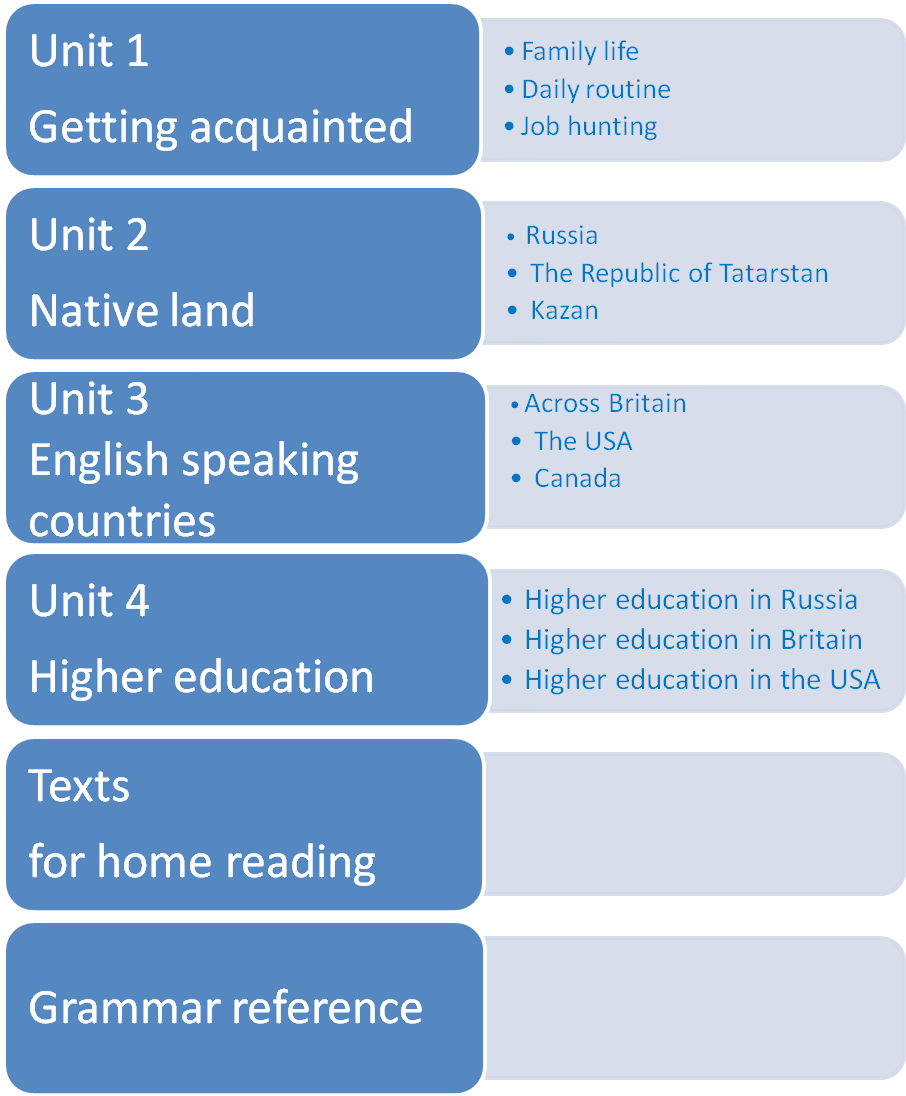
UNIT 1
GETTING ACQUAINTED
Module 1 Family Life
P REVIEW
REVIEW
Look at the picture and answer the questions below.
Who are those people in the picture?
Do they know each other?
Why do you think so?
How are they related to each other?
Can you predict their relationships?
6) Is it difficult for you to start a talk with an unknown person?
Which of the following happens to you for the first time when you meet someone?
I talk too much because I am nervous.
I don’t speak at all because I can’t think of anything to say.
I smile a lot so that the other person likes me.
I act in exactly the same way as I would with a person I know.
Can you remember when and where you met some of the following people for the first time?
|
|
LANGUAGE SKILLS 1: STARTING A CONVERSATION
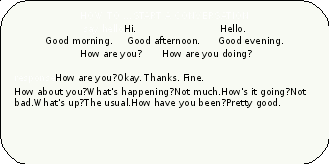
A. When you start a conversation try to reply in a way that develops the conversation. Match the question with an appropriate reply.
-
How are you?
Thanks. I bought it from Harrods.
Nice to see you again.
Yes, I think we last met two years ago in Manila.
It's been a long time, hasn't it?
Yes, awful. I think it's rained every day since I arrived.
Nice weather today, isn't it.
Fine thanks. And you? You're looking well.
Terrible weather isn't it.
Yes, I did thanks. It was very useful.
That's a nice shirt/blouse.
Yes, it is, isn't it? Not like the coffee you get in Italy.
This coffee's a bit weak.
Yes, lovely. I hope it stays like this for the weekend.
Did you get that mail I sent you?
Nice to see you too. How are you?
B. Now try to go around a class, greet and start a conversation.
LANGUAGE SKILLS 2: INTRODUCING YOURSELF & PEOPLE
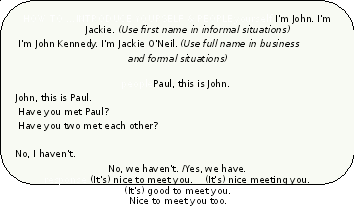
C. Practice introducing yourself, friends and groupmates. Remember to smile (and use handshakes where appropriate).
After you have been introduced to someone, it is polite to ask a few general questions to get acquainted. For example:
Where are you from, Carol?
I'm from Connecticut.
Connecticut, which part?
Hartford, the capital. How about you, Ben?
Nebraska - a place called Bellevue. It's near Omaha.
How do you know Alan (A)?
He is my friend from college.
When meeting someone for the first time, it is not appropriate to ask certain types of questions. Do NOT ask: A person's age, Birth date, Salary, Weight, Marital status. You may ask general questions about the situation. For example:
How do you know Alan (the person who introduced us)?
Are you a student at this university?
Is this your first time here?
What do you do for a living?
How long have you been working for (company)?
LANGUAGE SKILLS 3: CLOSING A CONVERSATION
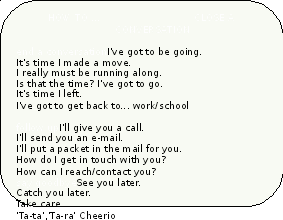
D. How would you close a conversation in the following situations?
You are in a hurry to leave. What do you say?
You really don't want to leave, but you can see the other person needs to go.
You’ve just met someone at a party, but you have to leave the party early.
You are "seeing someone off" at the airport/train station.
E. A host (H) and a guest (G) are sitting in the airport lounge after a successful business meeting. Role-play the dialogue according to the model given below.
G: Start a 'leaving' dialogue
H: Reply to the guest
G: Say why you must leave
H: Show interest in the guest’s plans
G: Give more information
H: Make a final reference to business
G: Thank the host for his/her help
H: Reply - say it's been a pleasure
G: Make a second reference to leaving
H: Wish the visitor a good trip and send your regards to someone
G
Revise
new vocabulary after one
hour.
Revise it again after one
day and
again after one
week.
Most people need to see or hear new vocabulary at least six times
before they can remember it!
Tell
your classmates about the different ways that you revise
vocabulary.
VOCABULARY 1: JOBS
Match professions with their definitions.
Professional people
|
architect |
teaches in a university |
|
lawyer |
plans for buildings of roads, bridges, machines, etc |
|
engineer |
controls the financial situation of people and companies |
|
accountant |
designs buildings |
|
university lecturer |
buys and sells stocks and shares |
|
broker (stock market) |
works for the government |
|
civil servant |
represents people with legal problems |
Medical professions
|
doctor |
animal doctor |
|
nurse |
operates on people |
|
surgeon |
gives medical treatment and tries to solve medical problem |
|
dentist |
helps people to solve personal problems |
|
vet |
practices dentistry |
|
psychologist |
looks after and takes care of others |
Manual jobs (these jobs are done with hands and all the examples given
below are skilled jobs and need a lot of training)
|
bricklayer |
makes things using wood |
|
carpenter |
repairs cars |
|
plumber |
fits and repairs electrical things |
|
electrician |
builds walls |
|
mechanic |
fits and repairs water pipes, bathrooms etc. |
Armed forces and emergency services
|
soldier |
serves in the navy |
|
sailor |
is in the police service |
|
pilot |
works in the fire brigade |
|
police officer |
serves in the army |
|
firefighter |
flies the aircraft |
Write down at least one job from the list that would probably be impossible for these people.
Someone who didn’t go to the university
Someone with very bad eyesight (cannot see very well)
Someone who is always seasick on a boat
Someone who understands nothing about cars.
Someone who will not work in the evening or at weekends.
Someone who is afraid of dogs.
Someone who is afraid of heights and high places.
Someone who is terrible at numbers and figures.
Someone who can’t stand the sight of blood.
Someone who is a pacifist, who is anti-war.
You have just bought a piece of land and you are planning to build a house on it. Write down at least six people that you may need to help you. What would you need their help for?
VOCABULARY 2: FAMILY & FRIENDS
Discuss.
Where were you born and brought up?
Who is the core of your family?
How many people form a family?
What’s the ideal age to start up a family life?
Does any ideal family exist?
Study the following.
Relatives = members of your family
|
|
male |
female |
|
Your parents' parents |
grandfather |
grandmother |
|
Your parents' brother and sister |
uncle(s) |
aunt(s) |
|
Your aunt's/uncle's children |
cousin(s) |
cousin(s) |
|
The father and mother of the person you marry |
father-in-law |
mother-in-law |
|
The brother and sister of the person you marry |
brother-in-law |
sister-in-law |
|
Your brother's/sister's children |
nephew(s) |
niece(s) |
|
The person you marry dies, so you are a ... |
widower |
widow |
|
Your mother or father remarries, so you have a… |
step-father |
step- mother |
Family background = family history
My grandfather was a market gardener in Ireland. He grew flowers, fruit and vegetables, and sold them in the market every day. He worked hard all his life, and when he died, his son (now my uncle) and daughter (my mother) inherited a large house and garden (= received this house and garden from my grandfather when he died). They carried on the business together until my mother met my father. He was three years her senior. (She was 3 years junior to him). They got married, moved to England, and I was born two years later. They didn't have any more children, so I am an only child.
Family names
When you are born, your family gives you a first name, e.g. James, Kate. Sarah and Alex are common first names in Britain. Your family name (also called your surname) is the one that all the family share e.g. Smith, Brown, Jones, and O'Neil are common surnames in Britain. Some parents give their children a middle name (like a first name), but you do not usually say this name. Your full name is all the names you have, e.g. Sarah Jane Smith.
Changing times
Society changes and so do families. In some places, people may decide to live together but do not get married. They are not husband and wife, but call each other their partner. There are also many families in some parts of the world where the child or children live(s) with just their mother or father; these are sometimes tailed single-parent families.
Friends
We can use a number of adjectives before friend:
an old friend (= someone you have known for a long time)
a close friend (= a good friend; someone you like and trust)
your best friend (= the one friend you feel closest to)
We use the word colleagues to describe the people we work with.
Ex-
We use this for a husband/wife/boуfriend/girlfriend we bid in the past but do not have now: The children stay with my ex-husband at the weekend. I saw an ex-girlfriend of mine at the disco last night.
Look at the family tree and complete the sentences below.
Albert & Mary Dodds




J




 ohn
= Susan Jill = Paul (died 1995) Barry = Sheila
ohn
= Susan Jill = Paul (died 1995) Barry = Sheila
Eve Ana Timothy Tom
|
10) The only two people who are not related are…and…. |
Correct the mistakes.
My full name is Katy.
Unfortunately my family is full, I live with my mum only.
There are so many helpful close friends in my office.
My partner (the man I got married with) has brought a wonderful bucket of flowers on our anniversary.
I divide the flat with my brother.
I’ve got a niece, son of my brother, who we name John.
We have so many best friends working with the hospital that I had to become a doctor.
His wife died last year so he is an ex-husband now.
She is my senior, so she does what she’s told.
As their uncle had no other relatives they were granted the house after his death.
PHRASAL VERBS
Work with a partner. What is a phrasal verb? What makes it different from other verbs? Choose the correct alternative to complete the sentences.
I grew up/down in Brazil.
The children were brought down/up by their aunt.
My brother always told me off/on for borrowing his records.
You really take before/after your father. You are always complaining.
My sister looked after/before me when I was ill.
I don’t get on/off very well with my mother.
I still look down/up to my older brother, and ask him for advice.
We carried off/on arguing until they left home.
Use the sentences in Ex. A to help you match the phrasal verbs from A with the definitions from B.
|
A |
B |
|
to grow up |
to admire and respect someone |
|
to bring up |
to continue (doing something) |
|
to tell (someone) off |
to develop from being a child to being an adult |
|
to take after (someone) |
to take care of (someone or something) |
|
to look after (someone or something) |
to talk angrily to someone because they have done something wrong |
|
to get on with (someone) |
to have a friendly relationship with someone |
|
to look up to (someone) |
to look or behave like another member of your family |
|
to carry on (doing something) |
to care for children until they are adults |
Complete the text using the correct form of the phrasal verbs in Exercise B.
I was brought up in a small town near Paris. My parents are English, so I (1) speaking English and French. A young English student lived with us during the school holidays, and she (2) me when my parents were away on business. I remember my father always (3) us (4) in English when he couldn’t hear us, because it was easier for both of us. She was an artist and we (5) very well. I (6) her, and later tried to become a painter myself. Unfortunately, I (7) my father, who wasn’t artistic, and so I was never successful.
D. Answer these questions about yourself and your region.
What is your first name? What is your surname? Is that a common name in your region?
Are you an only child?
Where did you grow up?
Who is your oldest friend?
How many of your ex-classmates are still your friends?
As a child, did anyone tell you off? Why? Did this make you stop or did you carry on anyway?
Which member of your family do you get on with best?
Who in your family do you take after?
Who looks after you when you are ill?
As a child, who did you look up to?
Are single parent families becoming more common in your region?
In your region, do more and more people live together without getting married?
When you bring up a child, what do you think is the most important thing to teach him/her?
E. Draw your own family tree and write a short summary of your family background.
READING: MODERN FAMILIES
Who do you live with? Do other members of your family live near you, or do you have to travel to see them?
Match the words to the definitions.
|
to get divorced divorce n |
someone that is married to one of your parents, but isn't your parent |
|
second wife/second husband |
to (make something) become larger in amount or size |
|
step mother/stepfather |
legally end someone’s marriage (the legal ending of a marriage) |
|
half-sister/half-brother |
having qualities that are typical of most people or things |
|
to go to see |
two people who are married or in a romantic or sexual relationship, or two people who are together for a particular purpose |
|
suburbs (in the suburbs) |
a flat |
|
average |
the outer area of a town, rather than the shopping and business centre in the middle |
|
apartment |
to visit |
|
couple |
someone that you marry when you have already been married to someone else before |
|
to increase |
someone who has the same mother, or the same father, as you, but not both parents |
C. Read the text and find out how many people Callum, Meera, Веn and Trudy share a house with.
Modern families
What is a "traditional" family nowadays? With more and more couples choosing not to get married, and with the number of divorces and second marriages increasing, the idea of the "traditional family" (two married parents, an average of two children, grandparents living nearby) is rapidly disappearing in some countries.
Here are some stories of people around the world telling about their families.
I'm Callum, and I live with my parents in Cambridge, in the east of England. We moved here when I was five because of Dad's job, but my mum comes from the north of England, and Dad comes from Scotland I've got a grandma in Edinburgh and a granddad in Yorkshire. And I've got two cousins who live near London, because that's where Dad's sister and her husband live. We see my cousins about three times a year, and we go up to Edinburgh every New Year, but I can't remember when I last saw my granddad in Yorkshire. He always sends me presents, though!
Mу name's Meera, and I live in Wolverhampton, near Birmingham, in England. I live with my parents, my brother and my sister. My grandmother lives next door. My mum was born here in Britain, but my grandmother moved here from India in the 1960s when my dad was a little boy. My dad has two sisters - Auntie Sunita and Auntie Rani. Auntie Sunita lives in the same street as us, and Auntie Rani lives in Birmingham, which is only 15 miles away. They're both married, and I've got five cousins. We see them almost every week. Someone is always visiting our house, or we go to Birmingham to see them. And two years ago we all went to India to see our family there.
I`m Ben, from Portland, Oregon, and my family is a bit complicated! I've got a sister called Ella, but three years ago my parents got divorced and now both of them are re-married. We live with my mom, Julie, and my stepfather, Bob. Bob's got a daughter called Daisy, but she doesn't live with us, she lives with her mom. My father's name is Pete. He and his second wife have just had a baby boy, Charles, so I've got a new half-brother!
May name's Trudy and I've got a sister called Beth. Our mum and dad are divorced, so we live with just our mum in the suburbs of Melbourne, Australia. Our dad has an apartment in the centre of town, and we spend every other weekend there. After school every day we go to our grandma's house and have a meal there, because our mum doesn't finish work until six o'clock. She collects us at half past six, except on Wednesday evenings when we go swimming with our dad.
D. Underline the correct alternatives to complete the sentences.
Callum's aunt and uncle/grandparents live near London.
Callum often/sometimes sees his cousins.
Meera's aunts both live near/far away.
Meera often/rarely sees her cousins.
Daisy is Ben's half-sister/stepsister.
Julie is Pete's ex-wife/stepmother.
Trudy’s mum and dad live in different places/together.
Trudy never sees her dad/sees her dad regularly.
E. Translate sentences into English using underlined words from the text.
Они были такой красивой парой, очень жаль, что они развелись.
Так как мой друг живет по соседству, мы часто ходим в гости друг к другу.
Я навещаю бабушку трижды в неделю, потому что она живет всего лишь в 100 километрах от Казани.
В пригороде Уфы открылся новый центр семейного досуга, куда мы ходим каждые выходные.
После развода мой сводный брат остался жить с отчимом.
В нашей группе в среднем по одному ребенку в семье.
Вторая жена моего отца переехала в Питcбург, откуда она родом.
После учебы мы ходим домой вместе, поскольку живем на одной улице.
SPEAKING
Read the statistics about families in the USA and the UK. How do you think the same statistics would be different in Russia?
What’s your opinion of the current situation with the family life in our country? Is it different from the situation twenty years ago? If yes, what are the possible reasons for that? And how could it be changed?
|
Families |
in the USA |
in the UK |
in Russia |
|
Marriages that end in divorce |
50% |
33% |
|
|
Families with only parent |
25% |
25% |
|
|
Children who live in a single-parent home at some time |
50% |
33% |
|
|
Children whose parents aren’t married |
33% |
40% |
|
|
Single parents who are men |
10% |
10% |
|
GRAMMAR: PRESENT TENSES
|
Present Simple | |
|
Formation |
V1, V-s/-es (for 3d person Singular) He reads newspapers every day. They always walk a dog in the morning. |
|
Question form |
do/does Does he read newspapers every day? Do they walk a dog in the morning? |
|
Negative form |
do + not (don’t)/does + not (doesn’t) He doesn’t read newspapers every day. They don’t walk a dog in the morning. |
|
Usage |
routine, habits, universal truth, facts |
|
Signal words |
always, often, rarely, never, usually, every day, sometimes |
|
Present Progressive | |
|
Formation |
be (am, are, is) + Ving My nephew is sleeping now. Twin-brothers are playing football in the yard. |
|
Question form |
be (am, are, is) + subject +Ving Is my nephew sleeping now? Are twin-brothers playing football in the yard? |
|
Negative form |
be (am, are, is) + not + Ving My nephew isn’t sleeping now. Twin-brothers aren’t playing football in the yard |
|
Usage |
action going on at the moment of speaking, temporary event or situation, future arrangements describing a state which is changing |
|
Signal words |
now, at the moment, currently, at this period, Look! Listen! |
|
Present Perfect | |
|
Formation |
have/has + V3 I have just called my sister-in-law. She has dyed her hair red. |
|
Question form |
have/has + subject+V3 Have I just called my sister-in-law? Has she dyed her hair red? |
|
Negative form |
have/has + not + V3 I haven’t just called my sister-in-law. She hasn’t dyed her hair red. |
|
Usage |
action started in the past and continues into the present, recent events with visible result, past events without specific time |
|
Signal words |
just, yet, still, already, never, ever, so far, up to now, recently, since, for |
Find the examples of Present tenses in the text “Modern families”.
B. Open the brackets paying attention to the usage of Present Simple (negative/question/affirmative forms).
My niece never (to eat) snacks.
They (to be) ex-spouses.
His uncle always (to invite) us to drink tea in his garden.
My aunt (to have) two children but I (to be) an only child in the family (not to have) anyone to play with.
My colleagues (to enjoy) playing tricks on me.
Her ex-husband (to have) another family?
He (not to play) with us, he (to prefer) dealing with his flowers.
Secretaries of Indigo, plc always (to call) the partners of the company at 10 a.m.?
It is said that widows always (to wear) black clothes.
Belgian chocolates (to taste) marvelous?
C. Choose the best alternative between Present simple and Present Perfect.
Marcel and André are/have been friends of mine for more than 10 years.
They are about to divorce I never understand/have never understood why they don't take measures.
As I have mentioned/mention before, we can't go on like this.
My granny keeps saying to my little brother that the sun has risen/rises in the east.
My parents are/have been there five times.
Research shows/has shown that most internet surfers are women.
Do you visit/have you visited your stepmother often?
Have you heard/do you hear they want to divorce and start a new life separately?
His middle name has sounded/sounds funny.
Their cousins own restaurant business but they have had/have some losses recently.
D. Decide whether the verbs in these sentences are right or wrong, mind the usage of Present Progressive and Present Simple tenses.
Look your cousin is climbing up the tree over there.
Can you here those people? What do they talk about?
Are you believing that your best friend spreads gossips about you?
Look! That man tries to open the door of your car.
My brother attends a kindergarten.
I’m thinking it would be a good idea to visit grandfather in June.
The government is worried because the number of single-parent families is increasing.
I’m usually going to my girlfriend by car.
Mothers are always caring about their children. No matter that they are 25 or 40 years old.
I know my step father’s telephone number, so, I can easily phone him but I don’t want to.
E. Supply the suitable form of present tenses.
Hurry! The bus (to come). We can’t be late, granny (to phone) already.
Grandfather usually (to grow) vegetables in his garden but this year he (not to grow) anything because of his disease.
A: Can you drive? B: No, but I (to learn). My father-in-law (to teach) me.
George (my cousin) says his girlfriend is 26 years old but I (not to believe) him. She actually (to look) younger.
My parents (to live) in London. They (never to live) anywhere else. Where your parents (to live)?
My close friend is a teacher. He (to work) in different places, but he (not to work) at the moment.
She (to stay) with her sister at the moment until she finds somewhere to live.
I think I (to learn) all fairy tales my granny (to read) to me.
Daddy, (ever to snow) in India?
Why you (to want) to punish me? I (not to break) that china vase.
LISTENING
(Across Cultures, 1c, Track 2)
A. Listen to James describing his family situation and answer the questions.
Who are: Rachel? Louise? Richard?
What is James's opinion of Richard?
Who is the oldest child in the house?
Why doesn't James like Louise's behaviour?
What does their mum say when James and Rachel complain about Louise?
What happens when they have an argument with Louise?
Look at the verbs expressing attitude. Describe relationship between James, Louise and Richard.
|
core verb |
positive |
negative | ||
|
to like |
to love |
to dislike | ||
|
to respect |
to fancy |
can’t stand | ||
|
to attract |
to look up to |
to look down on | ||
|
to be attracted to |
to turn smb on |
to hate | ||
|
|
|
to turn off | ||
C. Describe the relationship between you and your parents, within your group, with your neighbour(s).
D. Discuss what you think James should do about his family situation (use new expressions).
OVER TO YOU
Fill in the gaps with the most suitable words using the information from the sites:
http://www.learnenglish.de/basics/appearances.htm;
http://www.learn-english-online.org/Lesson42/Like.htm.
Diana, the Princess of Wales, was a(n) …, …. woman. She had … skin and …, … eyes. Her hair was neatly cut and … in length.
Princess Diana was always … and liked … clothes which were usually made by famous designers. However, when she was on holiday with her children she enjoyed wearing … clothes.
During her appearances with Princes Charles she was very … and didn’t speak much. Later on, however, she became more …. Unlike most members of the Royal Family, she was involved with ordinary people. She was a very … person who supported various charities.
B. Imagine, that your cousin/uncle/aunt/mother etc. must go to London on a business trip. Describe his/her appearance to the person who has to meet him/her.
WRITING: APPLICATION FORM
Study the typical questions for Application Form.
|
Surname |
Smith | |||
|
First name |
John |
Initials JS | ||
|
Age |
25 |
Sex: female male (please tick) | ||
|
Marital status |
single married divorced widow/widower (please tick) | |||
|
Date of birth |
7 May 1992 | |||
|
Country of Birth |
United Kingdom |
Place of Birth: Bristol | ||
|
Next of Kin |
Susan Smith | |||
|
Address |
23 Southfield Road, Purbey, Westshire | |||
|
Postcode |
PU23 4HJ | |||
|
Telephone |
0560 152439 | |||
|
E-male address |
jsmith@internetsp.com | |||
You are going to visit your grandmother living abroad. You will need to fill in the application form similar to the one above. Write your answers.
WORD FILE
|
Unit 1 Module 1 | ||
|
nurse surgeon dentist vet psychologist manual jobs bricklayer carpenter plumber electrician mechanic architect lawyer engineer accountant university lecturer broker (stock market) civil servant soldier sailor police officer firefighter
grandfather/grandmother uncle(s)/aunt(s) cousin(s) father/mother/ brother/sister-in-law nephew(s)/ niece(s) widower/widow step-father/mother only child a first/family/middle/full name
|
partner single-parent family an old/close/best friend colleague ex wife/husband /girlfriend second wife/husband stepmother/-father/ -sister/-brother half-sister/brother couple husband/wife common name
to grow up to bring up to tell smb off to take after smb to look after smb or smth to get on with smb to look up to smb to carry on (doing smth) to get divorced to turn smb on/off
to inherit to get married to share to call divorce (n, v) to be smb’s junior/ senior/I'm senior to her
|
to fancy to like/dislike to hate to adore to idolize can't stand to respect to look up to to admire to look down on to despise to attract/ to be attracted to
apartment to increase nearby because of to come from (three) times a year to live next door in the same street (15) miles away to move every other weekend to go to see suburbs (in the suburbs) average
|
M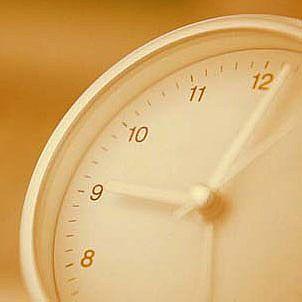
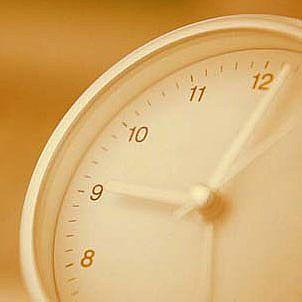 odule
2 Daily Routine
odule
2 Daily Routine
PREVIEW
Discuss.
Do you work or study long hours/at weekends/ at nights?
What is your favorite time of the day/week? Why?
What is your least favorite time of the day/week? Why?
What is a typical day like for you?
What do you do in your free time?
Here are some verb phrases connected with daily routine.
|
chat on the phone go to the cinema get up early go to bed late stay in bed late have breakfast/lunch/dinner watch TV drive a car check your e-mails do sport go for a walk go clubbing play bowling do nothing catch a bus/train/taxi study hard eat out stay in |
C. Look at the verb phrases in the box above. In your copybooks:
write the things you do every day
write the things you only do at weekends
write the things you sometimes do
write the things you never do
D. Write more verb phrases of things you do
every day
only at weekends
E. Compare your list from D with a partner. Do you do the same things?
GRAMMAR 1: PREPOSITIONS OF TIME
|
IN |
ON |
AT | ||
|
in + year/month/season in 1988 in September in winter in the 21st century |
on + day/date
on Wednesday on 15 April on that day |
at + clock time/meal time at three o’clock at lunch (time) at that time at the same time at the moment | ||
|
in + a week or more in the Easter holiday in the autumn term |
on + a single day on Easter Monday on Christmas day |
at + two or three days at Easter/Christmas at the weekend | ||
|
in + a part of the day in the morning in the evening |
on+ a day + a part of the day on Friday morning |
at night | ||
|
NB We do not use in, on, at before every, last, next, this, tomorrow, yesterday. We go to Greece every summer. I will see you next Friday. The party is tomorrow evening. | ||||
|
in time = early enough We will have to hurry if we want to be in time for the show. We got to the airport in time to have a coffee before checking in. |
on time = at the right time, on schedule The plane took off on time.
Rachel is never on time. She is always late. |
| ||
|
in is used for a future time measured from the present The photos will be ready in an hour. |
| |||
|
in is used for the time it takes to complete something I did the crossword in five minutes. | ||||
A. Insert at, on or in where necessary.
|
1) … 6 June |
6) … September |
11)... ten minutes |
|
2) … 8 o’clock |
7) … Saturday night |
12) ... night |
|
3) … Saturday |
8) … the weekend |
13)… breakfast time |
|
4) … this evening |
9) … the morning |
14) … every weekend |
|
10)... last night |
15) … next week |
B. Insert at, on or in where necessary.
Bill Gates was born in Seattle ….. 1955.
I haven’t seen Ann for a few days. I last saw her ….. Wednesday.
The price of electricity is going up ….. January.
I’ve been invited to the wedding …. 14 February.
Hurry up! We’ve got to go …. five minutes.
I’m busy just now but I’ll be with you ….. a moment.
Jenny’s brother is an engineer, but he is out of work ….. the moment.
There are usually a lot of parties …. Christmas.
I hope the weather will be nice …. the weekend.
…. Saturday night I went to bed …. 11 p.m.
I don’t like travelling …. night.
We travelled overnight to Paris and arrived …. 5 o’clock …. the morning.
The course begins …. 7 January and ends sometime …. April.
My brother came home …. last Christmas.
It was quite a short book and easy to read. I read it …. a day.
I might not be at home … Tuesday morning but I’ll probably be there … the afternoon.
My car is being repaired in the garage. It will be ready …. two hours.
The group set off … yesterday morning.
The telephone and the bell rang … the same time.
I’m pretty busy … this week. I’m afraid I can’t see you … Friday.
C. Complete the sentences with ‘in time’ and ‘on time’.
The bus was late this morning but it is usually …
I like to get up … to have a big breakfast before going to work.
We want to start the meeting …, so don’t be late.
I have just washed this shirt. I want to wear it this evening, so I hope it will be dry …
The train service isn’t very good. The trains are rarely …
I nearly forgot that it was Joe’s birthday. Fortunately I remembered …
Why are you never …? You always keep everybody waiting.
V OCABULARY
1: DAILY ROUTINE
OCABULARY
1: DAILY ROUTINE
Study the following.
Sleep
During the week, I usually wake up at 6.30 a.m. I sometimes lie in bed for five minutes but then I have to get up. Most evenings, I go to bed at about 11.30 p.m. I am usually very tired, so I go to sleep/fall asleep very quickly. Occasionally though, I cannot get to sleep. When that happens, I sometimes manage to fall asleep at about 3 a.m., and then I oversleep in the morning. If I have a late night (≠ an early night), I try to have a nap in the afternoon. The weekends are different. On Saturday and Sunday I have a lie-in.
Food
In the week I have breakfast at 7.30 a.m., lunch at 1.00 p.m., and dinner around 7 p.m. I also have one or two snacks, e.g. cakes, biscuits or fruit, during the day at work. As I live alone/on my own/by myself, I also have to make my own breakfast and dinner, but during the week I do not bother to cook very much. I also have to feed my two cats twice a day as well.
Keeping clean
In the summer I have a shower in the morning, but in the winter I often have a bath instead. Sometimes I have a shave at the same time, or I shave when I have a wash and brush my teeth after breakfast. I wash my hair two or three times a week.
Study
In the morning I leave home about 7.30 a.m. and go to the university by bus. It takes me about 20 minutes. My classes start at 8 a.m. We usually have two lectures and one seminar or practical. During the lecture we listen to the lecturer and make notes. At the seminars we discuss different problems and answer the questions of the professor holding the seminar. My lunch break is about 40 minutes, so I can go to the refectory or to the snackbar. At the end of each term we take exams and have tests in several subjects.
Evenings
During the week I usually stay in, do my home assignments and have a rest. But at the weekend I often go out, but quite often I also have friends for dinner, or friends just come round for a chat or we play cards, e.g. poker or bridge.
Housework
I do the shopping on Saturday. Fortunately I have a cleaner and she does most of the housework: she does my washing, the washing-up and does most of the ironing.
Match the definitions with the italicized words and phrases from the text.
|
|
|
|
|
|
|
|
|
|
|
|
|
|
|
|
|
|
|
|
|
|
|
|
The text includes a number of expressions with “have + noun”, e.g. have breakfast, have a shower. Can you remember six more?
Now complete some more word partnerships and expressions by matching the verbs on the left with the correct word on the right.
-
to fall
a rest
to do
tests
to have
a seminar
to take
notes
to have
asleep
to get up
the ironing
to hold
early
to make
exams
E. Complete this dialogue with suitable words or phrases from the text.
A: Don't (1) to cook a meal this evening.
B: Why not?
A: We could (2) instead.
B: Yeah. Where?
A: Well I'd like to go to that new Korean restaurant. We could ask Karen and Mike to come.
B: That's miles away. No, I think I would rather (3) and have an (4) night.
A: But it's Friday. You can have a (5) tomorrow if we have a late night.
B: Yes, I know but I am tired. Look, why don't you ask Karen and Mike (6) for a meal, I can order some pizzas from the takeaway and we'll have a nice evening here.
A: Sorry, but if you don't want to come to the restaurant with me, I'll go (7).
F. Translate the following sentences into Russian.
Did you go out last night?
I think I am going to stay in this evening.
I overslept this morning.
I couldn't get to sleep last night.
Do you want to come round this evening?
I forgot to do the shopping.
What time did you get home?
G. Can you find three facts from the text which are exactly the same in your routine, three which are similar, and three which are completely different? Complete the table below.
|
same |
similar |
completely different | |
|
I go to bed around 11.30 p.m. |
I leave home at 8.40 a.m. |
I never do any ironing. |
|
H. Tell about your day according to the plan: sleep, food, study, housework, evenings.
LISTENING: DAILY SCHEDULE
(www.esl-lab.com/schedule/schedrd1.htm)
Mind the vocabulary that you will here in the conversation.
to catch – to get on
to get off work – to finish work
to stay up – not to go to bed
to set aside – reserve, allow, or give a certain amount to
toughest – most difficult, hardest
to take care of – to watch, to look after
groceries – food and other items at a supermarket
Fill in the gaps with appropriate words.
How late do you … on the weekend?
We need to buy … for tonight's party.
You should … time and money for your next vacation.
I … the bus every morning at 7:15 a.m.
After I … work, I'll drop by your house.
Be sure to … enough money to pay for books.
C. Listen to the conversation and answer the questions.
1) What time does the man get up?
at 5:00 a.m.
at 6:00 a.m.
at 7:00 a.m.
2) What time does he get to work?
at 7:00 a.m.
at 8:00 a.m.
at 9:00 a.m.
3) What does he do with his family around 6:30 p.m.?
They read books together.
They play games.
They eat dinner.
4) What do the man and his wife do after the kids go to bed?
They watch TV.
They clean the house.
They listen to music.
5) What is one thing the man does NOT say about his wife?
She has to take their children to school.
She helps the kids with their homework.
She goes shopping for food.
D. Think about and write down your typical schedule for a weekday and a weekend.
READING: HOW WE REALLY SPEND OUR TIME
Read the following statements. Which do you think are true for your country? Compare your ideas in groups.
People are working longer hours than in the past.
Watching TV is the most popular leisure time activity.
Most people read a newspaper regularly.
The majority of women work full-time.
Women do the main share of the housework.
People are eating more and more ready meals and takeaways.
The majority of young people have a full-time job by the time they are twenty.
Young people these days spend more time socializing than doing homework.
Pensioners are more physically active than teenagers are.
Regular Internet users are often keen on sport as well.
The majority of people take part in a sport at least once a week.
People waste a lot of time at work.
B. Read the text. Which country (or countries) does each of the statements in exercise A refer to? Which are true all over the world?
How we really spend our time
Time, it seems, is what we are all short of these days. One reason, perhaps, why there are thousands of studies every year into how we spend our time and how we could spend it better. Some of the results are startling. Did you know, for example …?
Although people all over the world are working longer and longer hours, we also have more leisure time than ever before.
After sleeping and working, watching TV is by far the most popular leisure activity the world over. Several decades ago people spent more time walking outside or doing sports.
According to the recent research, the British watch more TV than any other nation in Europe, but they also read more. The vast majority, eighty-five percent, regularly read newspapers, and fifty-four percent regularly read books.
Although up to two thirds of modern European women work full-time, they still do the main share of the housework, too. Husbands help more in the house than they did in the past, but in the UK, for example, men do an average of just six hours a week compared to their wives, who do over eighteen hours. No wonder that the vast majority of working women in the UK say that they are stressed and exhausted!
According to the latest survey by supermarkets, the average British family spends just eleven minutes preparing the main evening meal, that is six times less than it used to, and prefers ready meals and takeaways to home-cooked food. Almost half of all families in the UK eat together only once a month or less.
More than half-young people in the UK have a full-time job by the age of nineteen, but the majority of young Spanish and Italian people do not start full-time work until they are twenty-four.
Teens, who half a century ago were playing football in the backyard, are now surfing the Internet all the day round. The average American fourteen-year-old spends only half an hour doing homework, and less than a fifth of young people participate in sports, clubs, music or other traditional hobbies. Instead, sixty-five percent say they spend their time chatting on their mobiles and hanging out with their friends in shopping malls.
In the UK, pensioners are almost twice as active as teenagers, according to recent research. People over sixty-five spend nearly two hours a day doing physical activities such as walking, cycling, gardening or sport, while teenagers spend only seventy-five minutes. However, surprisingly, people who use the Internet regularly do more sport than people who never use it.
The Swedes and Finns are the sportiest nationalities in Europe. Seventy-three percent do some kind of sport at least once or twice a week.
People may spend more time at work these days but are they always working? The latest research reveals that each day the average British employee spends fifty-five minutes chatting, sixteen minutes flirting, fourteen minutes surfing the Internet and nine minutes sending e-mails to friends.
Write down four things from the text that you think are surprising or interesting. Compare with your partner.
Are you happy with the way you use your time? What would you like to spend more/less time doing? Discuss in groups.
GRAMMAR 2: PAST TENSES
|
Past Simple | |
|
Formation |
V2 I fell asleep very quickly last night. My brother-in-law lived in Moscow in 2008. |
|
Question form |
did + subject + V1 Did I fall asleep very quickly last night? Did my brother-in-law live in Moscow in 2008? |
|
Negative form |
did + not (didn’t) I didn’t fall asleep very quickly last night. My brother-in-law didn’t live in Moscow in 2008. |
|
Usage |
past action or a series of completed past actions |
|
Signal words |
yesterday, …years ago, last year, last month |
|
Past Progressive | |
|
Formation |
was/were + Ving I was making my breakfast when Tom came. We were doing the shopping while our sisters were doing the housework. |
|
Question form |
was/were + subject + Ving Was I making my breakfast when Tom came? Were we doing the shopping while our sisters were doing the housework? |
|
Negative form |
was + not (wasn’t)/were + not (weren’t) + Ving I wasn’t making my breakfast when Tom came. We weren’t doing the shopping while our sisters were doing the housework. |
|
Usage |
action in progress in the past, two or more actions in progress at the same time |
|
Signal words |
from …to … |
|
Past Perfect | |
|
Formation |
had+V3 He had already fed the cat when I came. They had done the washing-up. |
|
Question form |
had + subject + V3 Had he already fed the cat when I came? Had they done the washing-up? |
|
Negative form |
had + not (hadn’t) + V3 He hadn’t already fed the cat when I came. They hadn’t done the washing-up. |
|
Usage |
action happened earlier than an action which followed |
|
Signal words |
before |
A. Identify the tenses of the underlined verbs in the text above.
B. Open the brackets paying attention to the usage of Past Simple tense (negative/question/affirmative forms).
The majority of women (not to work) full-time in London in 1980-s.
When I (to study) at school I (not to be keen) on sports at all.
We usually (to have) friends for dinner when we (to live) in a village.
I usually have one or two snacks during a day but I (to be in a hurry) yesterday so I (not to have) any.
Last year we (to go) to Paris where we (to see) a lot of interesting places, (to do) the shopping, (to go) to bed very late because we (to chat) a lot with our new French friends.
I (to pull) myself together easily at our last meeting because I (to have) an early night.
(To work) extra hours when you (to work) at Linkist, ltd?
What you (to be) responsible for at your previous job?
How much your brother-in-law (to earn) when he (to work) for Mr. Blake?
My holiday pay last year (to be) 1,000 $.
Choose the best alternative between Past Simple or Past Progressive.
I was doing/did my shift from 8 a.m. to 8 p.m. on Tuesday.
I was managing/managed Sales department last year.
When he was arriving/arrived we dealt/were dealing with a very difficult project.
We often took/were taking takeaways when we were staying/stayed in a hostel.
How was he earning/did he earn his living?
What were you advising/did you advise your clients yesterday?
Laura didn’t want/wasn’t wanting to deal with lots of paperwork, so they were dismissing/dismissed her quite quickly.
The sun shone/was shining brightly so, he was deciding/decided to lie-in a bit longer.
I envy my nephew, when he lived/was living in another city. He did/was doing what he was wanting/wanted to do, slept/was sleeping longer, wasn’t doing/didn’t do any housework, etc.
Who were you working/worked for last year in the USA?
Read the text and open the brackets using Past Simple or Past Perfect tenses.
It (to happen) two years ago. Martha (my sister) and I (to decide) to make a trip to Canada. We (to pack) our suitcases rather quickly. Martha (not to be fond of) ironing very much that time so, she (to be) very surprised that I (to iron) all her clothes beforehand. When we arrived in Toronto we suddenly (to understand) that we (to leave) the address of our hotel on the table at home. Martha (to be) in panic of course I (to try) to pull myself together. We (to start) searching for our hotel. It (to turn) out that they have six hotels with the same name located in different parts of the city. We (to take) a taxi and (to go) around the city. As I (to know) the city well we (to find) our hotel soon. Surprisingly, the driver who (to give) us a drive round the city (to offer) me to work as a tour guide for those who (to come) from Paris. I (to agree), moreover, I (to have) an experience in Morocco. I (to be) in charge of different tours around the city and fortunately I never (to deal) with complaints. Our trip (to be) fascinating and we (to be) glad that we (to forget) our hotel’s address at home.
Supply the suitable form of past tenses.
It (to rain) heavily so, we (to decide) not to go hiking but to invite friends to our house and cook dinner together.
I (to refer) to John when I told the meeting about our current problem.
No, I (to go) to Italy two years ago.
When I last went to Italy, a team of scientists (to examine) the falling tower of Pisa.
What you (to do) when I phoned yesterday?
By the time we got to the cinema the film (to start), so we missed the first five minutes.
I spent a week in Miami recently. I (not to be) there before.
She told me she (to attend) a lot of meetings in Prague.
When I (to get back), nobody (to do) the washing up. I was furious.
GRAMMAR: QUESTIONS
|
Types of questions | |
|
yes/no questions |
Do you like dealing with figures? Did you visit the headquarters yesterday? Were you present at the conference last week? |
|
wh-questions |
What did you do in the office last weekend? |
|
wh-question words |
what, where, when, who, why, which, whose, how |
|
wh-question words together with other words |
what time, how much, how many, how often, how long, which one What time did you finish the report? How long have you worked here? |
|
Word order | |
Where were you yesterday?
| |
Do you like working as an accountant? | |
Can you play business games? | |
|
Subject questions | |
Who comes to visit us on Friday? NOT: Who does come to visit us on Friday? Who left the door of the meeting room open? NOT: Who did leave the door of the meeting room open? Which company produces equipment better? NOT: Which company does produce equipment better? | |
|
Object questions | |
The client complained to the manager. Who complained to the manager? (subject question) Who did the client complain to? (object question) | |
|
Tag questions | |
They went to the conference, didn’t they? He’s waiting for his boss, isn’t he? | |
|
Embedded questions | |
Where is the bank? (normal question) Could you tell where the bank is? (embedded question) | |
Write the words in the correct order to make questions.
coming / are / time / your / business partners / what
to work / you / always / why / drive / do
worked / how long / in / that company / she / has
last / make / a good presentation / did / when / you
tonight / are / make / your business plan / you / to / going
you / would / business lunch / like / tomorrow / to / have / with me
going / are / on business trip / time / where / next / you
her / make / a report / often / does / how / she
Insert the proper words and write the questions.
e.g. My favorite brand is ….
What is your favorite brand?
I like dealing with ….
What …?
We usually go to … for our holidays.
Where …?
She prepared the … for a newspaper.
What …?
I bought …
What …?
My boss can … really well.
What…?
I’m going to start driving lessons in …
When …?
They were late for a job ... last week.
How many times?
Make who- or what-questions.
You were talking to someone.
Somebody gave me the credit card.
This report belongs to somebody.
I borrowed the money from somebody.
My boss telephoned me.
I am worried about my colleagues.
Somebody works in that office.
My brother sold his shares.
They have invited many guests to the business meeting.
My colleague told me about a new contract.
Make up tag questions.
You don’t like interviews.
She arrived yesterday.
This company is very famous.
She’s gone home.
He’s got no money at the moment.
You’re always forgetting your office password.
She didn’t like a new employee, when she met him.
We’ll go to a business trip next week.
Make an embedded question or a new sentence from the question in brackets.
(Where has Tom gone?) Do you know where Tom has gone?
(Where is the post office?) Could you tell me where …?
(What time does the conference begin?) I wonder …?
(What does this report mean?) I would like to know …?
(What time did the boss leave?) Do you know …?
(Is Sue busy tonight?) I don’t know ….
(Where does Carol work?) Have you any idea …?
(Where did I leave my cell phone?) I can’t remember ….
(Why didn’t Kay come to the business lunch?) I don’t know …
(How far is it to the airport?) Can you tell me …?
S PEAKING
PEAKING
You are going to interview your partner in order to complete a similar pie-chart how he/she spends his/her time. First spend a few minutes preparing for the interview. Think about:
the questions you will ask your partner to find out how he/she spends his/her time.
any special vocabulary you need to describe your interests.
Work in pairs. Interview your partner and draw his/her pie-chart. You’re going to tell the rest of the class about your partner, so find out as much as you can.
B. Look at the pictures. Discuss with your partner what questions in the box below can be asked in situations a-f. Add two or three questions to each situation and role-play small dialogues.
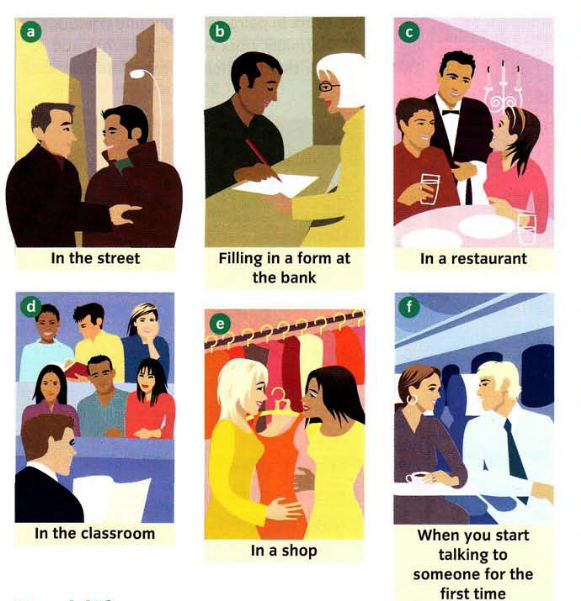
|
|
|
|
|
|
|
|
|
|
|
|
VOCABULARY 2: WORK DUTIES
Study the following.
What do you do?
People may ask you about your job. They can ask and you can answer in different ways:
|
What do you do? What's your job? What do you do for a living? |
I'm (+ job) a banker/an engineer/a teacher/a builder I work in (+ place or general area) a bank/marketing I work for (+ name of company) Union Bank, Fiat |
NB 'Work' is usually an uncountable noun, so you cannot say 'a work'. If you want to use the indefinite article you must say ‘a job’, e.g. She hasn't got a job at the moment.
What does that involve? = What do you do in your job?
When people ask you to explain your work/job, they may want to know your main responsibilities, or something about your daily routine. They can ask like this: What does that (i.e. your job) involve?
Main responsibilities
I'm in charge of all deliveries out of the factory.
I have to deal with any complaints.
I run the coffee bar and restaurant in the museum.
Daily duties/routines
I have to attend a lot of meetings.
I visit/see/meet clients. I advise clients.
It involves doing quite a lot of paperwork.
Pay
Most workers are paid every month and this pay goes directly into their bank account. It is called a salary. We can express the same idea using the verb to earn:
My salary is $60,000 a year. = I earn $60,000 a year.
With many jobs you get holiday pay and sick pay (when you are ill). If you want to ask about holidays, you can say: How much holiday do you get? or How many weeks' holiday do you get?
The total amount of money you receive in a year is called your income. This could be your salary from one job, or the salary from two different jobs you have. And on this income you have to pay part to the government - called income tax.
Working hours
For many people in Britain, these are 8.30-9.00 a.m. to 5.00-5.30 p.m. Consequently people often talk about a nine-to-five job. Some people have flexi-time; and some have to do shiftwork. Some people also work overtime. Some people are paid to do/work overtime, others are not paid.
Match the definitions with the italicized words and phrases from the text.
to go to
to include
to be responsible for
to be in control of/manage
to give somebody help and opinion
to take all necessary action
7) to work extra hours
8) duties
what you do every day/week
people one does business with or for
11) regular working hours
12) work at different times
13) irregular working hours
14) a general word we use for routine work that involves paper e.g. writing letters, filling in forms, etc.
Match the verbs on the left with the nouns or phrases on the right to form collocations. Use each word once only.
-
to earn
to work
to pay
to go to
to deal with
to run
overtime
meetings
a shop
clients
£500
income tax
D. Starting with the words you are given, rewrite each of these sentences using vocabulary from the text. The basic meaning must stay the same.
1) I am a banker.
I work in banking.
What do you do?
What's …?
3) I earn $50,000 dollars.
My…
4) I get £20,000 from my teaching job and another £10,000 from writing.
My total …
5) I am an economist.
I work for …
6) In my job I have to look after and maintain all the computers in the building.
My job involves …
7) I'm responsible for one of the smaller departments.
I'm in …
E. This is part of a conversation with an accountant about her job. Can you supply the missing questions?
A: …?
B: I usually start at nine and finish at four.
A: …?
B: Yes a bit. Sometimes I work until five o'clock, and then I get paid extra.
A: …?
B: Four weeks. That's one of the bad things about being an accountant.
A: …?
B: Yes, we do. That's one of the advantages of being an accountant.
F. Can you answer these general knowledge questions about work?
What are normal working hours for most office jobs in your country?
Can you name jobs that get very high salaries in your country?
When you start paying income tax in your country, what is the minimum amount you have to pay?
What jobs often involve shiftwork? (Give at least two examples.)
Is flexi-time common in your company or your country?
G. Add one job to each letter below. Use the pictures to help you.
|
A is for architect and …. |
B is for barman and …. |
|
C is for civil servant and …. |
D is for doctor and … |
|
F is for farmer and …. |
J is for journalist and … |
|
L is for lawyer and … |
N is for nurse and … |
|
P is for psychologist and … |
S is for shop assistant and … |
|
T is for taxi driver and… |
W is for writer and … |
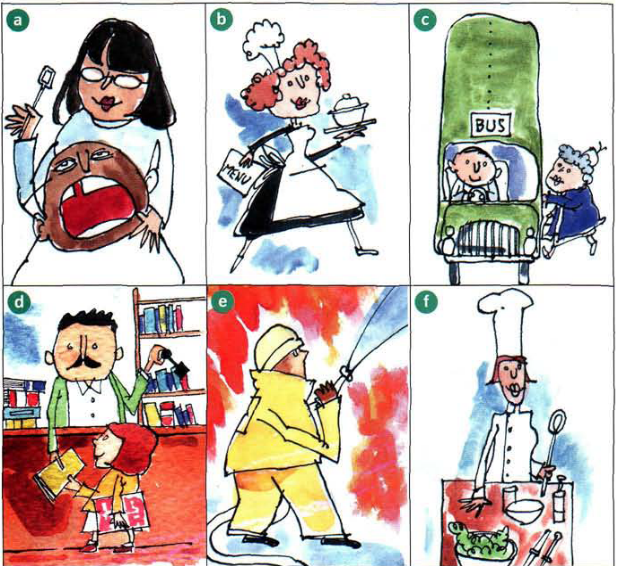
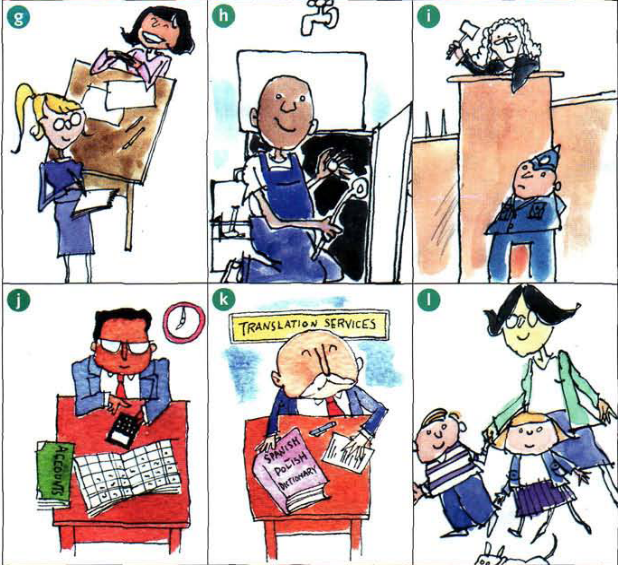
H. Think of the job, but don’t say what it is. Describe the job by saying about the responsibilities and routine. Let other students guess what job you’re describing.
WRITING: INFORMAL EMAIL
Read the email and answer these questions:
What is Gaby describing?
What is Gaby doing?
Where is Gaby flat?
What does Gaby ask Enrico?


|
Hi Mike, I’ve got so much to tell you. Things are different for me now. Last September we moved to Canada. Before we had lived in France for 6 months. We’re here for a year. James changed a lot of jobs. He was working in a shop, for an IT company, but now he is working for a bank in Vancouver and I’m studying at the film school. We’re staying in a lovely flat in the centre of the town. There are a lot of things to do in the city, but every weekend we go the countryside. It’s really beautiful! Last summer we couldn’t have a rest, but next summer we’re going to visit my parents and to have a trip around Europe. What about you? I’d love to know what you’re doing these days. Send me an e-mail soon. Love, Gaby xxx |


B. Write an e-mail to a friend you haven’t talked to for long time. Tell him/her about the way you have spent your summer holidays. Mind past tenses (past simple, past continuous, past perfect).
WORD FILE
|
Unit 1 Module 2 | ||
|
daily routine ready meals takeaways refectory to brush one’s teeth to come around for a chat to do shopping to do sport to eat out to fall asleep = to get asleep it takes me (2 hours) to make notes to hold seminars to take exams to pass exams to have tests to do home assignments to be keen on smth
|
to go out to hang out with friends to have a late night to have a lie-in to have a lunch break to have a nap to have a shave to have a shower (a bath) to have a snack to have a wash to have an early night to leave home to lie in bed to live alone (on one’s own; by oneself) to oversleep to participate in smth to set aside to socialize to stay in to stay up
|
to surf the net to work full-time to work long hours responsibility = duty complaint holiday pay income income tax nine-to-five job salary sick pay to advise (clients) to attend (meetings) to be in charge of to deal with to do paperwork to do shiftwork to earn to have flexi-time to involve = to include to run (a restaurant) to work overtime |
Module 3 Job Hunting
PREVIEW
Work in pairs. What do the people in the photos do?




B. Read the following tips for finding a job and discuss which ones you agree or don’t agree with. Why?
Contact your friends and see how they can help.
Visit an employment agency and ask about available jobs.
Look for the job that gives the best salary.
Read the advertisements in the Business section of your local newspaper and try to find a job that matches your skills, qualifications and interests.
Ask your parents or their colleagues to get you a job in the companies where they work.
Discuss your goals and interests with your friends and make a plan for how to proceed.
Talk to a counselor at the place where you are studying and ask for some advice.
LANGUAGE SKILLS: EXPRESSING YOUR PERSONAL VIEW
How would you personally start job hunting? Use the phrases in the box to help you.
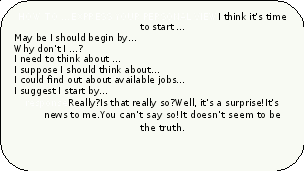
e.g. I think it’s time to start by asking my friend to help me.
May be I should begin by visiting an employment agency.
Why don’t I look through a Job Advertisements Section in a newspaper to find the most suitable position?
READING: FIRST DAY NERVES
What do you remember about your first day at school or university? Describe your feelings and behavior (mind using Past Tenses).
Here are some “dos” and “don’ts” about how to behave in a new job. Can you tell which are which?
|
|
| |
C. Before you read the article, match the following words with their definitions.
|
co-worker |
a time or day by which something must be done |
|
to make an eye-contact |
to express disapproval of someone or to make judgments about something |
|
deadline |
something that is done for enjoyment, especially an organized event after the end of a working day |
|
to criticize |
before a particular time, or before doing a particular thing |
|
after-hours activity |
when two people look at each other's eyes at the same time |
|
in advance |
to be careful of some thoughts or opinion, words or sounds you pronounce |
|
to watch the things you say |
one of a group of people who work together |
Read the article and find “dos” and “don’ts” from the list on the previous page.
How can you make sure that your first few weeks in a new job will not be your last?
Let’s start with your clothes. Plan what you are going to wear in advance. Being smart tells people that you are organized and reliable. Have a good breakfast and don’t forget to work out how to get to your new workplace before you leave!
Walk into the company with a smile and make eye contact. It can be difficult to do this when you are nervous but it will make you look more approachable. Be polite and friendly to everyone including the receptionist. Don’t forget to find out where things are, such as the water cooler and the toilets.
Introduce yourself to your new colleagues. It is useful to learn names as soon as possible. It is good to have a positive attitude, too. You need to watch the things you say and do as they will be remembered.
You don’t need to be perfect in your first few weeks – everyone has to learn. So don’t be afraid to ask questions. It is better to ask for help than to do a job wrong! Listening is also important. Use a notebook and make notes so you don’t have to keep asking the same things. Find out from your boss your responsibilities, specific projects and their deadlines.
You should watch how your colleagues behave. Every company has its own culture. It may be formal or informal. For example, you may be allowed to make personal calls or surf the net, or you may not. Ideally in the first weeks you should arrive early, and leave not earlier than the majority of your colleagues. Starting late and finishing early never makes a good impression.
While it is useful to learn about your colleagues, it is important not to get involved in office gossip as it may make people feel they cannot trust you. Stay out of office politics and avoid criticizing your boss or colleagues to other people. But take advantage of after-hours activities to get to know your co-workers. And join them for lunch if they invite you.
Read the article again and find out why…
it is important to be smart
you should be careful what to say
it is OK to ask questions
it is worth having a notebook
you should watch your colleagues
you shouldn’t arrive late and leave early
you shouldn’t gossip
it is a good idea to socialize with your colleagues
Scan the article and find the opposite of these adjectives.
|
casual confident |
disorganized easy |
negative unreliable |
G. Translate the following words from Russian into English and make up your own sentences with them:
место работы; отношение; следите за тем, что говорите; продолжать спрашивать; делать личные звонки; большинство; производить хорошее впечатление; вести себя; доверять; держаться подальше, вмешиваться (ввязываться); продумать (решить).
VOCABULARY: PERSONAL TRAITS
Match the descriptions in column B with the personality adjectives in column A. Use a dictionary if necessary.
|
A |
B |
|
shy |
works well, doesn’t waste time |
|
tidy |
wants to have a top job |
|
self-confident |
doesn’t get angry when he or she has to wait |
|
reliable |
doesn’t feel confident when talking to people he or she doesn’t know |
|
patient |
trustworthy, dependable |
|
demanding |
thinks carefully before doing or deciding anything |
|
nervous |
arrives on time |
|
ambitious |
keeps desk, papers, files, etc. in good order |
|
relaxed |
calm, unstressed, unworried |
|
cautious |
has a positive feeling about him or herself |
|
dynamic |
makes other people work hard, often to a high standard |
|
efficient |
be afraid, doesn’t have a lot of confidence |
|
punctual |
energetic and (usually) successful |
These pairs of words describe employee qualities and performance. Match synonyms from the boxes.
|
friendly
self-confident systematic excellent satisfactory |
|
clever timid easy-going acceptable self-assured cautious
adaptable
|
Many positive words describing character have clear opposites with a negative meaning. Write the negative forms of the following adjectives using the prefixes un- (11 examples), in- (7 examples), dis- (3 examples), ir- (1 example), im- (1 example).
|
tidy organised accurate systematic sensitive patient |
orthodox honest conventional traditional convincing responsible |
secure sincere experienced reliable obedient efficient |
predictable friendly diplomatic trustworthy tolerant |
D. Which of the adjectives given in exercises A, B, C best describe either you own or a friend’s character? How do you or your friends demonstrate these characteristics? Which of these qualities are necessary for an economist?
e.g. sociable – I’m sociable because I love being with other people.
LISTENING: JOB INTERVIEW
(Test Your Listening/Penguin English CD: Do sit down, Track 10)
You will hear a manager interviewing a person for a job. Listen out for these verbs, and then use them to complete sentences 1-5.
start off stay in work for move on look for
Could you … by telling me a bit about yourself?
I didn’t want to … that field.
I think it’s time to ….
I’m … more of a challenge.
You’ve been … a design company.
Listen again to the interview and complete the notes the interviewer makes.
Post: Marketing Director
Interviewee: Chris Clarkson
Qualifications:1 (1) degree and M.A.2 in (2) from US
Experience3: (3) with Proton Designs
|
Reasons for wanting job:
|
Good points:
|
GRAMMAR: FUTURE ACTIONS
Read the short extract from the interview and recognize any constructions expressing Future Actions.

|
Future Simple | |
|
Formation |
will + V1 You will make a good impression on your employer. He will surf the Internet tomorrow. |
|
Question form |
will + subject + V1 Will you make a good impression on your employer? Will he surf the Internet tomorrow? |
|
Negative form |
will + not (won’t) + V1 You won’t make a good impression on your employer. He won’t surf the Internet tomorrow. |
|
Usage |
future facts and predictions |
|
Signal words |
tomorrow |
|
Present Progressive | |
|
Formation |
be (am, are, is) + Ving I am going to my new workplace tonight. He is visiting a job interview. |
|
Question form |
be (am, are, is) + subject + Ving Am I going to my new workplace tonight? Is he visiting a job interview? |
|
Negative form |
be (am, are, is) + not + Ving I am not going to my new workplace tonight. He is not visiting a job interview. |
|
Usage |
personal arrangements and plans, particularly when the time and place are known |
|
Present Simple | |
|
Formation |
V1, V-s/-es (for 3d person singular) Job interview starts at 9 o’clock. Deadlines end July, 12. |
|
Question form |
do/does + subject + V1 Does job interview start at 9 o’clock? Do deadlines end July, 12? |
|
Negative form |
do + not (don’t)/does + not (doesn’t) + V1 Job interview doesn’t start at 9 o’clock. Deadlines don’t end July, 12. |
|
Usage |
schedules and timetables |
|
to be going to = to be about to | |
|
Formation |
be (am, are, is) + going to I am going to discuss my projects on Monday. They are going to leave the office soon. |
|
Question form |
be (am, are, is) + subject + going to Am I going to discuss my projects on Monday? Are they going to leave the office soon? |
|
Negative form |
be (am, are, is) + not + going to I am not going to discuss my projects on Monday. They are not going to leave the office soon. |
|
Usage |
things we plan to do, or have planned to do, predictions based on what we can see now |
Fill the gaps with the verb in brackets using either to be going to or will form of the future tense.
Sally: There is no paper left!
Betty: Oh, I (to get) some from the shop.
The population of Valencia (to reach) 2 million by the year 2010, the report says.
Boss: I told you to type this document today.
Employee: Sorry, Mr. Smith, I forgot. I (do) it after lunch.
Sally: Why don't we meet for coffee on Friday morning?
Willy: Sorry. I can't. I (to have) a job interview then.
"Tomorrow (to be) a bright and sunny day everywhere in Spain, except in Madrid," said the weatherwoman.
Look at that big black cloud. I think it (to rain).
Sally: What are your plans for the week-end?
Betty: Brad Snow, my employer phoned. I (to get ready) for our annual meeting.
Betty: Have you booked the flights yet?
Sally: Don't worry. It's all organized. I (to go) to the travel agent's tomorrow morning. You (to go) certainly to your business trip.
In the future people (to work) less.
If we miss the bus, we (to take) a taxi.
Put the verb into the most suitable form with future meaning, Present progressive or Present simple.
We (to have) a corporate party next Saturday. Would you like to come?
I (not to go) away for my holidays next month because I haven’t got enough money. They haven’t paid me holiday pay yet. (You/to go) away?
Our first job interview this afternoon (to start) exactly at 3:30.
George, is it true that you (to work) overtime next week?
My seasonal work (to start) May, 25 and (to end) October, 25.
What time the (next shift/to end)?
Ann, we (to go) to town. (You/to come) with us?
Don’t make any plans I (to surf) the Net tonight.
Our after-hours activities usually (to start) after 8 p.m.
I (to look for) a position of a banker.
Put the words into the correct order paying attention to the usage of tenses denoting future actions.
Doing/I/ course paper/am/ with/ in the evening/ my father.
Company /in our /seasonal overtime/ /starts/ May, 1.
Going/a new /vacancy/I am/to find/ my sister-in law/for.
You/to place/where/going/your/are/new/ job advertisement?
Arrive/your employer/does/when?
Colleagues/ for Madrid/are/my/in the next few days/leaving.
Become/next year/will/I/a good specialist.
With/Playing/our partners/volleyball match/are/tonight/we.
Is/to do/ironing/nobody/the/going.
Having/friends/we/for dinner/are /tonight.
Open the brackets paying attention to the usage of tenses denoting future actions (negative/question/affirmative forms).
The meeting (to start) at 10 o’clock.
We (to discuss) our project on Monday.
The employer (to plan) a series of interview with the applicants.
What you (to do)? I (to surf) the net.
We (to supply) you with all necessary equipment tomorrow.
The train (not to arrive) at 6 p.m. It goes behind the schedule.
Your working hours (start) at 8 a.m. and (to end) at 5 p.m. Please, be punctual, tomorrow (to be) your fist time at work.
(to go) anywhere this week? No, fortunately I haven’t got any business trips.
You (not to sell) your car, right? It is new!
He (to join) us later, don’t worry.
SPEAKING
Role-play the following situation.
Student A: Interview candidate
You have applied for a holiday job as a waiter at a local fast food restaurant. You are well qualified for the job and have some experience of this kind of work. Soon after the interview has begun, you change your mind about the job. You decide you are no longer interested. Do and say whatever is necessary to make sure you do NOT get the job.
Student B: Interviewer
You are interviewing applicants for a job in your fast food restaurant. You have interviewed several people already, but found no one suitable. Soon after the beginning of the interview with A, you decide he/she is the right person for the job. Do everything possible to make the interview a success.
WRITING: CURRICULUM VITAE
Read Adam Hall’s Curriculum Vitae (CV).
|
Date of birth: Address: Tel.: Email: |
25 February 1990 25 Victoria Road, Birmingham B19 2ZK 01218953 9914 adhall@interserve.net.uk | ||
|
Profile
|
A highly-motivated, well-travelled, and creative graduate with practical work experience in both sales and TEFL4 teaching. A 4-month postgraduate residency at the Biosphere 2 Center, Arizona, has given me wide-ranging knowledge of, and insight into, environmental problems and ways of presenting them to the public. | ||
|
Education
|
1998-2002
2002-2006
July, 2004 |
King Edward's School, Birmingham 0 Levels5: Art, Biology, Chemistry, English, French, Geography, History, Maths, Spanish A levels:6 Art A Environmental Studies A Chemistry B Spanish B Leeds Metropolitan University BA7 Environmental Studies: 2:1 Academy School of English, Leeds Cert CELTA | |
|
Work experience |
April 1999 – July 1999
January 2002 - May 2002 |
Weekend sales assistant, Kings Norton Garden Centre, Birmingham TEFL tutor, JA School of English, Katowice, Poland | |
|
Other information
|
September 2003 December 2003 May 15-16,2004
June 20-24, 2004
|
4-month residency at the Biosphere 2 Cent Arizona, USA Co-presented 'No smoke' at the Bretton Hall Sculpture Park, University of Leeds. An installation which explored the environmental implications of major forest fires, both natural and man-made. Co-presented 'Time microscope' at the Covent Garden Flower Festival. An installation which explored different ways of presenting information about the natural world | |
|
Interests
|
My main interest outside work, although related to it, is travel. In 19— I took part in a school expedition to the High Atlas mountains in Morocco, and produced a video of the trip. In my gap year I travelled extensively in South America, again documenting the trip by means of sketchbooks and video. I also enjoy World Music, particularly that from countries I have visited, and play the guitar | ||
|
References
|
Prof. T.N- Fagin Department of Environmental Studies Leeds Metropolitan University LS23RX
|
Dr Elizabeth Gordon Principal JA School of English Ulica Czysta 14 Katowice Poland | |
B. Answer the questions.
Where did Adam study environmental problems?
What did he do while he was in Poland?
Who is Dr Elizabeth Gordon?
What do you think Adam's main interest is?
Where did Adam graduate from?
What commercial experience has he had?
C. Write a CV to attract employers and make them want to employ you as an Economist of Sales Department to a Coca-Cola company. Remember that the perfect CV should be:
|
|
| |
WORD FILE
|
Unit 1 Module 3 | ||
|
advertisement after-hours activities attitude to smth available (jobs) colleague = co-worker deadline employment agency in advance majority of qualifications
skills smart (clothes) to criticize to get involved in (office gossip) to keep doing smth to look approachable to make a good/strong impression on smb
|
to make eye contact to make personal calls to match smth e.g. qualifications to take advantage of to trust to watch the things you say to work out
accurate ambitious cautious conventional convincing demanding dynamic efficient experienced honest
|
nervous obedient organized patient polite predictable punctual relaxed reliable responsible secure self-confident sensitive sincere systematic tidy tolerant trustworthy
|
UNIT 2
NATIVE LAND
Module 1 Russia
PREVIEW
1
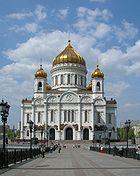 2
2
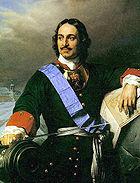 3
3 4
4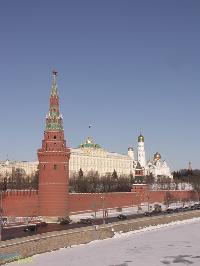
 5
5
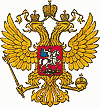 6
6

What do you know about Russia? Match the above pictures 1-6 with descriptions a) – f). What information can you give about the pictures?
a) The Cathedral of the Redeemer d) Peter the Great
b) The Red Square e) Coat of Arms of the Russian Federation
c) The flag of Russia f) First Russian cosmonaut
SAYING DATES
|
Years |
Ordinal numbers |
|
1984 nineteen eighty four 2010 two thousand and ten |
1st first 2nd second 3rd third 4th fourth 5th fifth |
|
Dates | |
|
3rd April 1998 (BrE) the third of April, nineteen ninety eight 3 April 1998 (BrE) April the third, nineteen ninety eight April 3, 1998 (AmE) April third, nineteen ninety eight | |
New year is
Victory day is
Women’s day is
Independence day is
Christmas is
Day of Knowledge is
Day of the defender of Motherland is
on 9th May
on 1st September
on 7th January
on 23rd February
on 31st December
on 12th June
on 8th March
HISTORY OF RUSSIA
Use the dictionary to find the meaning of the following words:
to found/to establish, to destroy, to rule, efforts, to invade, to divide into.
Can you say what these dates mean in the history of Russia? Use the dates to complete the sentences below.
-
862
988
1240
1552
1812
1762 to 1796
30 December 1922 27 May, 1703
on 22 June 1941
on 7th November, 1917
in December 1991
Tradition says in … the Viking Rurik came to Russia and founded the first Russian dynasty in Novgorod.
Vladimir “the Saint” became Christian in...
In …, Kiev was destroyed by the Mongols.
After the final battle of Russo-Kazan Warsin ... Ivan IV (Ivan the Terrible) transformed Russia andTatar khanatesinto a multiconfessional state.
TsarPeter I of Russiafounded Saint Petersburg on …as the capital of theRussian Empire.
Catherine II(Catherine the Great), whoruled from …, continued the efforts to establish Russia as one of the Great Powersof Europe.
Napoleon’s efforts to invade Russia failed in ….
On 7th November …Vladimir Lenin headed the Bolshevik Revolution.
After victory in the Civil War, the Russian SFSRtogether with three other Soviet republicsformedtheSoviet Unionon ….
On …, Nazi Germanyinvaded the Soviet Union that was the beginning of the Second World War.
The USSR was divided into fifteen independent republics….
LANGUAGE SKILLS: SHOWING LACK OF CERTAINTY & SURPRISE
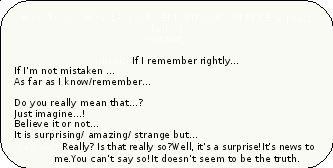
D. Make up short dialogues expressing lack of certainty and surprise. Use prompts given below.
e.g. If I remember rightly, Vladimir Lenin studied in Kazan.
Really? It’s news to me. When was it?
1) There are more than 200 holidays in Russia and only 7 are state ones!
2) In 1240 Kiev was destroyed by the Mongols.
3) The first animal in space was a Russian dog, Laika.
4) Viking Rurik founded the first Russian dynasty in Novgorod.
5) 13 cities in Russia have population over 1 m.
6) The USSR was divided into fifteen independent republics.
7) The Russian Federation is home to as many as 160 different ethnic groups.
|
SAYING NUMBERS
|
Numbers | |
|
100 a/one hundred 1000 a/one thousand 1 000 000 (1m ) a/one million 3 000 000 000 (3bn) three billion | ||
|
Bigger numbers | ||
|
3 sixty (AmE) 5 seven(BrE) ninety-eight thousand, three hundred forty-seven(AmE) | ||
|
Decimals |
Vulgar fractions | |
|
16.5 sixteen point five 17.38 % seventeen point three eight percent 0.185 (nought) point one eight five |
1/8 a/one eighth 3/8 three eighths 1/2 a/one half 3/4 three quarters 20/83 twenty over eighty three | |
E. Write in words how you would say the numbers in brackets, in British English. The first one is done as an example for you.
1) 456, 780 - four hundred and fifty six thousand, seven hundred and eighty
2) 1, 230 5) 120, 330 8) 3/8
3) 12, 300 6) 12.33% 9) 0.169
4) 12,030 7) 1/5 10) 174, 607, 513
F. What is the answer to these sums? Write the sums and the answers in figures.
Twelve multiplied by eight is - 12 x 8 = 96
One hundred and forty four divided by twelve is -
Twenty eight multiplied by three is -
One point five million multiplied by three is -
Seven hundred eighty-nine divided by six is -
Thirty seven point five multiplied by five is -
One million six hundred divided by five is -
G. Read some statistics about Russia.
|
|
Moscow |
St. Petersburg |
Nizhniy Novgorod |
|
Population |
10,469,000 (2003 census) |
4,596,000 (2005 census) |
1,370,200 (2007 census) |
|
|
Russian |
Tatar |
Ukrainian |
Chuvash |
|
Ethnic groups |
81.5 % |
3.8 % |
3.0 % |
1.2 % |
SAYING FIGURE 0 (BrE)
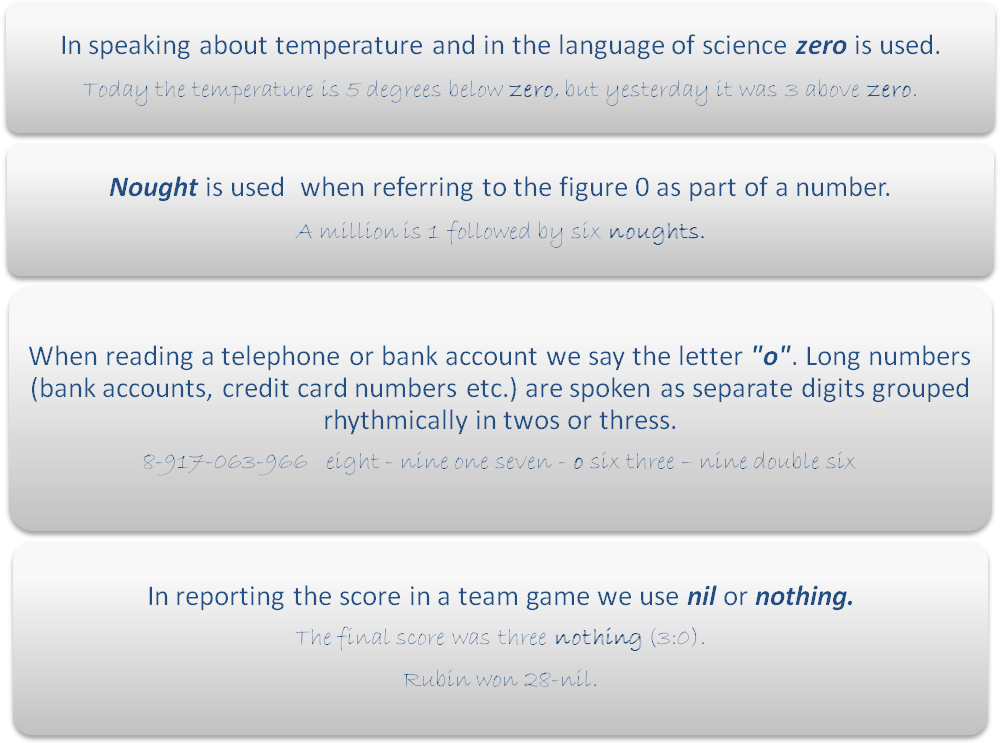
How would you say these numbers?
My credit card number is 87 63 05 33 09 74
It’s too hot today + 29°!
There are nine 0 in a figure billion.
In yesterday’s game Ak Bars won 5:0
Average temperature in winter is – 18 C°
READING: Some facts about Russia
a. Read the facts about Russia and discuss in pairs. Use the Language Skills phrases above.
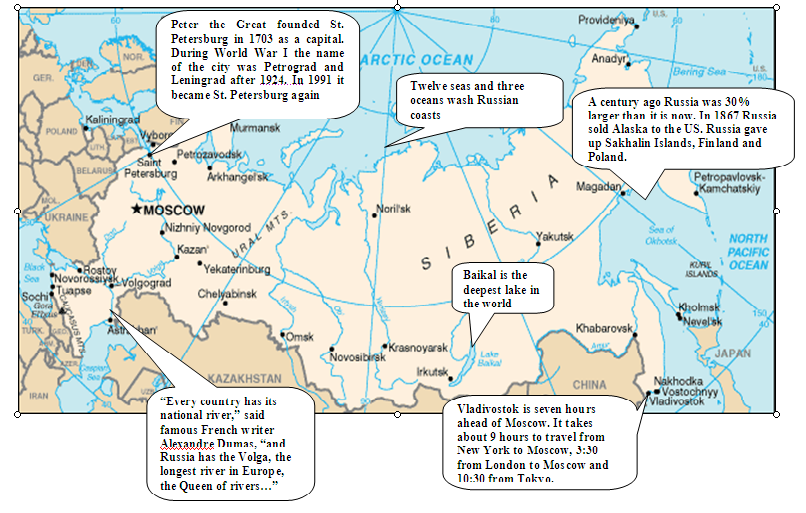
Study the vocabulary.
vast territory
to lie
to extend
to cover
to border on
in terms of
according to
census
two-headed eagle
to appear
superpower
to contain
approximately
обширная территория
лежать, находиться
простираться, тянуться; длиться
покрывать
граничить c
в отношении
согласно….
перепись
двуглавый орел
появляться
сверхдержава
содержать в себе, включать
приблизительно
Read and translate the text.
Russia is one of the largest countries in the world. The vast territory of Russia lies in the eastern part of Europe and the northern part of Asia. Russia extends across the whole of northern Asia and 40% of Europe through 11 time zones. At 17,075,200 square kilometers Russia is the largest country in the world: itcovers more than an eighth of the Earth’s land area. It borders on China, Kazakhstan, Finland, Norway and many other countries. With 142 million people it is the ninth largestin terms of population.
According to the ConstitutionRussia is afederationand formally asemi-presidentialrepublic, where thePresidentis thehead of stateand thePrime Ministeris thehead of the government.
Russia's 160 ethnic groups speak some 100 languages. According to the 2002 census, 142.6 million people speak Russian, followed by Tatarwith 5.3 million and German with 2.9 million speakers.Christianity,Islam,Buddhism, andJudaismare Russia’s traditional religions.
As a state symbol the two-headed eagle first appeared in the XVth century when the country was called Moscovia. The most common version states that two heads of the eagle symbolize two parts of Russia – European and Asian and their importance for the country. Peter the Great was the first to use the three - colour Russian national flag. In those times red colour symbolized the Earth, blue – the sky, and white – the world of God.
Russia has the world's greatest reserves of mineral and energy resources and is known as an energy superpower. It has the world's largest forest reserves and its lakes contain approximately one-quarter of the world’s fresh water.
Complete the fact file about Russia.
RUSSIA’S FACT FILE
|
Location |
Land borders |
Territory |
Population |
Mineral resources |
|
Political status |
Religions |
Official language |
State symbol |
National flag |
Complete the sentences with the words from the box.
|
capital in terms of covers in the south symbolizes vast borders on approximately according to destroyed in the west |
Mongols… the main population centers except for Novgorod and Pskov in the 13th century.
Peter the Great moved the … from Moscow to St. Petersburg.
… of population, Russia is the ninth largest country in the world.
Russia … most of Eastern Europe and north Asia.
Russia … Norway and Finland in the northwest; Estonia, Latvia, Belarus, Ukraine, Poland, and Lithuania …; Georgia and Azerbaijan in the southwest; and Kazakhstan, Mongolia, China, and North Korea …
The population of Moscow is …10,500,000.
… the census there are more than 140 languages and dialects in Russia.
Two-headed eagle … two parts of Russia – European and Asian.
Siberia is a very … territory.
SPEAKING
Speak about Russia using the prompts.
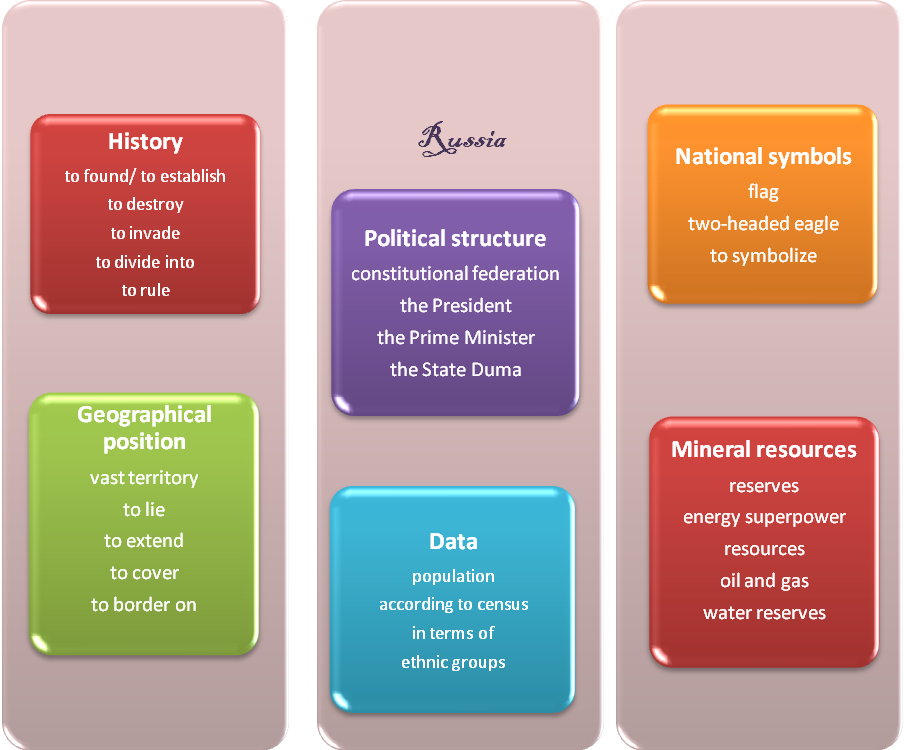
STATISTICS
Match pictures 1-4 to a)-d).
1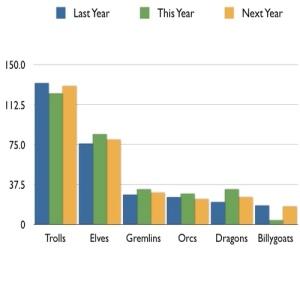 2
2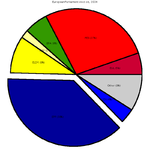 3
3
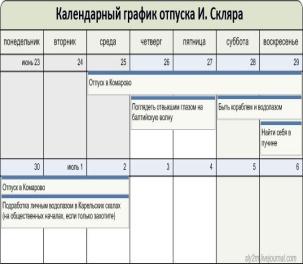 4
4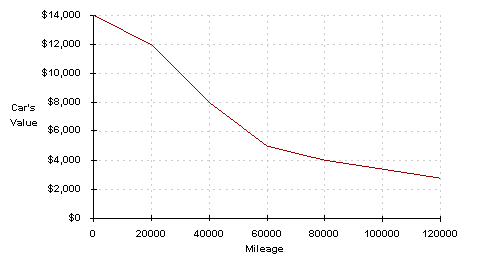
|
|
|
|
Graphs, charts and di
agrams give a clear picture of trading performance and other statistical information. Study the statistics vocabulary.
|
to stand at Sales stand at 5 units.
to remain constant Sales remained constant.
5
to reach a peak of Sales reached a pick of 5 units. |
5
2
t to rise by/to a rise of to go up to grow Chocolate price increased by £3. Chocolate price increased to £5. There was a price rise of £2.
t to fall a fall of to drop by/to a drop of to decline a decline of to go down Sales decreased to 2 units last year. | |
|
to level off at Sales levelled off at 3 units. |
to fluctuate Sales fluctuated for one year. | |
|
You may use the following adverbs and adjectives with the above verbs and nouns | ||
|
sharply/dramatically – резко rapidly – быстро slightly – слегка, немного gradually – постепенно steadily – стабильно Prices increased sharply last year. Sales declined rapidly during May. |
sharp/dramatic rapid steady There was a sharp increase in sales. There was a rapid decline in May. | |
C. Choose the correct words.
1) There was a slight/slightly rise in profits last month.
2) There was a sharp fall in/of our sales last month.
3) Our sales fell by/of 6% last quarter.
4) Inflation is increasing slow/slowly at the moment, in/by about 1% a year.
5) There is a slow/slowly increase in the rate of inflation, of/by about 1% a year.
D. Complete the chart below with the past form of the verbs from the box.
|
fluctuate level go down reach decline drop fall decrease grow go up rise increase remain stand |
|
verb+-d/-ed |
irregular verbs |
double letter |
|
fluctuated |
|
|
E. Look at the words in Column A and their meanings. These words can define numbers more exactly. Match phrases in column A with their translation in column B.
|
A |
B | |
|
by 50 % |
1 |
около 50% ровно 50% на 50% вырос до 50% примерно 50% более 50% почти 50% менее 50% |
|
almost 50% |
48% | |
|
nearly/about/around 50% |
48-52% | |
|
approximately/roughly 50% |
4 | |
|
more than/over/above 50 % |
57% | |
|
less than/ under 50 % |
43% | |
|
exactly 50 % |
50% | |
|
up to 50 % |
3 | |
Look at the graph below and complete the sentences with to, at, of, by.
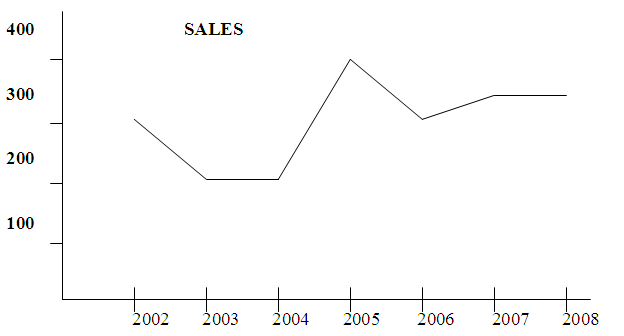
At the beginning of 2002 sales stood … 300 units.
Over the next 12 months sales dropped … 200 units.
Sales levelled off … 200 units for 12 months.
Sales rose … 200 units during 2004.
At the beginning of 2005 they reached a peak … 400 units.
During 2005 they decreased … 300 units.
Then there was a rise … 50 units in 2006.
During 2007 sales levelled off … 350 units.
Put the parts of a sentence in the correct order and describe the graph below.
sales/100 units/At the beginning of the year 2002/sharply/stood at/and rose
Sales /at 200 units/remained constant /by the middle of /2003
rapid/ In the middle of 2003/there was a/50 units /drop of
dramatically/At the beginning of 2004/grew/400 /and reached/sales/a peak of
over/There was a/decline of 50 units/slight/the first half of the year
fluctuated/Sales/during 2 years/by the end of 2006
by 200 units/dropped /sharply/Sales/to 150/by the middle of 2007
by 2008/There was a/decline/over 6 months/steady
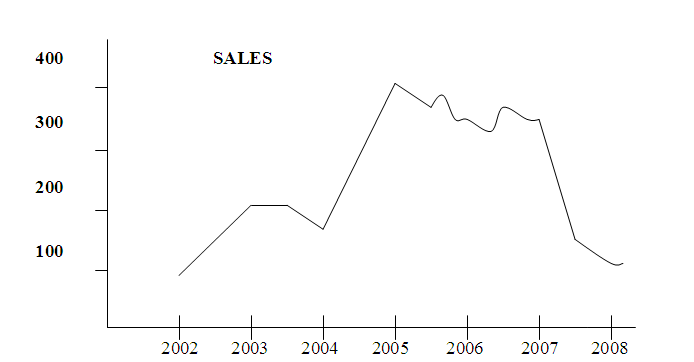
Read a part of a business plan and draw the graph of the rate of inflation.
Let us look briefly at the way inflation has developed during the period 2001-2006. On the graph in front of you, the horizontal axis represents the years from 2001 to 2006 divided up into six-monthly periods. The vertical axis shows the percentage rate of inflation from zero to 25. Let us now look in detail at the development.
If we start with 2001, you can see that at the beginning of the year inflation stood at 5%. It increased steadily over the next 12 months to 8%. The situation improved at the beginning of 2002 and it levelled off for a six months period. The improvement continued and inflation decreased gradually by 2% during the rest of the year. Unfortunately, as you can see, the decline was not maintained and over the next six months inflation rose slightly and reached 9% by the middle of 2003. Then things went bad - I’m sure you will remember how inflation went up dramatically to 17% during the next 12 months and the effects this had on our exports. After a drop of 3% over the second half of 2004 when we all thought that things were improving, inflation increased rapidly until it reached a peak of 24% in the middle of 2005. This marked the low point for us and the high point for inflation. It then fell to 20% by the end of 2005 and levelled off until the middle of 2006. Now let’s look at our results during the same period…
What kind of movement do the verbs below describe? Match them to the symbols. Use some symbols more than once.
|
double gain drop increase rocket decrease fall halve level off triple hit the bottom fluctuate improve peak rise plummet recover soar collapse stabilise |
|
2 2 |
3 |
4
|
|
5 2 |
6 |
7) |
8 |
|
|
|
3 |
|
G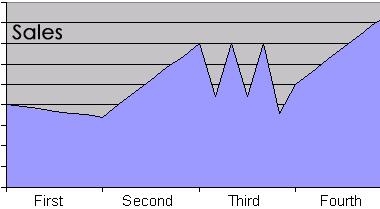 .
Describe the graphs. Use the expressions from task I.
.
Describe the graphs. Use the expressions from task I.
Events that influenced sale:
1st Quarter: Low consumer demand
2nd Quarter: Price drop
3rd Quarter: Price war with competitors
4th Quarter: Strong holiday buying

WORD FILE
|
Unit 2 Module 1 | ||
|
to found/to establish to destroy to rule efforts to invade to divide into zero nought nil nothing point vast territory to lie to extend to cover to border on in terms of population according to census two-headed eagle appear symbolize superpower contain approximately |
STATISTICS pie chart bar chart graph table to stand at to remain constant to increase/an increase of to rise/a rise of to go up to grow to decrease/a decrease of to fall/a fall of to drop/a drop of to decline/a decline of to reach a peak of to level off at to fluctuate sharply/dramatically rapidly slightly gradually steadily at the beginning of at the end of in the middle of |
by the beginning of/ by the end of/ by the middle during/for/over by 50 % almost 50% nearly/about/around 50% approximately/roughly 50% more than/over/above 50% less than/ under 50% exactly 50% up to 50% to double to gain to rocket to halve to triple to hit the bottom to improve to peak to plummet to recover to soar to collapse to stabilise
|
Module 2 The Republic of Tatarstan
“You wouldn’t believe it,
but I would rather live in Mamadysh
rather than in Venetia, Rome or Naples…“
From a letter of Leo Tolstoy
17 March 1786
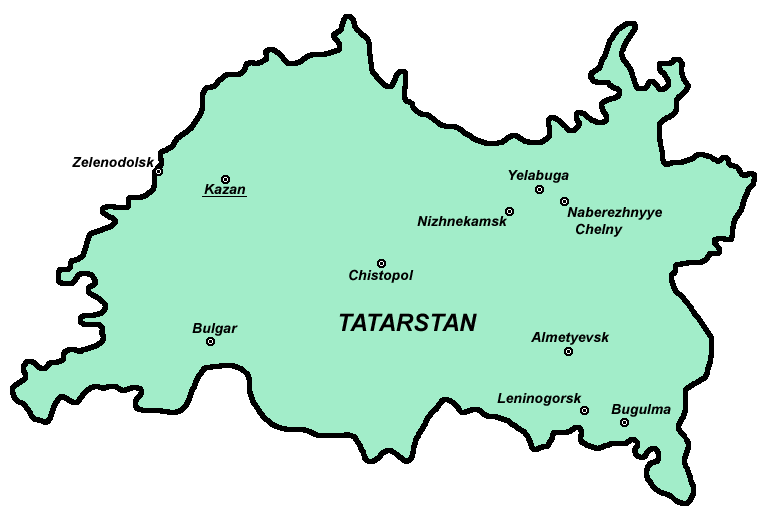
PREVIEW
What do you know about Tatarstan? Do the quiz and say which of the data were surprising for you?
1) Tatarstan is situated approximately 800 km … of Moscow.
east
west
north
2) Islam was established as a state religion in ….
1552
922
1147
3) During the years of the World War II, Boris Pasternak used to live in ….
Naberezhniye Chelny
Chistopol
Bavly
4) Kazan was captured by the troops of Emel'yan Pugachev in ….
1774
1147
1552
5) The second largest town of Tatarstan is ….
Bugulma
Chelny
Nizhnekamsk
6) On … Mintimer Shaimiyev was elected the first President of the Republic of Tatarstan.
25th March, 1990
25th March, 2005
12th June, 1991
7) There are about … small lakes in the Republic.
8,000
4,500
1,000
8) The Constitution of the Republic of Tatarstan was adopted on ….
September 5, 1991
November 6, 1992
June 12, 1990
READING: TATARSTAN
Read and translate the text.
History
Tatarstan is one of the most industrialized republics of the Russian Federation in terms of population and economic potential. The process of inhabiting the territory of the republic began at the time of the early Palaeolithic age (about 100,000 years ago). In the 8th – 9th centuries, the tribes of ancient Bulgars, ancestors of the modern Tatars, began to populate the Volga Region. The first state – the Volga-Kama Bulgaria – was set up at the end of the 9th - beginning of the 10th centuries. In the 13th century this territory became a part of powerful Zolotaya Orda (Golden Hord) State. The collapse of the Golden Hord in the 30-40s of the 14th century resulted in the formation of new states including the Kazan Khanate. Kazan became the capital of this state. The Kazan Khanate ceased its existence in October 1552, when troops of Ivan the Terrible (Ivan IV) conquered Kazan. As the Tatar Autonomous Soviet Socialist Republic it was established on 27th May, 1920 on the territory of the former Kazan Province. Seventy years later, on 30th August, 1990 the Declaration of State Sovereignty of the Republic was signed.
Geographical position
The Republic of Tatarstan is located in the center of the East-European Plain where Europe meets Asia and two large rivers - the Volga and the Kama – carry their joint waters to the Caspian Sea. The Republic of Tatarstan covers the territory of 67,800 sq.km and stretches for 290 km from North to South and for 460 km from West to East. Climate in the Republic is moderate-continental with warm, sometimes hot summers and moderate cold winters.
The capital
The capital of the Republic is Kazan, its industrial, commercial and cultural center, a city of more than 1.1 mln people. There are 19 cities and towns and 3,100 settlements in the Republic. The total population of the republic is about 3.8 mln people. Peculiarity of the Republic of Tatarstan and its culture is in that they reflect two different civilizations: eastern and western, and two different religions: Moslem and Christian (Orthodox). Tatarstan is a multinational republic, as it is home to representatives of more than 100 nationalities: the Tatars (over 50%), the Russians (nearly 42%), the Chuvashes, the Mordvinians, the Mari, the Udmurts, etc.
The government
The head of the government in Tatarstan is the President. Tatarstan’s unicameral State Council is elected for 5 years as well and has 100 seats: 50 are for representatives of the parties, other 50 are for deputies from the republic’s localities. The official languages are Tatar and Russian. The state emblem represents a winged snow leopard with a round shield on his side. The national flag is a horizontal tricolor with stripes of green, white and red.
Industrial regions
The main industries of the Republic are oil production, petrochemistry, aircraft industry, mechanical engineering and instrument-making. The territory of the Republic is divided into several economic regions.
Old industrial Northwest region with Kazan and Zelenodolsk as its centre. Major industries of the region are machine-building, instrument-making, chemical and light industries. OAO Kazanorgsintez is one of the giants of petrochemical center of Tatarstan. It produces more than a half of the whole polyethylene production of the country. Produce quality meets the European standards and is exported to many countries. Kazan Automotive Industrial Enterprise (KMPO) has more than 60 years experience in aircraft engine production. It has been producing 65% of all engines for civil planes, as well as the engines for bombers and helicopters.
New industrial Northeast region with Naberezhniye Chelny and Nizhnekamsk as its centre. Major industries of the region are power engineering, automobile and chemical industries. OAO Kama Automobile Works (KamAZ), situated in the city of Naberezhniye Chelny, is considered to be the best Russian exporter of heavy-duty trucks. These large capacity lorries work under any road and climatic conditions. KamAZ has 6 enterprises located in Russia, the Ukraine and Kazakhstan. The products of KamAZ are used in over 83 countries of Europe, Asia, Africa and Latin America. As for Nizhnekamsk, it is the main chemical center of Tatarstan. OAO Nizhnekamskneftekhim is the largest producer and exporter of petrochemical products in Eastern Europe and one of the largest budget-forming enterprises of the Republic of Tatarstan. OAO Nizhnekamskshina is one of the leading tyre manufacturers in the CIS.
The Southeast oil-extracting region. It is oil that made our republic well-known all over the world. The main oil-producing towns are Almetyevsk, Leninogorsk and Bugulma. Tatneft, located in Almetyevsk (a city of about 151,000 people) is the main oil-producing company of the Republic. Since 1994, it exists as a joint-stock company.
The North, Central, South and Southwest parts of the Republic are rural agricultural regions. Agricultural sector employs more than 16% of economically active population. Agriculture of the Republic covers the local needs in the basic food stuffs. 4.5 mln hectares of land are cultivated which is equal to 67% of the Republic’s territory. Main grain crops are wheat, rye, barley, oats and buckwheat. Fodder crops cover 36% of the sowing area. The Republic is also well-known for its cattle-breeding. Production of such staples as meat, potatoes, milk, eggs per capita in Tatarstan is 15-60% higher than in Russia.
The Republic of Tatarstan ranks number one among the Volga regions in terms of foreign trade turnover and foreign economic activity. The foreign relations of Tatarstan have expanded especially over the past decade. It has signed agreements with Hungary, Turkey, Bulgaria, Lithuania, Germany, Australia, etc. The main export products are crude oil, petrochemical items, compressors, optical devices, trucks, automobile tyres and spare parts.
Match the words with their definitions.
|
to cease |
a basic type of food that is used a lot |
|
to locate |
a period of 100 years |
|
conquest |
connected with or like the countryside |
|
agricultural |
a thick rubber cover that fits round the wheel of a bicycle, car, or other vehicle |
|
to inhabit |
to stop happening or continuing |
|
century |
a particular period of history |
|
unicameral |
a feature that only belongs to a particular person, thing, place, etc. |
|
ancestor |
to put or build smth in a particular place |
|
staple |
having only one main governing body |
|
rural |
relating to farming |
|
age |
the act of taking control of a country, city, etc. by force |
|
tyre |
to live in a particular place |
|
peculiarity |
a person in your family who lived a long time ago |
Answer questions to the text. Make up a dialogue on the basis of this information.
What are the main industries of the Republic?
What economic regions is the republic divided into?
What giant represents the old industrial Northwest region? What does it produce?
What are the main industries of the new industrial Northeast region?
What is KamAZ? Where is it located? What are the main oil-producing towns?
What parts of the Republic are known as rural agricultural regions?
What are the main grain crops of the Republic?
What can you tell about the foreign relations of Tatarstan?
What are the main export products of the RT?
LANGUAGE SKILLS: EXPRESSING OPINIONS. AGREEING & DISAGREEING
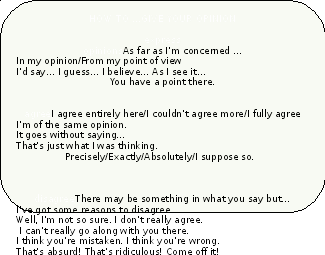
A. Make up short dialogues expressing your opinion, agreeing or disagreeing. Use the prompts given below.
e.g. I believe that oil made our Republic well-known all over the world.
There may be something in what you say but there are also other things that contributed to the fame and well-being of the Republic.
Prompts: knowing foreign languages; making friends when travelling; studying in a foreign country; making Tatarstan a tourist attraction; trying new cuisine; investing in new technology.
Work in pairs. Write down 3 true and 3 false statements about the Republic of Tatarstan using the information from the text. Read the statements to each other, and agree or disagree with them using expressions from the Language skills box above.
GRAMMAR: PASSIVE VOICE
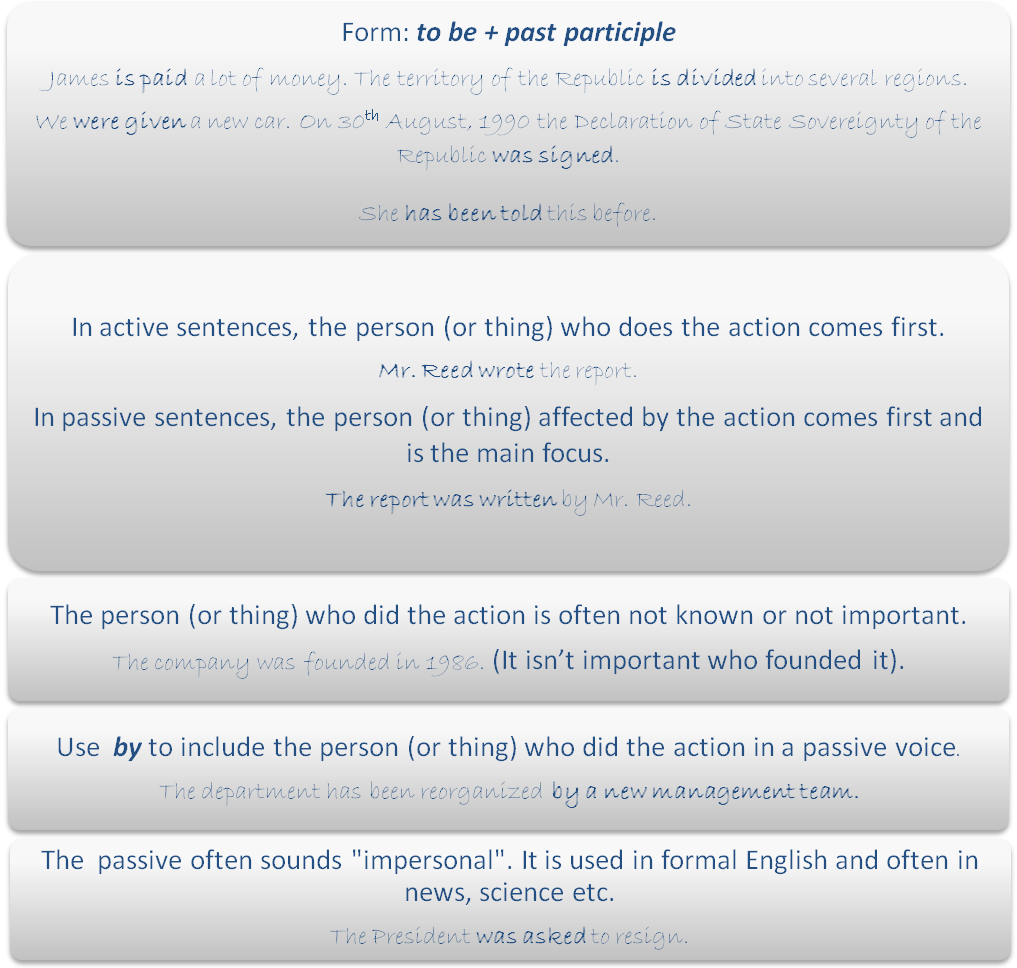
Open the brackets.
|
Present Simple am/is/are +Ved/V3 |
Applicants (shortlist) and (interview). Modern production (characterize) by the high level of automation. Jobs (create) where society needs them. |
|
Past Simple was/were+ Ved/V3 |
Help (give) to small farmers. Many enterprises (set up) in 1990s. |
|
Present Perfect Simple has/have been + Ved/V3 |
The agreement (sign) by our countries. The problems (solve) immediately. |
|
Modal verbs can/may/must/ be +Ved/V3 |
The data (can/regard) as conclusive. Preparation for the project (must/ complete) this week. This (may/call) a local problem. |
|
Future Simple will be + Ved/V3 |
New laboratory (provide) with the most modern equipment. |
|
Future Perfect will have been + Ved/V3 |
About a quarter of all electricity (generate) by atomic power plants. |
B. Find passive forms in the text about Tatarstan and analyse their tense form.
C. Rewrite the sentences in passive voice.
1) We have cancelled the meeting. 2) We asked Mrs. Fry to chair the meeting. 3) She pays a lot of money. 4) They should not interrupt production at any other time. 5) Management makes the conditions more comfortable for workers. 6) The government increased workforce dramatically.7) Investors put a lot of money into production.
D. Put the verbs in brackets into passive voice.
After the Russian revolution of 1905 Tatars (to allow) to revive Kazan as a Tatar cultural center.
The city has a beautiful citadel, which (to declare) the World Heritage Site in 2000.
In the beginning of 1990s most of Central Kazan (to cover) by wooden buildings, usually consisting of two floors.
Kazan State University(to establish) in 1804.
RussianandTatar languageswidely (to speak) in the city.
Kazan (to serve) by Kazan Airport, which (to locate) approximately 30 kilometers from the city centre.
Until recently there was Kazan-2 Airportat the eastern end of the city, but it (to pull down) as a newhippodrome(to build) in its place.
Information on the efficiency of those enterprises (to require).
The irrigated lands (to saw) mostly with cotton.
The desire to expand friendly ties (to express) by both sides.
WRITING: MAKING UP AN ITINERARY
An itinerary is a detailed list of what you will be doing and where you will be while you are away. It includes information about transportation methods, places you will be staying, attractions you will be visiting, meetings you will be attending. Be sure to include names, addresses and any other contact information you have. Take a copy with you and leave one at your office and with family and friends.
Read the step-by-step guide on making an itinerary:
Choose where you are going to go on holiday, i.e. Moscow, Yelabuga, Naberezhnye Chelny, New York, London, etc.
Find some information about amazing sites, places to visit, things to do.
Write all of the places down and choose which one best suits you and your fellow traveller (some may prefer to visit historical sites, others may want to visit shopping malls).
After you have chosen where you want to go, choose the type of transportation you are going to get around, i.e. car, taxi, train, plane, bus, boat, etc.
Consider an appropriate place to stay, i.e. hotel, hostel, motel, house, etc.
Group all of the information you have gathered, now you are ready to write down an itinerary.
A. Write an itinerary for a business trip of your partner who is in oil business. You may wish to include all oil-extracting cities of Tatarstan. Don’t forget about an entertainment programme. Use the example below.
Itinerary of William Smith, trip to New York, 23-26 November
|
Date |
departure/ from (time and place) |
arrival/ to (time and place) |
Flight no. |
Info |
|
Sunday 23 November |
9:05 AM London Heathrow |
11:35 AM New York, JFK |
UA 9238 |
take taxi to Lowell Hotel 28 east sixty third Street (28 km, 20 minutes drive) |
|
|
|
|
|
|
|
Monday 24 November |
|
|
|
take taxi to CitiLife, 315 Bleecker Street, New York, NY 10014, phone: 212-349-6726 (100 km, 60 minutes drive) |
|
|
8:15 AM |
12:30 PM room no C3. |
|
Meeting with Mr. Braun, Mrs. Green, Mr. Yoko, Mr. Walker and Mrs. Mankowich |
|
|
|
|
|
|
|
|
12:30 PM |
1:30 PM company restaurant |
|
lunch with Mr. Braun and Mr. Bright (senior account manager) |
|
|
1:30 PM |
4:00 PM room no. B20 |
|
Meeting with the marketing department. Host: Mrs Johnson |
|
|
4:00 PM |
7:00 PM |
|
Free time, visiting sights, gifts shopping |
|
|
7:00 PM |
10:00 PM |
|
Dinner with Mr. Braun. He will pick you up at the hotel |
|
|
|
|
|
|
|
Tuesday 25 November |
8:15 AM |
2:30 PM room no. B23 |
|
Report to Mr. Braun. Guided tour of the factory, including lunch |
|
|
|
|
|
|
|
|
3:00 PM |
4:00 PM room no. A55 |
|
Meeting with the new PR-manager, Mrs. White (successor of Mr. Gefferson). |
|
|
|
|
|
|
|
Wednesday 26 November |
8:30 AM New York, JFK |
12:00AMLondon, Heathrow |
UA 9082 |
Take a taxi to the airport (28 km, 20 minutes drive) |
Create an advertisement that advertises your itinerary. The advertisement should include some pictures of places that are in the itinerary, but you may create it however you think would be most effective.
WORD FILE
|
Unit 2 Module 2 | ||
|
industrialized republic to inhabit tribe troop to populate age/century ancient collapse to cease one’s existence to conquer conqueror conquest to number … people to be established on the territory of … to sign (agreements) to be situated = to be located plain to cover the territory of … sq.km. to stretch for … km from… to… moderate-continental settlement total population peculiarity to reflect nationality religion: moslem/ christian (orthodox) multinational civilization to be home to smb to elect smb for the term of … years party
|
unicameral/bicameral representative (n, a) deputy to be divided into regions giant (a) to meet standards to export/to import to produce = to manufacture enterprise budget-forming enterprise to work under any conditions leading agglomeration CIS countries to exist joint-stock company rural agriculture; agricultural to employ economically-active population main = major to cover the needs hectare sowing area per capita foreign trade turnover to expand to exist to extract to exceed to cultivate to be equal to industries = branches of industry oil production
|
oil-extracting petrochemistry aircraft industry mechanical engineering/engineering/ machine-building automobile industry/ motor-car industry instrument-making machine-tool industry chemical industry light industry power engineering manufacturing/processing mining items of produce oil/crude oil/petrochemical items polyethylene aircraft engines (for civil planes, bombers and helicopters) heavy-duty trucks/large-capacity lorries compressors optical devices automobile tyres (AmE tires) spare parts grain crops (wheat, rye, barley, oats and buckwheat) fodder crops cattle-breeding basic food stuffs/staples (meat, potatoes, milk, eggs)
|
Module 3 Kazan
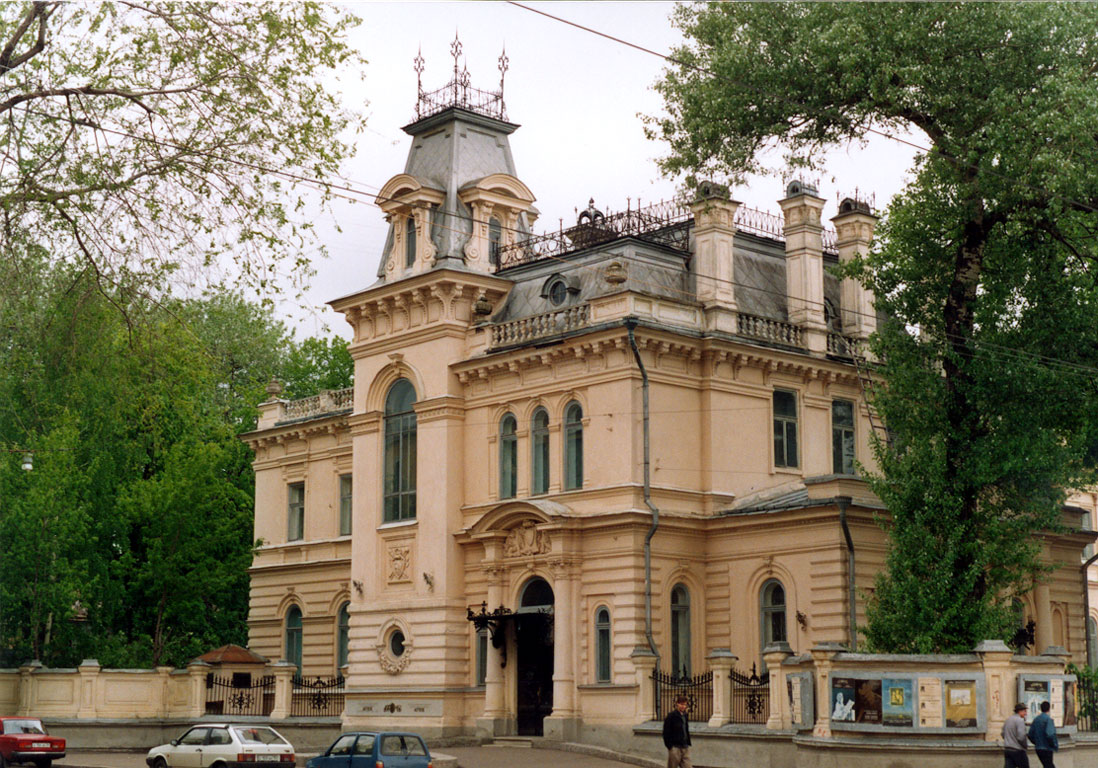
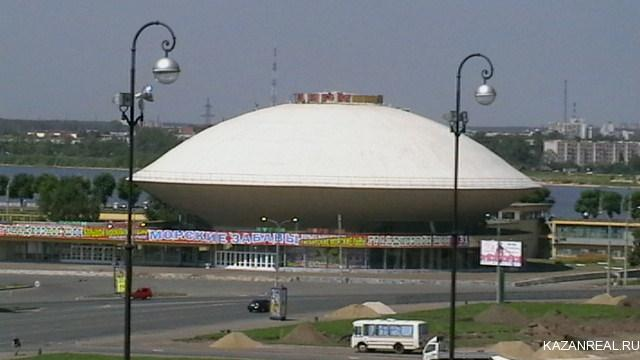
PREVIEW
Tell if you agree or disagree with these quotations.
“When you look at a city, it’s like reading the hopes, aspirations and pride of everyone who built it.”
Hugh Newell Jacobsen
“A great city is not to be confounded with a populous one.”
Aristotle
B. How well do you know Kazan and its history? Do the quiz and check your knowledge.
In 1446 Kazan became the capital of ….
Khanate of Kazan
the Golden Horde
the Bolgar state
In 1774 Kazan was destroyed by ….
the troops of Yemelyan Pugachev
great fire
troops of Ivan the Terrible
Which building is not on the territory of the Kazan Kremlin?
the Kul-Sharif mosque
the Spasskaya Tower
Nurullah mosque
The Peter and Paul Cathedral was built to commemorate the visit of …. to Kazan.
Peter the Great
Catherine the Great
Alexander I
Kazan state emblem represents …
a snake
a horse
a panther
Match these famous people of Kazan and their field of work.
-
N.A. Mislavskiy
medicine, anatomy
V.M. Bekhterev
chemistry
K. Nasyri
physics, mathematics
A.M. Butlerov
history, ethnography
P.F. Lesgaft
physiology
A.Ye. Arbuzov
psychiatry, psychology
Kh.M. Mushtari
organic chemistry
LANGUAGE SKILS: ASKING THE WAY
Match phrases 1)–8) with pictures a)-f), some of them can be used more than once:
|
1) Go straight ahead/ carry on. 5) Turn right. 2) Walk along the street. 6) Turn left at the crossroads. 3) Take the first (second) turning on the right. 7) Take a bus to… 4) Get off the bus at … 8) It’s next /across from/ opposite/beside. |
? Bus

























 a)
b) c) d)
e)
a)
b) c) d)
e)
Bus f)
f)
B. Practice the following conversation with a partner using the substitutions in the box.
A: Do you know where I can get a cup of coffee?
B: Sure. You could try the Capital cafe.
A: Where’s that?
B: It’s on Pushkin Street near to Clocks on Bauman Street.
A: Thanks.
B: No problem.
|
get some clothes get some cat food buy some milk buy some jewelers grab a hamburger get some aspirin see a movie buy a book mail a letter buy some CDs have a snack |
GRAMMAR1: PREPOSITIONS OF PLACE AND DIRECTION
|
Preposition |
Use |
Examples |
|
above |
higher than smth |
The picture hangs above my bed. |
|
across |
from one side to the other side |
You mustn't go across this road here. There isn't a bridge across the river. |
|
along |
in a line; from one point to another |
They're walking along the beach. |
|
among |
in a group |
I like being among people. |
|
behind |
at the back of |
Our house is behind the supermarket. |
|
below |
lower than smth |
Death Valley is 86 metres below sea level. |
|
beside next to |
near |
Our house is beside the supermarket. |
|
between |
smth/smb is on each side |
Our house is between the supermarket and the school. |
|
by |
near |
He lives in the house by the river. |
|
in front of |
the part that is in the direction it faces |
Our house is in front of the supermarket. |
|
inside |
opposite of outside |
You shouldn't stay inside the castle. |
|
opposite |
on the other side |
Our house is opposite the supermarket. |
|
out of |
leaving smth |
The cat jumped out of the window. |
|
outside |
opposite of inside |
Can you wait outside? |
|
over |
above smth/smb |
The cat jumped over the wall. |
|
round |
in a circle |
We're sitting round the campfire. |
|
through |
going from one point to the other point |
You shouldn't walk through the forest. |
|
to |
towards smth/smb |
I like going to Australia. Can you come to me? |
|
under |
below smth |
The cat is under the table. |
|
up |
from low to high |
He went up the hill. |
C. Fill in the gaps with appropriate prepositions.
1) I found the key … the cushion. 2) Her office is … those stairs. 3) A lamp hung … the table. 4) The earth goes … the sun. 5) We parked our car … the sports hall. 6) It’s easy to find – there’s a church just … my house. 7) There was a low brick wall … our garden and the field beyond. 8) We’re driving … Follyfoot Road. 9) Would you like me to help you … the road? 10) The cat ran out from … the tree. 11) James walked … without looking in my direction. 12) She stood … and walked … the window. 13) The ball went flying … the window.
GRAMMAR 2: USE OF PREPOSITIONS IN, AT, ON

NB We say 'in the corner of a room', but 'at the corner (or 'on the corner') of a street'.
We say 'in the front/in the back' of a car.
We say 'at the front/at the back' of buildings/groups of people.
We say 'on the front/on the back' of a piece of paper.
D. Choose either in, at, or on.
1) The label is … the bottle. 2) Jack is waiting …the bottom of the stairs. 3) Our seats are … the third row. 4) Turn left … the lights. 5) He's sitting …the chair next to the piano. 6) I met Jack …the street. 7) He has a lot of beautiful pictures … the wall. 8) I live … the fifth floor of my apartment building. 9) We waited for over an hour …the bus-stop. 10) Who is that woman … the photograph? 11) You will find an explanation … page 18. 12) Paris is … the river Seine. 13) The instructions are … the back of the box. 14) What do you have … your hands? 15) Can you see who is … the door?
E. Choose the correct prepositions.
I'm Peter and I live … Germany. … summer I like to travel … Italy, because … the weather and the people there. Last summer I took a plane … Munich to Rome. … the airport we went to our hotel … bus. We stopped … a small restaurant for a quick meal. The driver parked the bus … the restaurant. Nobody could find the bus and the driver, so we waited … the restaurant …one hour. The driver was walking …the small park …the restaurant which we did not know. So we were very angry … him. But my holidays were great. We sat … campfires and went dancing … the early mornings.
F. Work in pairs. Student 1 looks at Map A. These buildings are not marked on your map, but they are marked on your friend's map: the police station, the bank, the hospital, the chemist, the charity shop, the disco, the shoe shop, the newsagent's, the internet café, the snack bar. Ask your friend how to get there and find the ten buildings on your map.
Map A
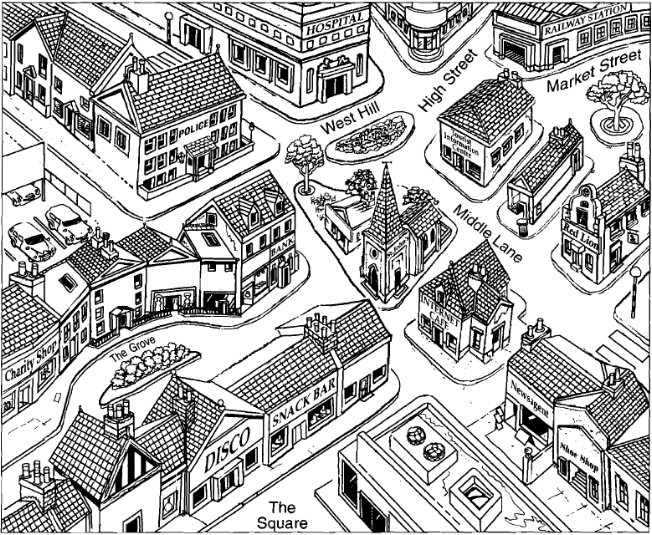
Student 2 looks at Map B. These buildings are not marked on the map, but they are marked on your friend's map: the post office, the Chinese restaurant, the bookshop, the cinema, the supermarket, the car park, the baker's, the dry cleaner's, the fashion boutique, the Swan Hotel. Ask your friend how to get there and find the ten buildings on your map.
Map B

READING: KAZAN
Study the vocabulary
|
mosque to found it is worth +Ving to contribute to smth contribution hangout pedestrian walkway keepsake to hold to have smth at one’s disposal sights to do the sights/to go sightseeing |
мечеть основать стоит сделать что-либо внести вклад вклад постоянное место встреч пешеходная улица подарок на память, сувенир проводить, организовать иметь что-либо в чьем-либо распоряжении достопримечательности осматривать достопримечательности |
Read and translate the dialogue.
Guide: Good morning. Welcome to Kazan! Today we will go about the town and see the most well known sights. Let’s start our excursion.
K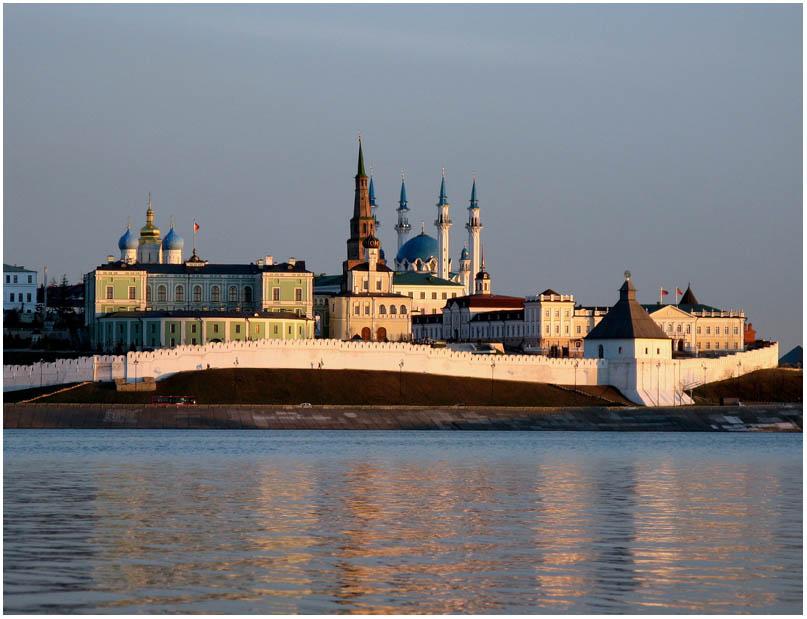 azan
is the capital of the Republic of Tatarstan and a city of more than
one million residents. It is situated on seven hills - just like
Rome. It occupies an area on the left bank of the Volga River and on
both banks of the Kazanka. It has its own Kremlin, Russia's third
oldest university and a number of mosques. As one of Russia's oldest
cities, Kazan celebrated its 1,000th anniversary in 2005.
azan
is the capital of the Republic of Tatarstan and a city of more than
one million residents. It is situated on seven hills - just like
Rome. It occupies an area on the left bank of the Volga River and on
both banks of the Kazanka. It has its own Kremlin, Russia's third
oldest university and a number of mosques. As one of Russia's oldest
cities, Kazan celebrated its 1,000th anniversary in 2005.
Tourist: Who was it founded by?
G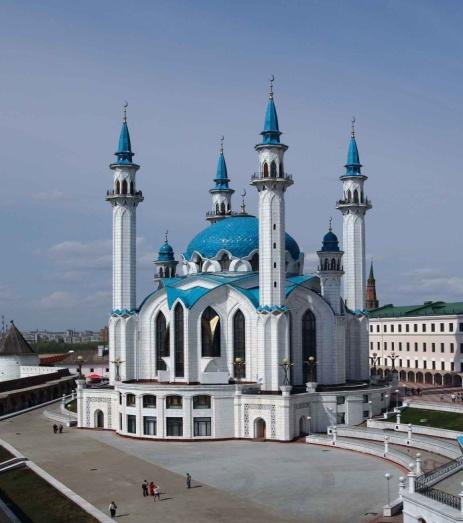 uide:
It
was founded by Bulgars. The first mention of Kazan dates back to the
11th century. Now we are in the historic heart of Kazan - in the
Kremlin. The Kremlin is the former Tatar fortress. The Spassky tower
and the famous falling Suyumbike tower are the architectural symbols
of the city.
uide:
It
was founded by Bulgars. The first mention of Kazan dates back to the
11th century. Now we are in the historic heart of Kazan - in the
Kremlin. The Kremlin is the former Tatar fortress. The Spassky tower
and the famous falling Suyumbike tower are the architectural symbols
of the city.
Tourist: Oh! It’s impressive. What are these?
Guide: Splendid, isn’t it? Orthodox cathedral stands next to the recently built mosque of Kul-Sharif. Tourists are usually impressed by the combination of Russian and Tatar cultures in the architectural appearance of the city.
Tourists: Can we climb up the Kremlin walls?
Guide: Certainly. Turn right and you’ll see the circus and the view of the Kazanka and the city's districts on the opposite bank.
Guide: We are walking along Kremlyovskaya Street. It connects two of Kazan's important sights in the city center The Kremlin and the Kazan State University. On the right is the National Museum. It is worth visiting to learn about the traditional Tatar way of life and history.
H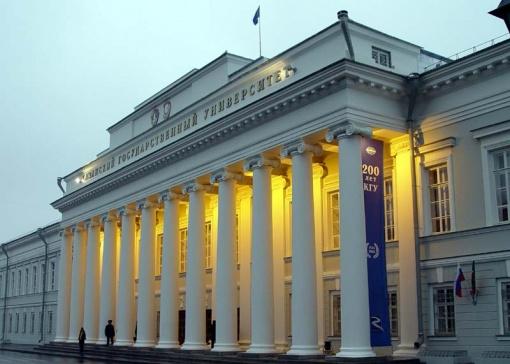 ere
we are! The Kazan State University was founded in 1804. The library
of the university is one of the richest and the most unique in the
world.
The University is the birthplace of organic chemistry, due to the
contribution of Alexander Butlerov, Vladimir Markovnikov, Alexander
Arbuzov and others. It is the alma mater of Nikolai Lobachevsky, the
inventor of non-Euclidean geometry. In
all there are 29 establishments of higher education in the city,
alongside the Science Academy of Tatarstan, the Kazan Center of the
RF Science Academy and a number of scientific and research
institutes.
ere
we are! The Kazan State University was founded in 1804. The library
of the university is one of the richest and the most unique in the
world.
The University is the birthplace of organic chemistry, due to the
contribution of Alexander Butlerov, Vladimir Markovnikov, Alexander
Arbuzov and others. It is the alma mater of Nikolai Lobachevsky, the
inventor of non-Euclidean geometry. In
all there are 29 establishments of higher education in the city,
alongside the Science Academy of Tatarstan, the Kazan Center of the
RF Science Academy and a number of scientific and research
institutes.
T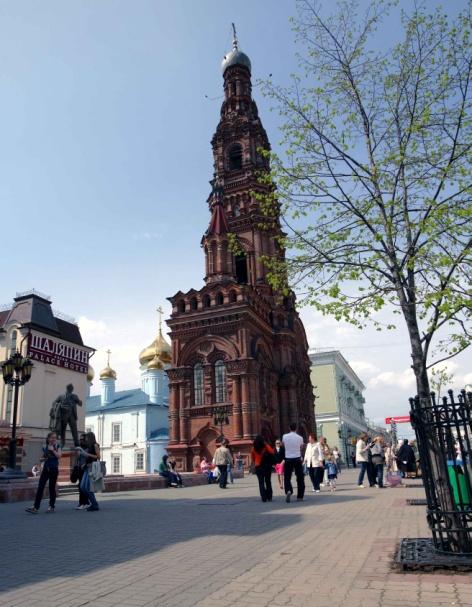 ake
the first turning on the right and you will see that Universitetskaya
Street goes down from the state university building to Gabdulla Tukay
Square. This square is named after the Tatar poet and often referred
to by locals as the ‘Koltso' (Ring).
ake
the first turning on the right and you will see that Universitetskaya
Street goes down from the state university building to Gabdulla Tukay
Square. This square is named after the Tatar poet and often referred
to by locals as the ‘Koltso' (Ring).
Tourist: A real tourist attraction. So many people! Guide: The Ring is the midpoint of the modern city center and a popular hangout for local youths. The square hosts the Koltso shopping center, a few other modern buildings and a monument to revolutionary Vakhitov on a high hill. A pedestrian walkway Bauman Street, like Moscow's Arbat, starts on the Ring. There are many new shopping and office centers around this area.
Tourist: Souvenirs! What should we buy as a keepsake of the city?
Guide: Postcards, pictures and cups with views of Kazan. And don’t forget Tatar national sweets. They are worth buying!
Guide:
We go straight ahead along Pushkin Street to the Opera and Ballet
Theater named after M. Jalil. Being the centre of multi-national
culture, Kazan holds the
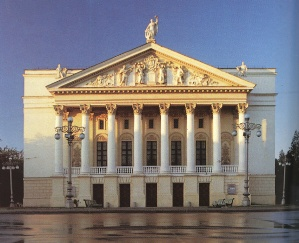

International Festival of Opera Singing, named after Shalyapin and the International Festival of Ballet Dancing. The citizens and the guests have at their disposal six theatres, Philharmonic, a number of museums, among them is the Fine Arts museum, concert and exhibition halls.
This is the end of our excursion. Have you got any questions?
Tourist: I heard much about Moslem mosques. Where can I find them?
Guide: Most of the mosques are around the lake Kaban. It’s the area where the Tatars used to live before the revolution.
Tourist: Could you tell me how to get there?
Guide: Sure! Take any bus to Moskovskaja Street. There you’ll find the Asimov mosque, the most beautiful one in Kazan, and the Mardzhany mosque, the oldest of them. On the right bank of Kaban you will see the minaret of Zakabannaya mosque.
Tourist: Thank you very much!
Guide: You are welcome. Good luck!
SPEAKING
A. Kazan is the city where a lot can be seen and much can be done. Develop this idea and say what people can see and do in the capital of Tatarstan.
B. Imagine that a group of teenagers has come to Kazan. What will you tell them about Kazan or a place where you live.
C. You are talking to a friend. Make up questions about the places he/she has seen.
Where/Kremlin street/ situated?
When/the St. Peter and Paul Cathedral/built?
When/the Suyumbike Tower/ appear?
Where/the Governor’s Palace/located?
When/the Palace of the President of Tatarstan/erected?
When/the Tainitskaya Tower/ ruined?
D. Imagine you are a teacher. Let your classmates answer your questions.
T: Why did you go to the Kazan Kremlin?
S1: I went there to see the Suyumbike Tower.
T: When did you go there?
S1: I went there in summer.
Why/Kazan? When/there?
Why/Bauman Street? When/there?
Why/the National museum of Tatarstan? When/there?
Why/Square named after G.Tukai? When/there?
Why/Musa Jalil Street? When/there?
Why/University Street? When/there?
E. Create the Fact File of Kazan describing its location, religions, emblem, population and places of interest.
OVER TO YOU
A. Here are some extracts from a sightseeing programme for a group of tourists who visit Kazan for 4 days. When they arrived at the Kazan railway station they were met by the representatives of the Tourist Agency which organized their trip, who acted as their guides.
1) Discuss what you think the tourists could do on Wednesday and Thursday. Work out a programme for these days. Some ideas: The Kremlin, Bauman street, Kremlyovskaya street, the National museum, the art gallery, shopping, etc.
2) Discuss the programme and express your opinion of it. Would you be satisfied with this programme if you were in the group? Which of the visits do you think would be the most interesting for you? Why?
|
Programme for a visit to Kazan
Monday 1st July
19.30 Dinner at the hotel. Evening free Tuesday 2nd July 07.30-08.30 Breakfast 09.00 Departure from the hotel by coach for the sightseeing tour of Kazan including the river port, Bulak street 12.30 Lunch in a typical tatar café “Al-Anash” 13.30-18.00 Free time 18.00 Dinner at the hotel 20.00 Kazan at night. The coach tour of the illuminated places of interest. Wednesday 3rd July… Thursday 4th July …
|
B. If you come from other cities of Russia and Tatarstan, you may prefer to speak about your native town or city. Work out a plan of places to visit and to see in it. Present it as an excursion around the city.
WORD FILE
|
Unit 2 Module 3 | ||
|
anniversary to date back to (from) a fortress due to a contribution an establishment alongside midpoint to host
|
a pedestrian walkway a keepsake to hold to have smth at one’s disposal mosque to found it is worth +Ving to contribute to smth contribution
|
hangout pedestrian walkway keepsake to hold sights to do the sights/to go sightseeing |
UNIT 3
ENGLISH SPEAKING COUNTRIES
PREVIEW
What countries is English the first language? Match English-speaking countries with their national flags and capitals.
|
the USA Australia Great Britain Canada the Republic of Ireland New Zealand
|
|
Washington D.C. Wellington London Ottawa Canberra Dublin
|
Do you know where English is the second official language? Rearrange the letters and read some of these countries, name their capitals.
ANIID ~ ESLRIA ~ ONGHOGNK ~ LMTAA ~ HETCEURBPILFOUHSTORAFIAC

Module 1 Across Britain
Match the facts about the UK with the places on the map.
|
|
|
e
|
|
|
f. Prime Meridian (0 degree meridian) passes through this place
|
of the most famous sights in the world
|
|
g
|
|
d. It is the UK’s2nd largest city in terms o |
|
h. Thanks to this it takes just 35 minutes to get from England to France |
READING 1: PHYSICAL GEOGRAPHY
Study the vocabulary from Exercises B, E.
|
island |
a piece of land completely surrounded by water |
|
isle |
a word for an island, used in poetry or in names of islands: the British Isles |
|
peninsula |
a piece of land almost completely surrounded by water but joined to a large mass of land |
|
mainland |
the main area of land that forms a country, as compared to islands near it that are also part of that country |
|
coast |
the area where the land meets the sea |
|
off the coast |
in the sea near the land |
|
latitude |
the distance north or south of the equator measured in degrees |
|
mild |
not to cold or wet, and sometimes pleasantly warm |
|
temperatemoderate |
a type of weather that is never very hot or very cold |
|
extreme n |
something that goes beyond normal limits, so that it seems very unusual and unacceptable |
|
rainfall |
the amount of rain that falls on an area in a particular period of time |
|
spell n |
a period of a particular kind of activity, weather etc, usually a short period: sunny spell |
|
shower |
a short period of rain or snow |
|
gale |
a very strong wind |
B. Read and translate the text.
The British Isles is the geographical term for a group of about 5,000 islands off the north-west coast of mainland Europe. The largest island is Britain or Great Britain, which is also the largest island in Europe. It consists of England (south eastern part), Wales (south western part) and Scotland (northern part). The next largest island is Ireland, which is made up of Northern Ireland (or Ulster) and the Irish Republic (also known as Eire). Britain and Northern Ireland, together with a number of small islands, form the United Kingdom of Britain and Northern Ireland, more commonly known as the United Kingdom. With a total population of 58 million people the UK ranks about fifteenth in the world.
Britain has a generally mild, temperate climate. The weather, however, tends to be very changeable as a result of constant influence of different air masses. South-western winds bring warm air from the Atlantic. There are few extremes in temperature, which rarely goes above 32˚C or below - 10˚C. In summer southern Britain is warmer than northern Britain because of its latitude but, in winter a warm sea current keeps the west milder than the east. Consequently Wales and the south-west peninsula have the most moderate climate and eastern England is the most extreme. The west and the north of Britain get more annual rainfall than its eastern and central parts. The reason is that western areas are more mountainous and higher than the rest of the country and therefore they get more rain.
C. Match the names with the maps.
|
|
|
|
the British Isles the UK Great Britain England Scotland Wales |
|
a) |
b) |
c) | |
|
|
|
| |
|
d) |
e) |
f) |
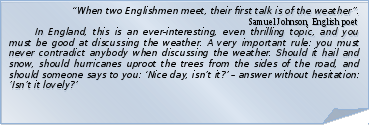
D. Speak about the weather features and its causes in Britain.
|
C |
Weather features |
1very changeable weather 2 few extremes in temperature 3 south warmer than North 4 west milder than East 5 west wetter than East |
E. Match the weather forecast with the correct chart. Then write a weather forecast for the other chart.
|
|
 eather
forecast
eather
forecastCloud with a little rain will persist over south-eastern parts of England, but there will be sunny spells over much of the country. Showers will extend from the north west through western areas of Scotland and Northern Ireland. Some of these showers will be heavy on west-facing coasts. Temperatures will be quite mild for January, with a minimum of 7 degrees Celsius in northern Scotland and a maximum of 11 degrees Celsius in south-west England but there will be a strong westerly wind with gales in the far south-west.
F. Look through the texts again and find A) synonyms and B) antonyms for the following words and phrases.
|
A) |
strong wind |
|
B) |
a little rain |
| |
|
be made up of |
|
above |
| |||
|
rainfall |
|
the most moderate |
| |||
|
|
|
|
| |||
|
parts |
|
changeable |
| |||
|
mild |
|
|
minimum |
| ||
G. What do we add to short regular adjectives to make comparative and superlative forms? What do we add to long adjectives? Translate the following sentences.
Великобритания – самый большой остров в Европе. 2) Ольстер более известен как Северная Ирландия. 3) Благодаря теплому морскому течению климат на западе мягче, чем на востоке. 4) В Уэльсе самый умеренный климат, а восточная часть Англии больше всего подвержена резким климатическим изменениям. 5) На севере и на западе Великобритании выпадает больше осадков, чем на востоке. 6) В западной части острова больше гор и возвышенностей.
READING 2: BRITAIN
Solve the quiz and check your answers.
|
The longest river in the UK is …
|
Ben Nevis is …
|
|
The symbol of Scotland is …
|
The capital of Wales is …
|
|
All the following languages are spoken in the UK except …
|
The flag of the UK is called the …
|
Study the vocabulary.
|
flat adj |
smooth and level |
|
valley |
an area of land between two lines of hills or mountains, usually with a river flowing through it |
|
plain n |
a large area of flat dry land |
|
range |
a group of mountains or hills, usually in a line |
|
rural |
happening in or connected with countryside, not the city |
|
agriculture |
the practice or science of farming |
|
dairy farming |
the practice or business of keeping cows to produce milk |
|
pasture |
land or a field that is covered with grass and is used for cattle, sheep etc to feed on |
|
sheet |
a large flat area of something such as ice or water spread over a surface |
|
plateau |
a large area of flat land that is higher than the land around it |
C. Read and translate the text.
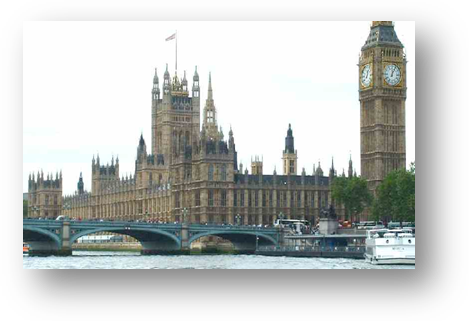
England information file: Total population 49 mln. Capital - London. National day - St. George, April 23. National symbols - Red rose, lion, and bulldog. Language - English.
Of the four parts which make up Great Britain England is the largest and most densely populated part of the United Kingdom. The greatest concentrations of population are in London, Birmingham and north-west industrial cities.
England is mostly a lowland country. There are upland regions in the north and in the southwest, but the rest of England is almost flat. The coasts of England are washed by the North Sea, the Irish Sea, the English Channel and the Straight of Dover. There are many rivers in England. The longest is the Severn, the most important is the Thames.
Northwest England, the Midlands and Southern England – each part of England is different. The Lake District in Northern England with its lakes, mountains and valleys is a favorite holiday area. The Midlands contain major industrial centers of England as well as provide good plains for farming. Southern England is famous for some of the oldest British settlements and traces of ancient monuments such as Stonehenge. It is also where the capital of England is located, the city which being an important commercial and cultural centre dominates the life of Britain.
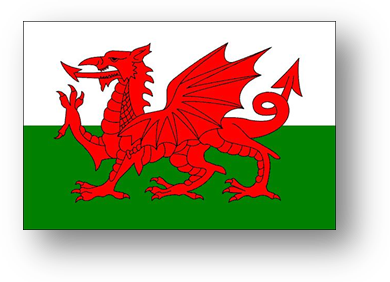
Wales information file: Total population – 2,5 mln. Capital – Cardiff. National day – St. David’s day, March 1st. National symbols – Dragon, leek, daffodil. Languages - English, Welsh.
It is the largest of the peninsulas on the western side of Britain. It consists of a complex of mountain ranges, which are called the Cambrian Mountains. The highest area occurs in the north, especially around Snowdon (1,085 m). In the upland areas sheep are the basis of the rural economy, and in the low-lying parts near the coast and in the valley bottoms dairy farming predominates.
The capital of Wales is Cardiff. It is an important industrial city and a port. It is also an administrative and educative centre.
The Welsh people, especially in rural areas, are fond of folk music, singing, poetry and drama. Welsh literature is one of the oldest in Europe.
S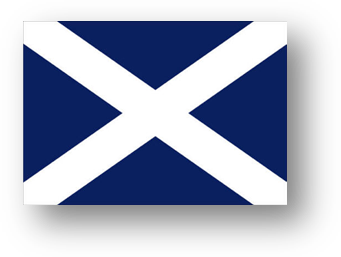 cotland
information file: Total population – 5 mln. Capital – Edinburgh.
National day – St. Andrew’s Day, November 30. National Symbols –
Thistle, tartan. Languages - English, Scottish, Gaelic.
cotland
information file: Total population – 5 mln. Capital – Edinburgh.
National day – St. Andrew’s Day, November 30. National Symbols –
Thistle, tartan. Languages - English, Scottish, Gaelic.
Although Scotland takes up one third of the territory of the British Isles it is not very densely populated mostly due to its northern location. Climatically the region has some of the most severe weather experienced in Great Britain. It is famous for its mountains. The Highlands of Scotland are among the highest mountains in the world. They reach their highest point in Ben Nevis (1,347 m). There are three lakes there, one of them, Loch Ness, is said to be the home of the “monster”.
The present-day economy of the region is dominated by agriculture. The region is clearly divided between the sheep pastures of the uplands & the more diversified farming areas of the lowlands.
The capital of Scotland is Edinburgh which is also the cultural centre of Scotland. It is associated with the names of George Gordon Byron and Walter Scott, Robert Luis Stevenson, Robert Burns and Arthur Conan Doyle.
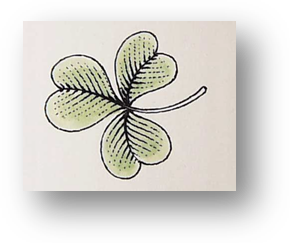
Northern Ireland information file: Capital – Belfast. Patron saint - Saint Patrick. Languages - English, Irish, Gaelic. National Symbol – Shamrock.
The regional geography of the island is simpler than that of Great Britain, and especially than the regional geography of England. A large proportion of Ireland‘s territory consists of either uninhabitable mountain territories, or valleys & lowlands containing innumerable sheets of water. In the extreme north-east is the Antrim Plateau or Mountains of Antrim. Being geographically an island and a single unit, Ireland is politically divided into the Irish Free State & Northern Ireland or Ulster.
D. Draw the table and complete the information file on the UK.
|
|
Capital |
Total population |
Language |
National symbol |
Famous people/places etc |
Rivers |
Mountains Highest points
|
|
England |
|
|
|
|
|
|
|
|
Wales |
|
|
|
|
|
|
|
|
Scotland |
|
|
|
|
|
|
|
|
Northern Ireland |
|
|
|
|
|
|
|
E. Decide what part of the UK is described in the following sentences.
1) Most of the population and territory of the UK is concentrated here.
2) This mountainous country is well-known for its beautiful scenery and world famous writers.
3) Cattle breeding and farming play a vital role in the economy of this country.
4) It is located on an island the part of which is an independent state.
*Add one more sentence of your own about each part of the UK.
F. Rearrange letters and guess synonyms.
|
eht ttregaes oetonnnccrstia fo louatpionp |
eyenlds tplaeoudp |
|
wlo-gilny sptar |
dallonw |
|
rlaur nyecoom |
gueilctaurr |
G. Speak about the four parts of the UK using the prompts.
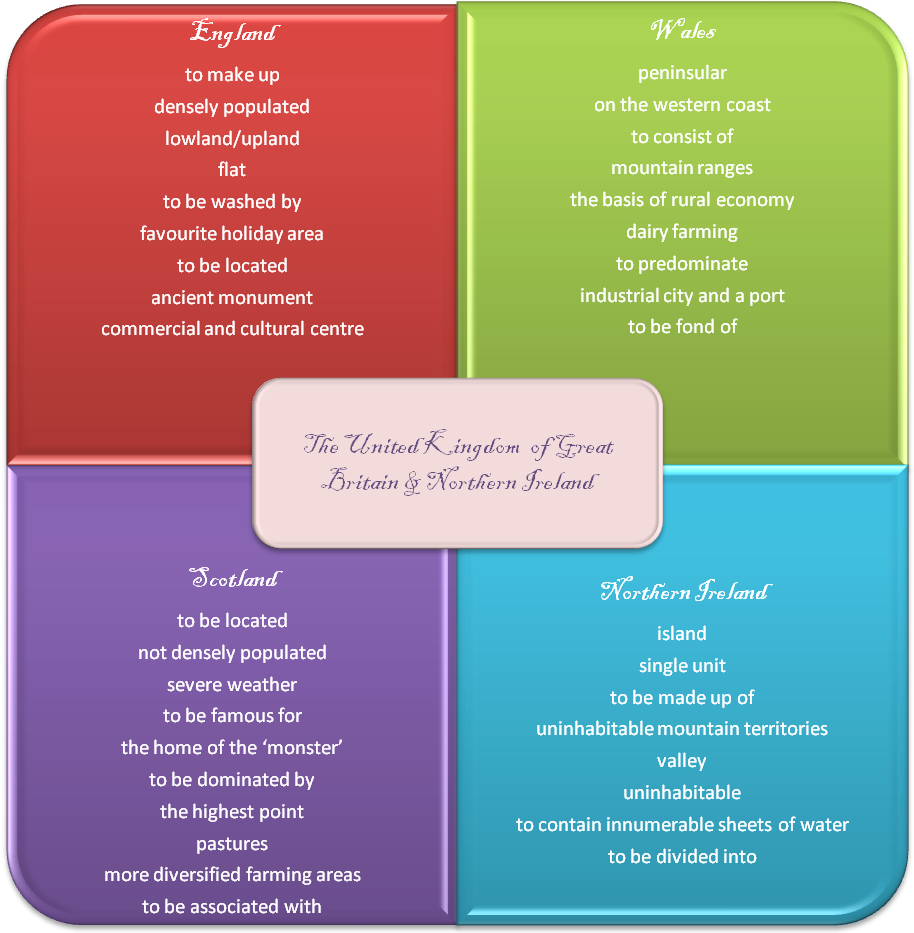
GRAMMAR: PROPER NOUNS & ‘THE’
Write down the italicized phrases from the text. Match them to these uses of ‘the’.
|
We use ‘the’ with: |
We do not use ‘the’ with: |
g) nationality words (people) |
g) cities/towns/suburbs/villages |
B.
Put in these names in the sentences below: English
Channel and Straight of Dover, Cambrian Mountains, Wales, UK,
Irish Republic, Severn and Thames, Ben Nevis, Welsh people, British
Isles.
Decide
if you need ‘the’.
1) The UK is England, Wales, Scotland and Northern Ireland.
2) … separate Great Britain from France.
3) …flow through England.
4) Cardiff is the capital of ….
5) … are a complex of mountain ranges on the western side of Britain.
6) Dublin is in …
7) … is a geographical name denoting a group of islands.
8) …is the highest point of the Highlands of Scotland.
9) The people of Wales are …
C. Read these sentences. Some are correct, but some need ‘the’. Correct the sentences where necessary.
Last year we visited Canada and United States.
Africa is much larger than Europe.
South of England is warmer than north.
We went to Spain for our holidays and swam in Mediterranean.
Tom has visited many countries in Eastern Europe.
A friend of mine used to work as a reporter in Middle East.
Next year we are going skiing in Swiss Alps.
Malta has been a republic since 1974.
Nile is the longest river in Africa.
Have you ever been to Philippines?
Belgium is smaller than Netherlands.
Rocky Mountains are in North America.
Panama Canal joins Atlantic Ocean and Pacific Ocean.
The last areas to resist the English were the north of Ireland, Ulster, but in the end the Irish were defeated.
LISTENING 1: LONDON IN A DAY
(Total English, Intermediate, Student’s Book, Track 6.8)
A. Before you listen, say when you visit another city, what do you enjoy/not enjoy doing?
B. You are going to plan a day trip for your group in London. Look at the 'What's on in London?' leaflets below and find:
|
|
What’s on in London
|
General Tour around London on a Big Red Bus. Enjoy the views from the top of this famous London bus, as you learn about the sights from one of our friendly guides. Half-day tour, £25 per person. London walks - Experience London on foot with one of our specialized walking tours. £5 per two-hour walk. Camden market - the perfect place to walk around and visit shops, eat in a local cafe, buy some arts and crafts and just sit with a coffee and watch London go by. Colorful, fun and cheap - this is real London. Buckingham Palace – Queen’s residence. Entrance ticket: £12 per person. Watch the Changing of the Guard outside Buckingham Palace at 2p.m. every afternoon.
|
|
Museums and Galleries Madame Tussaud’s - Visit the museum to see their world famous wax models of famous stars, past and present A very popular attraction, you might have to wait over an hour to get in. £24.50. The British Museum – has outstanding collections that cover world cultures from prehistory to the present day. Free. The National Gallery –The National Gallery, London, houses one of the greatest collections of European painting in the world, with over 2,300 paintings covering the period from about 1250 to 1900. Free. |
|
Shopping Shop at Harrods - the most famous department store in the world. Buy exclusive souvenirs for family and friends, and enjoy afternoon tea and wonderful views across London in our sky-view cafe. |
|
Business center The City of London – the financial district, known simply as 'the City', occupies one square mile of central London. Although the City is central to international finance, to many observers it seems increasingly independent of the British domestic economy. |
C. Listen to three people planning a day trip. Write down three things they decide to do.
D. Plan your day, using ‘What’s on in London?’ leaflets. You can spend £100 each. Plan activities for the morning, the afternoon and the evening.
LANGUAGE SKILLS: EXPRESSING PREFERENCES AND WISHES. EXPLAINING THE CHOICE

SPEAKING: TOP THINGS TO DO IN ENGLAND!
With a partner study the popular activities offered to tourists in England. Choose any three you would wish to do and give arguments to support your choice. Use the language skills given above.
• Visit
London's
huge range of museums, houses, churches and galleries, or spend
away in its vast choice of shops and markets
• Catch
a match of football
-
a major sport in England and extremely popular
• Attend
a
performance
at the
Royal Shakespeare Theatre
in Stratford-upon-Avon,
once home to William Shakespeare. His birthplace and
relatives' houses can be visited.
• Spend
a day in Windsdor,
and explore the famous castle that is one of the Queen's official
residences.
• Escape
to Cambria,
where the Lake
District National Park is
dominated by England's highest mountains.
• Walk
along 1,800-year-old Hadrian's
Wall,
which spans England from west of the border city of Carlisle
to Newcastle,
marking the northern boundary of the Roman Empire.
B. Search the Internet! Find out the popular activities of Scotland, Wales and Northern Ireland and present your findings to the class.
WRITING: PERSONAL/INFORMAL LETTER. LETTER OF REQUEST
You are going to England for holiday. You would like to stay for a few days at your English friend’s. Write a letter and ask if it is possible.
Describe briefly your holiday plans.
Present your request.
Say how long you would like to stay.
Express hope for her/his return visit to Russia.
Write 120 – 150 words. Use informal letter plan given below.
|
Informal letter plan | |
|
|
Dear … , |
|
Paragraph 1 |
It was so good to hear from you. Thanks for your recent letter. I’m sorry I haven’t written for so long, but … |
|
Paragraph 2 |
|
|
Paragraph 3 |
|
|
Paragraph 4 |
|
|
Closing expression (s) |
Give my regards to…, Looking forward to hearing from you/seeing you. All the best… |
|
Your first name |
|
You may use the following phrases:
I’m writing to ask you for your help/to do me a favour.
I wonder/was wondering if I could ask you to …
I would be terribly/really grateful if you could …
LISTENING 2: POLITICS
(In Britain by Michael Vaugham-Rees, Track Politics)
A. Listen to the text “Parliament” and answer the questions below.
1) How many chambers are there in British Parliament and what are they?
2) What are the functions of each house?
3) How many MP’s or seats are there in the House of Commons and how many women are there among them?
4) Does the House of Lords consist of 1203 or 1205 members?
5) Who can be a member of the House of Lords?
6) Is the head of both Houses the Queen or Prime Minister?
B. Now listen to the speaker about forming a government and complete the description using words from the box.
|
Chancellor of the Exchequer MPs ministers 1731 “Downing Street” appoints opposition 11 parliament government |
The party with most (1) forms the (2). The leader of the winning party automatically becomes Prime Minister and (3) the Cabinet. The members of the Cabinet are the leading government (4). The prime minister is the most important person in (5) (Britain does not have a President). The party who comes second is the (6) and forms its own Shadow Cabinet. British Prime ministers have lived at 10 Downing Street since (7). The (8) (responsible for money and finance) lives next door at number (9). People often talk about (10) when they mean the Prime Minister and his or her Cabinet.
READING 3: GREAT BRITAIN ECONOMY
Before you read, think about main characteristics of a nation's economic system.
Skim-read the text and compare your answers with those offered in the text.
Look in the text and find the following words and phrases.
1 торговая держава; за последние двадцать лет; значительно сокращать долю государственной собственности; сократить государственные программы социальной помощи;
2 рабочая сила; уменьшаться; нетто-импортер энергоресурсов/страна с превышением импорта энергоресурсов; на долю энергетической промышленности приходится; банковское дело; страхование; насчитывать/составлять;
3 с момента выхода из рецессии; обгонять/опережать; экономический спад; жесткие условия кредитования; ввергнуть в рецессию; заставлять; осуществлять/вводить ряд мер; сокращать/урезать/снижать налоги;
4 изменения процентной ставки; опросы общественного мнения.
Read and translate the text.
1 The UK, a leading trading power and financial center, is one of the quintet of trillion dollar economies of Western Europe. Over the past two decades, the government has greatly reduced public ownership and contained the growth of social welfare programs.
2 Agriculture is intensive, highly mechanized, and efficient by European standards, producing about 60% of food needs with less than 2% of the labor force. The UK has large coal, natural gas and oil resources, but its oil and natural gas reserves are declining and the UK became a net importer of energy in 2005; energy industries now contribute about 4% to GDP. Services, particularly banking, insurance, and business services, account by far for the largest proportion of GDP while industry continues to decline in importance.
3 Since emerging from recession in 1992, Britain’s economy enjoyed the longest period of expansion during which time growth outpaced most Western Europe. The global economic slowdown, tight credit, and falling home prices, however, pushed Britain back into recession in the latter half of 2008 and prompted the government to implement a number of new measures to stimulate the economy and stabilize the financial markets; these include part-nationalizing the banking system, cutting taxes etc.
4 The Bank of England periodically coordinates interest rate moves with the European Central Bank, but Britain remains outside the European Economic and Monetary Union, and opinion polls show a majority of Britons oppose joining the euro.
To the given words and word combinations find in the text: A) synonyms; B) antonyms.
A)
slowdown
resources
reduce
B)
join
nationalize
Which words below have a positive meaning? Which have a negative one? Use these words to complete the sentences below.
|
leading tight falling intensive highly mechanized efficient to reduce to contain to emerge from to outpace to decline to enjoy to cut to stimulate to stabilize to suspend to oppose |
The English do … life.
Production processes in Europe are … …
It is also an … time for the production team.
The health care could be more …
It is one of the UK’s … producers.
6) Credit conditions remain …, while affordability, especially in London, is still poor.
7) UK house prices saw a slight rally last month after … at the end of the year.
8) High interest rates, rising oil and food prices are likely to … growth at about 7.5%, analysts said, down from 9% or more in previous years.
9) … reserves of North Sea gas and oil mean that by the end of the decade, the UK will be a net energy importer for the first time since the Industrial Revolution.
10) The Scottish economy is likely to … recession and return to weak growth by the spring.
11) The rise in London house prices has dramatically … Londoners' salary increases.
12) The prime minister regards help for people on low incomes as the most efficient way to … the economy.
13) Government faced a choice between … taxes, boosting infrastructure spending and helping people on low incomes.
14) But more needs to be done to … financial markets and support economic growth
15) The institution has asked the European Union's highest court to annul a decision by EU finance ministers to temporarily … the rules.
16) Conservative party leader … city parking tax.
17) Northern Ireland’s health trusts have made significant progress in … their financial deficits.
Draw the table ‘Britain’s economy over the last decades’ and complete it.
Britain’s economy over the last decades
|
Period of time |
Critical activities |
|
over the past two decades |
|
|
since 1992 |
|
|
in the late 2008 |
|
H. Answer the following questions about the text.
How is Britain’s economy characterized in general? What is the statistic used to measure the economy? How do you understand the following – “one of the quintet of trillion dollar economies”?
The first ingredient of a nation's economic system is its natural resources. What about the UK?
What is the UK’s CB? Does the UK undertake an independent monetary policy? Is Britain a member of the euro zone?
What is the key sector of Britain’s economy? What does it cover? How much does it contribute to GDP? What industries decline? How do you understand the following – “a net importer of energy”?
I. Summarize the information about Britain’s Economy. Use the headings below.

OVER TO YOU
Search the Internet and find the information on the topics below. Write a summary about Britain’s economy on one of the following topics and make a presentation to your group mates.
|
|
| |
GRAMMAR: TWO OR MORE NOUNS TOGETHER
A. In English two or more nouns can be combined together. In the noun + noun construction, the first noun functions like an adjective and describes the second noun. Very often, the first noun answers the question What kind? Translate these noun combinations from the text:
oil resources (the resources of oil)
interest rate moves (moves of a rate of interest)
Find other noun combinations and translate them. Give examples of your own.
GRAMMAR: VERB+ing
B. What are the main forms of the verb? Study these uses of verb+ing and translate the examples from the text.
|
Uses of verb+ing |
Examples |
|
as an adjective |
The UK is a leading trading power. |
|
as part of continuous verb form |
Britain’s oil and natural gas reserves are declining. |
|
as a noun and the subject
|
Services, particularly banking, account by far for the largest proportion of GDP. |
|
an ‘-ing’ clause after a noun |
Agriculture producing about 60% of food needs is highly mechanized and efficient. |
|
after certain verbs* |
A number of new measures to stimulate the economy and stabilize the financial markets include part-nationalizing the banking system, cutting taxes etc. |
|
the preposition + ‘-ing’ (words commonly used in this pattern include after, before, besides, by, in, on, since, through, when, while, with, without) |
Since emerging from recession in 1992, Britain’s economy enjoyed the longest period of expansion. |
* 1. Many verbs are followed by ‘-ing’ form.
Verbs of liking and disliking
-
adore
detest
dislike
dread
enjoy
fancy
like
love
mind
resent
I don’t mind telling you.
Verbs of saying and thinking
-
admit
consider
deny
describe
imagine
mention
recall
suggest
recommend
understand
Can you imagine buying that car!
Other common verbs
-
avoid
commence
delay
finish
face
include
involve
keep
miss
postpone
practise
resist
risk
save
stop
Avoid giving any unnecessary data.
Common phrasal verbs
-
burst out
carry on
end up
give up
go round
keep on
put off
set about
look forward to
leave off
They kept on working for a while.
Some common phrases
-
can’t help can’t stand feel like
I can’t help worrying.
NB With the verbs underlined we can also put an object before the ‘–ing’ form.
Can you imagine Helen buying that car!
2. Sometimes we need to decide whether to use a verb in its ‘-ing’ form (doing, working) or infinitive (to do, to work).
The –ing form focuses on:
a) an action or state before the action of the first verb.
He finished doing her accounts yesterday.
b) the activity itself. The second verb functions like a noun.
He recommends selling shares now.
The to-infinitive form focuses on:
a) a purpose
She wishes to ask you a favour.
b) a future situation
They are planning to launch a new project.
3. Some verbs can be followed by either ‘–ing’ form or an infinitive.
-
attempt
begin
bother
can’t bear
can’t stand
cease
continue
deserve
fear
forget
go on
hate
intend
like (=enjoy)
love
mean
prefer
regret
remember
start
stop
try
I love meeting people. = I love to meet new people.
NB The underlined verbs can be followed by either ‘–ing’ form or an infinitive but the meanings are very different!!!
They stopped making fax machines. (finish an action)
We stopped to get petrol. (finish one action in order to do another one)
C. Look at the italicized words in the sentences below and say what the ways of using “verb+ing” are? Translate these sentences.
1) The UK is steadily moving towards the formation of a knowledge-based economy focusing on high technology, flexible workforce and innovative work solutions. 2) More than 25 percent of entrepreneurs established financial companies, dealing in public shares and bonds. 3) The business and financial services include the trading, investment and real estate sector. 5) This business offers more freedom in making company policies. 6) Processing raw materials is the field of the manufacturing sector.7) Revenues have stopped coming in.8) The English dislike people asking them what they earn.
D. Make up ‘-ing’ clauses.
The UK is steadily moving towards the formation of a knowledge-based economy that focuses on high technology, flexible workforce and innovative work solutions.
A business plan is a communication tool for entrepreneurs who start a new company or establish a new line of business in an existing company.
Statistics indicate that the UK health industry which includes the pharmaceutical industry accounts for more than 48 percent of the gross domestic product.
While he testified to the Senate Finance Committee, US trade representative said about broader institutional reforms at the WTO.
When people consume goods and services, they provide a basis for further production.
Most people who own a house have a mortgage.
E. Open the brackets using an ‘-ing’ form or infinitive.
I’m still looking for a job but I hope (find) something soon.
They risk (lose) business to their competitors.
Please don’t forget (send) the samples.
He denies (pass on) any trade secrets.
They are planning (launch) a new line of clothes.
Does your job involve (meet) a lot of people?
They agreed (lend) me some money.
We should start (build) partnerships today.
Study some other ways of using Verb+ing. Translate the examples.
|
Uses of verb+ing |
Examples |
|
in contrast clauses after despite, in spite of, although, though |
Although accounting for only about 1 per cent of the world’s population, Britain is the fourth largest trading nation in the world. |
|
after fixed phrases There’s no point (in)… It’s a waste of time/money… It’s (not) worth … It’s no use … |
It is worth remembering that the Union Jack is more popular in England than in Ireland, Scotland and Wales.
|
G. Translate the sentences and say what the ways of translation of
‘-ing’ form in Russian are.
1) It’s a waste of money buying things you don’t need. 2) It’s no use arguing any more. 3) Britain is a leading member of both the EU and the Commonwealth. 4) In the fields of arts, broadcasting and sport Britain continues to lead the world. 5) Despite having only 1 % of the world’s population, Britain is the fourth largest trading nation in the world. 6) British agriculture is noted for its efficiency and productivity and at the same time comprehensive planning and control have steadily reduced air and water pollution. 7) Tax policy in a developing country constitutes an essential part of development policy. 8) Banks put much of their funds in a variety of bonds and other lower-yielding financial instruments. 9) Resulting profit or loss will cause a change in the proprietor’s capital. 10) An accounting period may follow the calendar, in which case it begins on January 1 and ends on December 31 of the same year. The business is then said to have a calendar-year accounting period. Any business that has an accounting period consisting of 12 months other than a calendar year is generally known as a fiscal-year accounting period. 11) The financial statements present the accounting information in formal reports that tell managers, creditors, prospective investors, how the business is doing. 12) The National Bureau of Economic Research determines the amount of the business activity in the economy by looking at things like employment, industrial production, real income and wholesale-retail sales. 13) Banks prefer to make loans instead of simply putting their money into bonds and other safer investments. 14) All businesses exist for the purpose of earning a profit. 15) Consumer loans are used mainly for financing major purchases. 16) A good rule of thumb for determining the difference between a recession and a depression is to look at the changes in GNP. 17) A bank’s principal activities revolve around gathering deposits and placing this money in either loans or investments of various kinds. 18) The most obvious way in which additional assets can be obtained for the business is by borrowing. 19) Investments may be either short- or long-term assets depending on the nature of the investments. 20) The Bank’s report on aid effectiveness identified a number of policies, ranging from micro-economic stability, through micro-economic efficiency, to the policies oriented towards the poor. 21) The EU imposes strict quotas and high tariffs on products from efficient producers in Latin America, while allowing free access to those from a handful of small African, Caribbean and Pacific countries. It claims it is providing aid by giving producers from poor countries preferential access and good prices. 22) WTO members’ common goal is rising standards of living in developing countries. Achieving that goal will require difficult decisions.

Do you know these famous Britons? Do these puzzles and read three more noted Britons.
|
|
|
| |||||||||||||||||||||||||||||||||||||||||||||||||||||||||||||||||||||||||||||||||||||||||||||||||||||||||||||||||||||||||||||||||||||||||
|
| |||||||||||||||||||||||||||||||||||||||||||||||||||||||||||||||||||||||||||||||||||||||||||||||||||||||||||||||||||||||||||||||||||||||||||
|
|
|
| |||||||||||||||||||||||||||||||||||||||||||||||||||||||||||||||||||||||||||||||||||||||||||||||||||||||||||||||||||||||||||||||||||||||||
|
|
1 One of Britain’s greatest leaders, who was the Prime Minister of the country during World War II
2 He discovered the law of gravity when an apple fell on his head
3 He tried to prove that our remote granddads and grannies were monkeys
4 This man invented the telephone
5 This Queen ruled for the longest period in British history
6 A member of the Beatles who was murdered in the US
7 The author of Jungle Book
|
|
|
|
1 Scotland’s national poet
2 The author of Treasure Land
3 The author of Ivanhoe
4 A famous explorer who discovered Australia and Hawaii
5 A comic actor with a small black moustache, a bowler hat, and a funny way of walking
6 The author of Alice in Wonderland
7 A very famous singer, once a member of the Beatles
GRAMMAR: PARTICIPLE 2/PAST PARTICIPLE/V-ed form/V3
|
Uses of V3 |
Examples |
|
as a part of a perfect verb form
|
Britain has become self-sufficient in energy It had imported over 99 percent of petroleum before oil and gas reserves were found in the North Sea |
|
as a part of a passive verb form |
The United Kingdom is headed by the Queen. |
|
as an adjective before or after a noun |
The closed door The improved variant The work done The cars produced |
A. Open the brackets putting the verb in the form of Past Participle and explain the case of using a Past Participle form.
The Museum of Madame Tussaud (visit) by a group of students was a big success.
The score (receive) on an exam was not enough to enter Cambridge University.
The plant introduced a new wage piece system to increase the number of cars (produce).
Taxes (levy) on the population in Britain are a relatively small proportion.
World War II (follow) by the Civil War caused great damage to the economy of the country.
This has (be) an excellent year so far, and we have (reach) most of our sales targets.
I was looking forward to my business trip to England because I had never (be) to England before.
The Channel Tunnel was (build) in 1961.
Enterprises (own) by the state constitute the greater part.
The Russian word “оффшорный” (borrow) from English means unregulated or out of control.
B. Translate the sentences into Russian paying attention to the function of Past Participle form.
Training should combine theory and practice in the field chosen.
The amount of electricity generated was not enough.
The results obtained were thoroughly analyzed.
The workers freed in one place are transferred to other shops.
More than 25% of all exported machinery are intended for building projects carried out with our technical assistance.
Attempts made to find a suitable approach only led to internal contradictions.
There hadn’t been any significant improvement before the new production methods were introduced.
This redistribution of funds guaranteed accelerated rates of economic growth.
Products made at our plant are quite competitive in the local market.
The cost of your purchases and of the services rendered is put on the account indicated on the card.
WORD FILE
|
Unit 3 Module 1 | ||
|
island isle peninsula mainland coast off the coast latitude rainfall spell n shower gale mountain range pasture sheets of water plains (for farming) lowland upland valley settlement rural economy agriculture dairy farming changeable constant |
uninhabitable innumerable mild temperate/moderate severe flat densely populated commercial extreme n, adj consequently rarely mostly due to to consist of to be made up of to rank to tend to persist to extend to contain to trace of to be fond of to take up to reduce to decline in importance |
to account for to outpace to push back into recession to implement a number of measures to cut taxes to remain to oppose doing smth trading power decade public ownership growth social welfare programmes needs labour force banking insurance services GDP economic slowdown expansion interest rate opinion polls majority
|
Module 2 The USA
PREIVIEW
Match pictures 1 – 7 with their descriptions 1) – 6).
|
1 |
|
2 |
|
3 |
|
|
5
4
| |||||
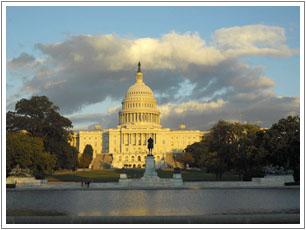 A
A
6
lthough New York City and Philadelphia each served briefly as the capital of the United States, in 1790, Congress chose it as the permanent seat of government. George Washington helped select the site for the city.Nicknamed «the Golden State», it is the third largest state in area after Alaska and Texas. Today it is the land of the giant redwoods; it has the highest population of any state in the nation and is America's principal agricultural state. It is also the home of Hollywood, the center of America's movie and television industry.
One of the original 13 states it is known as the «Empire State». The state includes everything from skyscrapers in Manhattan to rivers, mountains, and lakes. Today, it has the third largest population in the US, and remains the financial center of the country.
The United States Capitol is the meeting place of the United States Congress, thelegislatureof theFederal government of the United States. Located inWashington, D.C., it sits atopCapitol Hill.
A

7
rticle III, §1, of the Constitution provides that “the judicial Power of the United States, shall be vested in one supreme Court, and in such inferior Courts as the Congress may from time to time ordain and establish.”The power of the Executive Branch is vested in the President of the United States, who also acts as head of state and Commander-in-Chief of the armed forces. The White House is the official residence of the President of the United States.
|
|
Make a list of all geographical names mentioned in the text. Be sure that you can read them correctly. Use dictionary if necessary.
Read and translate the text.
The United States of America is the fourth largest country in the world (after Russia, Canada and China). It also includes Alaska in the north and Hawaii in the Pacific Ocean. It covers an area of 3,615,123 sq. mi. (9,375,720 sq. km.). The USA borders on Canada in the north and on Mexico in the south. It also has a sea border with Russia.
The USA is divided into 50 states and the District Columbia, a special federal area where the capital of the country, Washington, is situated. The population of the country is 307,212,123 (July 2009 est.).
The United States of America is a federal union of 50 states, each of which has its own government. The seat of the central (federal) government is Washington, DC. According to the US Constitution the powers of the government are divided into 3 branches: the executive, headed by the President, the legislative, exercised by the Congress, and the juridical. The Congress consists of the Senate and the House of Representatives. There are two main political parties in the USA: the Republican and the Democratic.
The national emblem of the country is the eagle. It has an olive branch (a symbol of peace) and arrows (a symbol of strength). There the eagle on the back of a dollar bill. The Statue of Liberty is the symbol of American democracy. The American flag is called “The Stars and Stripes” or “Old Glory”. It has 13 horizontal stripes, 7 red and 6 white which stand for the original 18 states. In the top left corner there are 50 white stars on a blue background: one star for each state. The national anthem of the US is “The Star Spangled Banner”.
Complete the missing facts about the USA. Use vertical prompts if necessary.
|
Capital City: National Independence: July, 4 1776 (from Great Britain) Motto: National Anthem: Government type: Constitution-based federal republic Administrative divisions: First President: Last Chief of State: Head of Government: the President Political Parties: Internet domain: Largest State:
|
Smallest State: Rhode Island Largest cities: Border Countries and Oceans: Population: Land Area: Highest Point: Mt. McKinley, Alaska, 20,320 ft. (6194 m.) above sea level Lowest Point: Death Valley, California, 282 ft (86 m.) below sea level Largest rivers: National Bird: National Flower:
|
Alaska In God We Trust Rose George Washington the Mississippi the Missouri the Rio Grande the Columbia .us New York City Los Angeles Chicago Philadelphia etc. |
D. Find in the text English phrases corresponding to the Russian equivalents: США граничит с Канадой на севере; США граничит с Мексикой на юге; США поделены на 50 штатов; местонахождение правительства; согласно конституции США; исполнительная власть; законодательная власть; судебная власть; символ американской демократии.
E. Make up questions to the given answers.
1) Alaska and Hawaii.
2) Canada in the north.
3) 50 states and the District Columbia.
4) 3 branches.
5) The Senate and the House of Representatives.
6) In the District Columbia.
F. Explain the meaning of the italicized words and word combinations from the text.
1) It also has a sea border with Russia.
2) The seat of the central government is Washington DC.
3) According to the US Constitution there are three powers of the government.
4) It has 13 horizontal stripes which stand for the 18 states.
5) The national anthem of the USA is “The Star Spangled Banner”.
H. Study the US Government structure and describe it. Use the language given below. Consult the dictionary if necessary. You may start with: The USA is a constitution-based federal republic…
I. What are the largest cities in the USA? What is the Big Apple?
Read the following e-mail and choose the correct words.
|
From: Helen Petrova Subject: New York
Hello/Goodbye from New York I arrived/left here on Friday. I caught the train/plane to Grand Central Terminal/Victoria Station and then the tube/subway to my hotel. It is next to Hyde park/Central Park in the centre of the city. The views/sights from my window are wonderful. Yesterday I went for a walk/ride on the Staten Island ferry/train to see the Statue of Liberty/Eifel Tower. The people of Britain/France gave it to the Americans. For lunch we had a sandwich/afternoon tea in a famous New York deli. Last night I went to a famous theatre on Broadway/Six Avenue, and I saw a very exciting play. After the play I took a yellow/red cab back to my hotel. Tomorrow I am going to see/watch movies/paintings at the Louvre/Metropolitan Museum of Art. Then I am going shopping in Harrods/Macy’s. New York is the most exciting city in the world! People often call it “The Big Apple”/ melting port. Why? In the 1920s and 1930s, jazz musicians/rappers in the United States all wanted to work in New York. “There are a lot of apples on the tree”, they said, “but when you take New York City, you take the Big Apple!” On Monday I am coming home.
See you soon. Helen |
The Government of the United States
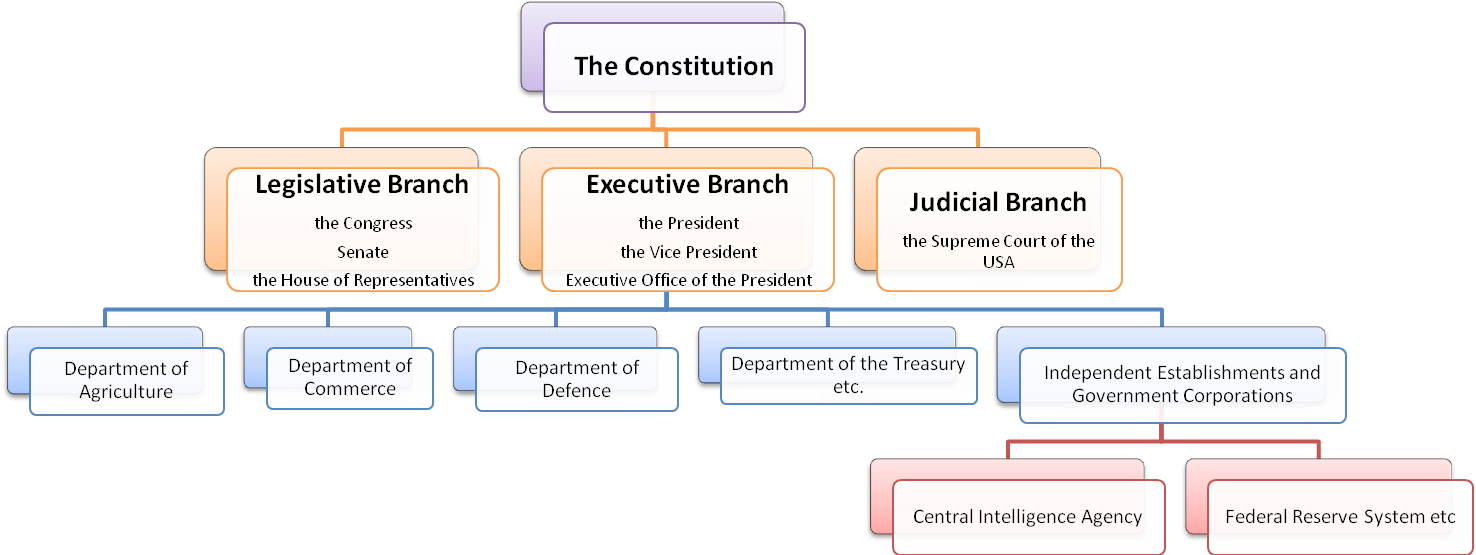
|
According to It is interesting to note that So Besides the fundamental law of the US to be divided |
To be called to be most powerful to have the responsibility to carry out the law to be headed by To make up |
to be in charge of to have political independence from each other to sign bills passed by the Congress to veto the bill to ratify the bill to be proud of |
Before
you read Discuss
the following with your partner. Do
you know much about American economy?
How
do you understand this economists’ proverb “When the United
States sneezes, the rest of the world catches a cold”?
Do
you agree with it?

VOCABULARY
Do you know what these abbreviations stand for? Search a dictionary or the Internet if necessary: The US, the Fed, GDP, the EU, BRIC
Match the words from the text with their definitions, use vertical prompts if necessary.
|
entrepreneur |
things that are produced in order to be sold |
страхование товары объем производства ВНП находящийся в частом владении услуги предприниматель потребитель конгломерат |
|
privately owned (business) |
a particular type of help or work that is provided by a business to a customer, but not only one that involves producing goods | |
|
consumer |
the amount of goods or work produced by a person, machine, factory etc | |
|
goods |
the total value of all the goods and services produced in a country, including income from abroad | |
|
services |
belonging to a private organization | |
|
output
|
an arrangement with a company in which you pay them money each year and they pay the costs if anything bad happens to you | |
|
insurance |
a large business organization consisting of several different companies that joined together | |
|
conglomerate |
someone who buys and uses products or services | |
|
gross national product |
someone who starts a company, arranges business deals and takes risks in order to make a profit |
D. Look at the text below and find English equivalents for the following words and phrases.
1 брать свое начало; в поисках заработка/для улучшения экономического положения/чтобы заработать деньги; по многим меркам; единое экономическое пространство/единое экономическое целое/единая экономическая система; экономический рост; рабочая сила; высшие должностные лица в правительстве и в бизнесе;
2 составлять часть экономической системы; разные виды предприятий; расширить предприятие; выдача компанией лицензии на производство или продажу товаров под ее маркой; индивидуальное предпринимательство; торговая сеть; доход от продаж; рыночные ниши; удовлетворять потребности своего региона; фирмы, имеющие дело с компьютерной техникой; программное обеспечение; служба доставки/курьерская почта; построение/организация компьютерной сети; крупные бизнес подразделения/бизнес единицы; выдавать разрешение на учреждение корпорации; рассматривать/считать;
3 смешанная экономика; система свободного предпринимательства; поддерживать/обеспечивать высокий уровень занятости; фискальная/финансовая политика; монетарная/кредитно-денежная политика; денежная масса; регулировать федеральные расходы и налоги;
4 ВВП; рынок жилья; оптовая торговля; розничная торговля; чистый доход; принимать во внимание/принимать в расчет; ТНК.
E. Read and translate the text. Match the headings with the text.
|
|
The role of the government |
|
|
Types of businesses |
|
|
Key sectors of the economy and their contribution towards the GDP |
|
1 |
Historical background |
|
|
Basic ingredients of the American economic system |
|
1 |
|
The modern American economy traces its roots to the quest of European settlers for economic gain in the 16th, 17th, and 18th centuries. The New World then progressed from а colonial economy to a small, independent farming economy and, eventually, to a highly complex industrial economy. The United States entered the 21st century with an economy that was bigger, and by many measures more successful, than ever.
The first ingredient of a nation's economic system is its natural resources. The United States is rich in mineral resources and fertile farm soil, and it is blessed with a moderate climate. It also has extensive coastlines on both the Atlantic and Pacific Oceans, as well as on the Gulf of Mexico. Rivers flow from far within the continent and the Great Lakes - five large, inland lakes along the U.S. border with Canada - provide additional shipping access. These extensive waterways have helped shape the country's economic growth over the years and helped bind America's 50 individual states together in a single economic unit.
The second ingredient is labor, which converts natural resources into goods. The number of available workers and, more importantly, their productivity help determine the health of an economy. Throughout its history, the United States has experienced steady growth in the labor force, and that, in turn, has helped fuel almost constant economic expansion. Today, Americans consider "human capital" a key to success in numerous modern, high-technology industries. As a result, government leaders and business officials increasingly stress the importance of education and training to develop workers with the kind of nimble minds and adaptable skills needed in new industries such as computers and telecommunications.
|
2 |
|
But natural resources and labor account for only part of an economic system. These resources must be organized and directed as efficiently as possible.
Today, the American economy boasts a wide array of enterprises, ranging from one-person sole proprietorships to some of the world's largest corporations. Most businesses are sole proprietorships - that is, they are owned and operated by a single person. Another way to start or expand a venture is to create a business partnership with two or more co-owners. Successful small businesses can sometimes grow through a practice known as franchising and chain stores. In a typical franchising arrangement, a successful company authorizes an individual or small group of entrepreneurs to use its name and products in exchange for a percentage of the sales revenue. Some individual proprietors have joined forces with others to form chains of their own or cooperatives. Often, these chains serve specialized, or niche, markets.
A particular strength of small businesses is their ability to respond quickly to changing economic conditions. They often know their customers personally and are especially suited to meet local needs. Small businesses - computer-related ventures in California's "Silicon Valley" and other high-tech enclaves, for instance - are a source of technical innovation. Many computer-industry innovators began as "tinkerers," working on hand-assembled machines in their garages, and quickly grew into large, powerful corporations. Small companies that rapidly became major players in the national and international economies include the computer software company Microsoft; the package delivery service Federal Express; sports clothing manufacturer Nike; the computer networking firm America OnLine; and ice cream maker Ben & Jerry's.
Although there are many small and medium-sized companies, big business units play a dominant role in the American economy. In the United States, most large businesses are organized as corporations. A corporation is a specific legal form of business organization, chartered by one of the 50 states and treated under the law like a person.
|
3 |
|
The Unites States is said to have a mixed economy because privately owned businesses and government both play important roles. The American free enterprise system emphasizes private ownership. Private businesses produce most goods and services, and almost two-thirds of the nation’s total economic output goes to individuals for personal use (the remaining one-third is bought by government and business). The consumer role is so great, in fact, that the nation is sometimes characterized as having a “consumer economy”.
The role of government in the American economy extends far beyond its activities as a regulator of specific industries, notably energy and agriculture. The government also manages the overall pace of economic activity, seeking to maintain high levels of employment and stable prices. It has two main tools for achieving these objectives: fiscal policy, through which it determines the appropriate level of taxes and spending; and monetary policy, through which it manages the supply of money. The Fed, the independent U.S. central bank, manages the money supply and use of credit (monetary policy), while the president and Congress adjust federal spending and taxes (fiscal policy).
|
4 |
|
The best way to understand the U.S. economy is by looking at GDP, which is the statistic used to measure the economy. In other words, the U.S. economy, as measured by GDP, is everything produced by all the people and all the companies in the U.S. 2007 GDP – the total output of goods and services – was three times the size of the next largest economy, Japan. US dominance has been eroded however by the creation of the EU common market, which has an equivalent GDP of over $13 trillion, and by the rapid growth of the BRIC economies, in particular China. The recent failure in the US housing and credit markets has also resulted in a slowdown in the US economy.
In common with most developed countries, services is the key sector of the economy. It contributes nearly 67.8% towards the GDP of the country. Information, retail, scientific, technical and professional services form the major parts of this sector. Out of all the services, wholesale and retail trade comes up as the leading business areas. If net income is taken into consideration, then finance and insurance services take the lead.
In 2007, the service sector contributed almost 78.5% and the industrial sector contributed 20.5% towards USA’s GDP. Petroleum, chemicals, fertilizers, electronic goods, mining are some of the chief industries of this sector.
Though agriculture is a major industry, yet its contribution is only 1% towards the GDP. Today it increasingly has become an “agribusiness”. Agribusiness includes a variety of farm businesses and structures, from small, one-family corporations to huge conglomerates or multinational firms that own large tracts of land or that produce goods and materials used by farmers. Over the last 50 years production doubled, while farm numbers dropped by more than two-thirds.
Labor, agriculture, small businesses, large corporations, financial markets, the Federal Reserve System, and government all interact in complex ways to make America's economic system work.
But, as the late U.S. Senator Robert Kennedy, the brother of President John F. Kennedy, explained in 1968, economic matters are important, but gross national product "does not include the beauty of our poetry or the strength of our marriages; the intelligence of our public debate or the integrity of our public officials. It measures neither our wit nor our courage; neither our wisdom nor our learning; neither our compassion nor our devotion to our country; it measures everything, in short, except that which makes life worthwhile. And it can tell us everything about America except why we are proud to be Americans."
Extracts from An Outline of the U.S. Economy
F. Read the text again and decide whether these statements are true or false. Correct the false ones.
1) The American economy developed from a marginally successful farming economy to a highly industrialized economy.
2) Two main ingredients of a country’s economic system are its natural resources and labor force.
3) The American economic enterprises range from one-person businesses to large multinationals.
4) Small and medium-sized companies usually play a dominant role in the American economy because of their ability to respond quickly to changing economic situation.
5) The U.S. is said to have a market economy.
6) The U.S. government seeks to maintain high levels of employment and stable prices, above all, and regulates a number of specific industries.
7) GDP measures the total value of all the goods and services produced in a country, including income from abroad.
8) Agriculture is a major industry.
9) While a strong economy may be a prerequisite to social progress, it is not the ultimate goal.
G. Look through the text again and find definitions for the following economic terms.
|
1) labor force 2) sole proprietorship 3) business partnership 4) franchising 5) chain store 6) corporation |
7) mixed economy 8) free enterprise system 9) fiscal policy
11) GDP
|
H. Several well-known companies are mentioned in the text. What do they have in common? (2)
I. What is the main point made by R. Kennedy? (4) Do you agree with him?
J. Suggest appropriate adjectives from the text to make word combinations with the word “economy”. Don’t forget that Ved forms and nouns can also be used as adjectives. Add examples of your own.
American economy …
K. Write questions to the following answers.
1) How …?
From a colonial economy to a small, independent farming economy, and eventually, to a highly complex industrial economy.
2) What …?
Its natural resources, labor force and their organization.
3) Can you tell me, please, if …?
Yes, they are.
4) How …?
Through a practice known as franchising and chain store.
5) What kind of …?
Big business units organized as corporations.
6) Does …?
Yes, it does. But the consumer role is so great that America is sometimes characterized as having a consumer economy.
7) What sector …?
Services sector does.
L. Suggest appropriate derivatives for each of the following words from the text. Then complete each sentence below with the correct form of the word.
|
1) economy – economic 2) proprietor – … 3) owned – …, … 4) contribute – … |
5) person – … 6) farm – …, … 7) money – … 8) innovation – ... |
9) serve – … 10) grow – … 11) dominate – … 12) organize – ... |
1) economy
More and more the American … is influenced by dynamic … overseas.
Between 1995 and 2005, the U.S. accounted for one-third of global … expansion.
2) proprietor
Hotel and guest house … are hopeful that business this year will be good.
The sole … is the most common type of business in many western countries.
3) owned
Under its plans, 10% of the new company would be … by Opel employees.
I did tell people about this but no one except the owner and … believed me.
Earlier in the year, Malaysia relaxed its rules for foreign … of investment banks and insurance companies.
4) contribute
They … so much to Northern Ireland in terms of strengthening their economy.
I receive the full basic state pension having paid national insurance … .
5) person
Only one online vote is permitted per … .
In case of bankruptcy you can lose your ... assets.
6) farm
Our … was 300 acres with a dairy herd, beef cattle and corn.
From the nation’s earliest days, ... has held a crucial place in the American economy and culture.
American ... owe their ability to produce large yields to a number of factors.
7) money
Since the inflation of the 1970s, Federal Reserve … policy has emphasized preventing rapid escalation of general price levels.
When the general price level is rising too fast, the Federal Reserve acts to slow economic expansion by reducing the … supply, thus rising short-term interest rates.
8) innovation
… seek greener PC future.
In an industry built on … new ideas are being touted every day.
9) serve
The biggest U.S. … export category was travel by foreigners to the United States.
We see signs of improving demand in the various markets we … .
10) grow
Over the past decade, U.S. exports accounted for about a quarter of the economic … .
May your imagination run wild and your enthusiasm … !
11) dominate
Universities in the USA and the UK continue to … a list ranking the world's top higher education institutions.
US … is likely to weaken by 2025 as India and China grow stronger, a new Washington intelligence report says.
12) organize
The US government is trying to … an emergency meeting of finance ministers from the world's leading economic powers.
The structure of business … depends on the nature of their activities.
M. Summarize the information about the US Economy. Use the headings below.
Historical background
Basic ingredients of the American economic system
Types of businesses
The role of the government
Key sectors of the economy and their contribution towards the GDP
OVER TO YOU
Write a summary about the US economy on one of the following topics and present it to your groupmates.
|
|
| |
WORD FILE
|
Unit 3 Module 2 | ||
|
capital government state financial center skyscraper legislative branch executive branch juridical branch head of state armed forces border federal union Senate House of Representatives Supreme Court political party anthem stripe bill free enterprise system wholesale/ retail trade private ownership small/ medium-sized/ large business corporation conglomerate Federal Reserve System district entrepreneur
|
subway consumer output gross national product (GNP) economic gain/ growth/slowdown mixed/ industrial economy inland lakes shipping access productivity spending price level computer-related venture co-owner sole proprietorship niche/ specialized market strength failure business partnership franchising chain store delivery service major player bankruptcy assets sales revenue housing/ stock market fiscal policy/ monetary policy money supply agribusiness
|
net income yield successful powerful dominant stable (prices) steady (growth) eventually in exchange for to be rich in to dominate to rise to treat to achieve to meet needs to influence to depend on to strengthen to stand for to bind together to maintain to join forces to authorize to create/ start/ expand a business to take the lead to charter to respond to to take into consideration |
Module 3 Canada
|
| |
|
|
The Arms of _ _ _ _ _ _
_ _ r _ _ _ _ |
|
| |
Missing word cloze quiz. Choose the correct word from 1) – 8).
A land of (1) distances and rich natural resources, Canada became a self-governing (2) in 1867 while retaining (3) to the British crown. Economically and technologically the nation has developed (4) with the US, its (5) to the south across an unfortified (6). Its paramount political problem continues to be the (7) of the province of Quebec, with its French-speaking (8) and unique culture, to the remainder of the country.
|
1) |
|
2) |
|
3) |
|
4) |
|
|
5) |
|
6) |
|
7) |
|
8) |
|
READING 1: CANADA PROFILE
Read Canada Profile and ask questions to the given pieces of information.
GEOGRAPHY
|
Area |
total: 9,984,670 sq. km. land: 9,093,507 sq. km. water: 891,163 sq. km. |
| ||||
|
Natural resources |
iron ore, nickel, zinc, copper, gold, lead, molybdenum, potash, diamonds, silver, fish, timber, wildlife, coal, petroleum, natural gas, hydropower |
| ||||
|
PEOPLE |
| |||||
|
Population |
32,805,041 (July 2005 est.) |
| ||||
|
Nationality |
noun: Canadian(s) adjective: Canadian |
| ||||
|
Languages |
English (official) 59.3%, French (official) 23.2%, other 17.5% |
| ||||
|
GOVERNMENT |
| |||||
|
Government type |
a constitutional monarchy that is also a parliamentary democracy and a federation |
| ||||
|
Capital |
Ottawa, Ontario |
| ||||
|
Main cities |
Toronto, Montreal, Vancouver |
| ||||
|
Independence |
1 July 1867 (union of British North American colonies); 11 December 1931 (independence recognized) |
| ||||
|
National holiday |
Canada Day, 1 July (1867) |
| ||||
|
National symblos |
the maple leaf and the beaver |
| ||||
|
Executive branch |
chief of state: Queen ELIZABETH II, represented by Governor General head of government: Prime Minister |
| ||||
|
Legislative branch |
bicameral Parliament or Parlement consists of the Senate or Senat and the House of Commons or Chambre des Communes |
| ||||
|
Judicial branch |
Supreme Court of Canada; Federal Court of Canada; Federal Court of Appeal; Provincial Courts |
| ||||
|
Political parties |
Bloc Quebecois; Conservative Party of Canada; Green Party; Liberal Party; New Democratic Party |
| ||||
|
|
| |||||
|
|
| |||||
|
|
|
|
Canada Parliament |
Supreme Court of Canada |
B. Read and translate the text.
Canada comes from Indian word kanata, meaning “a village” or “a settlement”.
Location. Canada is about 7730 km from east to west. Its only neighbour is the USA, which includes Alaska in the north-west.
This country is surrounded by three oceans – the Pacific, the Atlantic and the Arctic. It has the longest coastline in the world 243,000 kilometers. No wonder the country’s motto is “from sea to sea”.
Lakes. There are some two million lakes in Canada, covering about 7, 6 % of the Canadian landmass. Canada has (or shares with the USA) seven of the world’s largest lakes – Huron, Great Bear, Superior, Great Slave, Winnipeg, Erie and Ontario. Nearly one-fourth of all the fresh water in the world is in Canada.
Rivers. Canada contains three of the globe’s longest 20 rivers. The St. Lawrence (3058 km long) is Canada’s most important river, providing a seaway for ships from the Great Lakes to the Atlantic Ocean. The longest Canadian River is the Mackenzie, which flows 4241 km through the Northwest Territories.
Niagara Falls is one of the world’s wonders. These beautiful waterfalls can be found on the border between Canada and the United States. To the tourists as to Americans and Canadians, it is at the top of any list of places to visit. This place is often called «the honeymoon capital of the world».
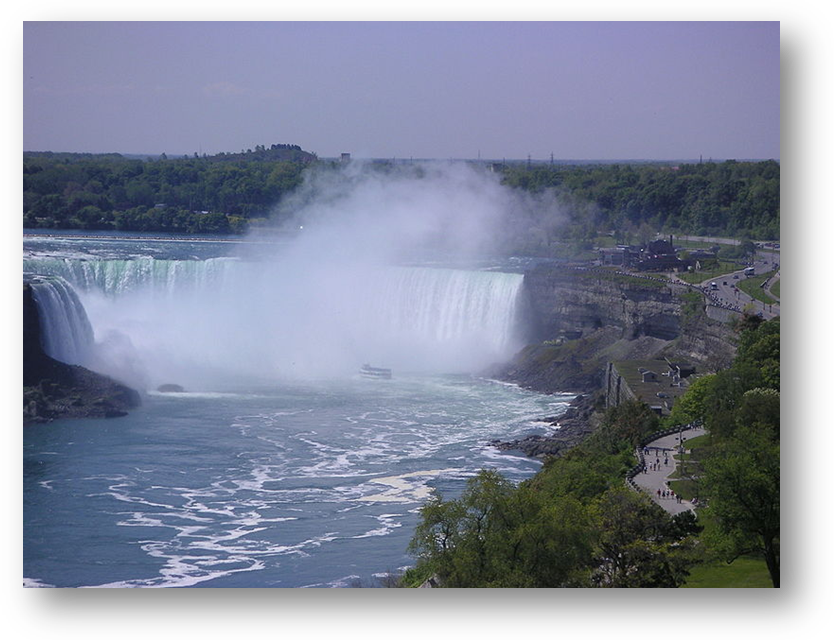
Mountain Ranges. Canada’s terrain incorporates a number of mountain ranges: the Torngats, Appalachians and Lawrentians in the east; the Rocky, Coastal and Mackenzie ranges in the west; and Mount St. Elias and the Pelly Mountains in the north.
At 5 959 metres high Mount Logan in the Yukon is Canada’s tallest peak.
Government. Canada is a constitutional monarchy and a federal state with a democratic parliament. The Parliament of Canada, in Ottawa, consists of the House of Commons, whose members are elected, and the Senate, whose members are appointed.
The head of the political party with the most elected representatives in the House of Commons becomes the prime minister, the leader of the country. From the members of parliament within the governing party, the prime minister selects a cabinet which, in effect, runs the country and initiates legislation. Unlike in the USA, leaders can run for a long as they maintain popular support within their party. Governments are elected for five years, but elections can be called earlier.
The constitution consists of both written proclamations under the Constitution Acts (1867 and 1932) and unwritten conventions.
National Emblem. The maple leap has been associated with Canada for some time: in 1868, it figured in coats of arms granted to Ontario and Quebec; and in both world wars, it appeared on regimental badges. Since the 1965 introduction of the Canadian flag, the maple leap has become the country’s most important symbol.
Flag and Anthem. Canada’s current flag was proclaimed in 1965 after 2000 public design entries were hotly debated in parliament. In the centre of the flag there is a red sugar maple leap, Canada’s best known symbol. The side bars represent the ocean boundaries and are not blue because an important reason for the entire procedure was to show independence from Britain and France.
The national anthem, “O Canada”, was composed by Calixa Javallee in 1880.
Currency. The Canadian dollar is divided into 100 cents.
Living Standard. Canada ranks sixth place in the world in standard of living, behind only the United States, Switzerland, Luxembourg, Germany and Japan.
Language. English and French are the two official languages of Canada. You will notice it both on highway signs, maps, tourist brochures and all types of packaging. In the west, the use of French is less visible. In Quebec, English can be at a premium. There, roadside signs and visitor information is often seen in French only.
Many immigrants use their mother tongues, as do some groups of Native Indians and Inuit.
C. Answer the following questions and use them to speak about Canada.
What is the name origin of the word “Canada”?
How many provinces and territories does Canada have?
What do you know about Canadian flag? Could you describe it?
What’s the largest lake in Canada?
What percentage of the Canadian population speak French as their first language?
What’s the name of Canada‘s anthem?
E. Read the text again and decide whether these statements are true or false.
The national anthem of Canada is “God save the Queen”.
The majority of French Canadians live in Quebec, where they make up about 80 per cent oа the population.
Canadian National Flag is an orange 11-pointed maple leap on a green field.
The Canadian Federal Parliament comprises the Queen, the House of Commons (elected) and the Senate (appointed).
GRAMMAR: INDIRECT SPEECH/REPORTED SPEECH
Change of tense
When we report what someone said, the verb forms often move one tense into the past.
‘I believe that what I am doing is right’, she said, ‘I will continue to fight for justice.’
She said she believed that what she was doing was right, and that she would continue to fight for justice.
Verb forms change in the following way:
|
Direct speech (the actual words) |
Reported speech (indirect speech) |
|
Present Simple (do) |
Past Simple (did) |
|
Present Continuous (is doing) |
Past Continuous (was doing) |
|
Present Perfect (has done) |
Past Perfect (had done) |
|
Past Simple (did) |
Past Perfect (had done) |
|
Past Continuous (was doing) |
Past Perfect Continuous (had been doing) |
|
Past Perfect (had done) |
no change possible |
|
Past Perfect Continuous (had been doing) |
no change possible |
Modals are used in direct speech:
use the past forms of modals: can could
will would
may might
must had to
‘I must pay my phone bill’ He said he had to pay his phone bill.
those which do not have a past form do not change: would, could, might and should
‘I might come later’ She said she might come later.
Reported questions
use ask, want to know or wonder to report questions
after wh-questions, the question word is used as a conjunction
The police asked (him) where he had been.
They wanted to know what time he arrived home.
with yes/no questions if or whether are used
Ben wondered if/whether you wanted to come round for dinner
|
I she/he ours theirs today that day tomorrow the next day yesterday the previous day |
this that these those here there now then |
A. Read the dialogue and reproduce it in Indirect Speech.
Alex: Hi Clara. I haven’t seen you for ages! Where have you been?
Clara: Hi Alex. I’ve returned from Canada.
Alex: Was it a business trip?
Clara: Exactly. I was impressed by the scenic charm of Ottawa, which is considered as one of the country’s most attractive cities. The capital is the public face of Canada for many people, so the city has been kept lovely and welcoming.
Alex: Are there many places of interest?
Clara: Yes, there are. It has many parks, museums, art galleries. But the Currency Museum impressed me most. It’s just great!
Alex: Really? What did you see there?
Clara: It contains an amazing collection of money and things used as money at different periods of time.
Alex: What things?
Clara: Well, there are shells, glass, beads, fish-hooks, teeth of animals, grain, cattle, cocoa beans, paper and metal.
Alex: How interesting!
Clara: Yes, even playing cards were used as money in New France in the 18th century.
Alex: What’s the admission fee?
Clara: The admission is free.
B. Read this extract from a short speech made at a meeting. Fill in the gaps in the sentences below using the text.
I am afraid there are a number of problems with this agreement. First of all, we feel that your company has not been reliable on several occasions in the past. We are particularly unhappy about the fact that there have been a number of late deliveries and these have caused us considerable problems.
Another problem is that on at least five occasions you have supplied faulty parts and we had to return these to you. There is also the problem of discount. Originally you promised us a 10% discount. I am not very happy about the prices you charge either.
1) He said ... a number of problems with the agreement.
2) In particular, they felt that the company... reliable on several occasions.
3) There ... a number of late deliveries and he said that the company... faulty parts on at least five occasions.
4) He also mentioned that there ... the problem of discount.
5) Originally the company... a 10 per cent discount.
6) And he concluded he ... about the prices either.
SPEAKING
A. Read the additional texts with interesting facts about Canada and discuss this information with your partner.
About 77 % of Canadians live in cities and towns. Toronto is the largest city in Canada, which is the gateway to south-western Ontario, the wealthiest and most densely populated part of Canada. Ontario is an important educational centre. There is the University of Toronto with its affiliated colleges: Victoria College, Trinity College and St Michael’s College. Toronto is the country’s business centre and home to the largest companies and banks.
Montreal is unlike any other city in Canada. The oldest part of the city, Old Montreal, dates from the 1700s. Montreal is not a multistoried city, with the exception of two or three sky- scrapers used by offices and banks, the living quarters are mostly three-four storied buildings. At night the city glitters with countless neon sings, advertisements on night clubs and cinemas. It is curious to note that such a great city actually has no permanent drama theatre of its own. One of the oldest Canadian universities- the McGill University is situated here. Montreal hosted the 1976 Summer Olympics.
Vancouver is a beautiful, rapidly growing commercial, transportation and forest-products manufacturing centre. Vancouver is Canada’s chief Pacific port. Annual International Festival of the arts is held here. Vancouver hosted the 2010 Winter Olympic Games.
Ottawa, the capital of Canada, is one of the country’s most attractive cities.
Ottawa is encircled and interlaced by three rivers and a lazy canal with the rolling Laurentian Hills as its backdrop. Yet despite its scenic charm, the architectural dignity of many of its government buildings and the many miles of scenic drive bordering its Waterways, Ottawa has about it an unfinished air which reflects the young and developing country of which it is the capital.
Canada’s Houses of Parliament stand in a setting of great natural beauty. It has many parks, museums, art galleries and universities. Some of Ottawa’s historic buildings go back to the early 1800s.
OVER TO YOU
Summarize the information about Canada. Give a two minute talk using one of the headings below.
-
Main rivers and Niagara Falls
Main Cities
Population of Canada
Canadian English
Main Holidays
READING 2: CANADA ECONOMY
A. What do you know about the economy of Canada? Complete this file, use vertical prompts if necessary.
|
Currency:
Fiscal year:
Labor force by occupation: Which takes the lead (agriculture, construction, manufacturing, services, other)? |
Main industries:
Export goods:
Main export partners:
Main import partners: |
U.S., UK, China services motor vehicles and parts, industrial machinery, aircraft, plastics, timber, telecommunications equipment, electronics, chemicals, fertilizer etc. 1 April – 31 March CAD U.S., China, Mexico |
B. Do you know what these abbreviations stand for? Search a dictionary or the Internet if necessary: The IMF, GDP, G8, the OECD, the NAFTA, USGS.
C. Match the words from the text below with the definitions, translate them.
|
retail 2 |
a period of ten years |
|
real estate 2 |
a service, such as transport or health care, that a government provides |
|
income 3 |
the sale of goods in shops to customers, for their own use and not for selling to anyone else |
|
robust (economy) 5 |
property in the form of land or houses; the business of selling houses or land |
|
decade 7 |
a system of producing wealth based on the free operation of business and trade without government controls |
|
public service 8 |
the money that you earn from your work or that you receive from investments |
|
market economy 8 |
strong and healthy |
D. Look at the box and check yourself if you have the same translation of the words given in Exercise C.
|
|
E. Look at the text below and find English equivalents for the following words and phrases:
1 высокоразвитый; воспользоваться преимуществом/извлекать пользу (выгоду); современный сектор услуг; продуманное руководство; соглашения о свободной торговле; по данным;
2 в отличие от; общий объем продукции, произведенной в стране (национальный продукт); быть занятым; развиваться быстрым темпом;
3 насчитывать/составлять; добывающая промышленность и сельское хозяйство; продукция добывающей промышленности и сельского хозяйства; молочная продукция;
4 что касается; производственный сектор;
5 подписывать;
6 лесоматериалы; древесная и бумажная масса; «мягкие товары» (относящиеся к сырью, которые не добываются, а выращиваются); второй по величине; в частности;
7 взвешенная фискальная (налогово-бюджетная) политика;
8 структура производства; высокий уровень жизни; предоставлять услуги.
F. Read and translate the text.
1 Canada's economy is both mature and diverse, benefiting from an advanced services sector, an abundance of natural resources, sound management and free trade agreements. The Canadian economy is the eighth largest in the world according to the IMF. As of 2007, its nominal GDP was $1.274 trillion, with growth of 2.7%. It is part of the G8 and other 'rich clubs' such as the OECD.
2 Unlike most developed economies, Canada has moved from agriculture straight to services. More than two-thirds of the country’s output is contributed by the services sector, which employs nearly three-quarters of the working population. This industry is very diverse and includes the retail sector, financial services, real estate, education, health, high-tech, entertainment and tourism. All these sectors are developing at a rapid rate with retail and health leading growth.
3 In contrast, primary sectors account for about 3 percent of Canada’s GDP. But the primary sector plays an important role in Canada’s economic activity, as 1/4th of Canada exports are primary articles and many areas depend on the primary sector as their source of income. The main agricultural products are wheat, barley, oilseed, tobacco, fruits, vegetables, dairy products, forest products and fish.
4 As regards the manufacturing sector, Canada enjoys a large industrial base, which produces 26% of the country’s output. Although manufacturing has never been a dominant sector of the economy, it has been an important secondary industry and does manufacture a significant number of cars and light aircraft, mainly in central Canada.

 5
Another important factor in the country's development was the free
trade agreement
with
the US that was signed in 1989, as well as the NAFTA treaty of 1994.
These agreements linked several other key countries such as Mexico,
Israel, Chile and Costa Rica to Canada and its economy. In January
2008, the country has also agreed to a Canadian-European free trade
association that has further developed its robust economy.
5
Another important factor in the country's development was the free
trade agreement
with
the US that was signed in 1989, as well as the NAFTA treaty of 1994.
These agreements linked several other key countries such as Mexico,
Israel, Chile and Costa Rica to Canada and its economy. In January
2008, the country has also agreed to a Canadian-European free trade
association that has further developed its robust economy.
6 Canada is the second-largest country in the world by land mass (after Russia), and is blessed with natural resources. Oil and lumber - and pulp & paper - are two vital industries and exports. According to the USGS, Canada has the second-largest oil reserves in the world, with its large oil and gas reserves in Alberta, British Columbia and Saskatchewan and the Athabasca Tar Sands. Canadian mines are leading producers of nickel, gold, diamonds, uranium, and lead. Canada is also one of the largest exporters of soft commodities including grains and wheat in particular.
7 Canada's sound fiscal management has been another major factor contributing to the country's economic superiority. Prudent management has given Canada a balanced budget throughout the entire last decade.
8 Canada closely resembles the US in its market-oriented economic system, pattern of production, and affluent living standards. But, despite being a market economy, Canada does have a significant room for government intervention and the government has indeed a significant impact on how public services are delivered.
Read the following numbers and say what they refer to.
2007
1989
1994
2008
the 8th
the 2nd
2
$1.274 trillion
2.7%
3 percent
26%
3/4
1/4
2/3
Read the text again and decide whether these statements are true or false. Correct the false ones.
Canada’s economy is robust due to its market-oriented economic system.
Canada is a member of some rich clubs and free trade associations.
Like most mature countries Canada progressed from farming economy direct to services.
Greater part of country’s total volume of production is contributed by services sector.
Services industry is both advanced and diverse, where retail and health take the lead.
Although primary sector accounts for only several percent of the country’s GDP, it plays an important role in the economy because of the income it brings to the Canada’s areas.
Manufacturing is a dominant sector of the economy.
Alongside with Russia Canada enjoys vast territories and scarce natural resources.
Canada has largest oil reserves and it is the largest exporter of agricultural products.
A number of factors contribute to the country's economic prosperity, good fiscal policy being one of them.
Canada is said to have a purely market economy.
I. Use words from each box to make word partnerships from the text:
A) Ved + noun; B) Ving + noun; C) noun + noun; D) noun’s + noun. Translate these word partnerships. Add examples of your own.
|
|
A) system, economies, services sector, budget B) sector, population, producers C)agreements, reserves, countries, economy, association, intervention D) output, economy, development |
J. For the direct question below, tick the correct indirect one.
What are the main factors contributing towards Canada’s economic superiority?
Could you tell me what are the main factors contributing towards Canada’s economic superiority?
Could you tell me what the contributing factors towards Canada’s economic superiority are?
K. How would find out politely the following information? Make up a dialogue based on them.
How large the Canadian economy
Canada’s membership in the international organizations
Leading sector of the economy
The reason for importance of the primary sector
The type of the economy
Your own question
OVER TO YOU
Choose any of G20 country and write a summary about its history, political system, economy, culture, its famous people etc.
WORD FILE
|
Unit 3 Module 3 | ||
|
coastline waterfall soccer lacrosse currency ancestry decade fiscal year sound management public service developed economies output working population maple leap beaver free trade agreement primary articles dairy/ agricultural products |
manufacturing land mass lumber soft commodities pulp economic superiority pattern of production affluent living standards government intervention moderate humid robust mature diverse advanced second-largest relatively
|
according to unlike as regards in particular to rip (over) to proclaim to associate (with) to benefit from to employ to develop at a rapid rate to surpass to sign to deliver services to incorporate to maintain to be appointed to initiate
|
UNIT 4
HIGHER EDUCATION
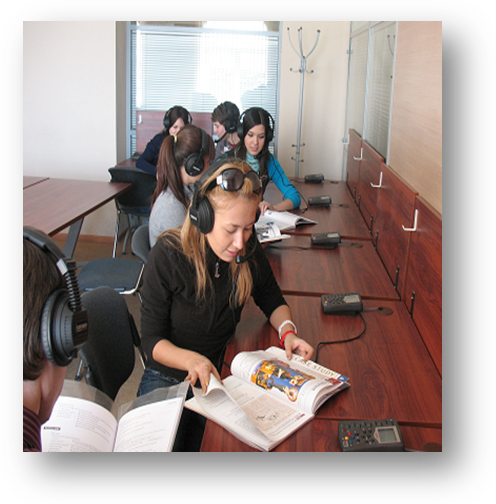 Module
1 Higher education in Russia
Module
1 Higher education in Russia
PREVIEW
Discuss the following questions in groups.
1) What is the importance of getting higher education?
2) Do all countries have the same higher educational system?
3) What are some of your best (worst) memories of elementary and high school?
B. Make up groups of four. Study the following reasons of getting higher education. Present your point of view to the class.
The primary purpose of higher education is to ….
The primary purpose of higher education should be to ….
~ to have fun ~ to learn how to learn
~ to learn job skills ~ to develop artistic skills
~ to prepare for tests ~ to make friends
~ to make connections ~ to become open-minded
~ to develop your body ~ to learn how to research
~ to increase IQ ~ to become cultured
~ to prepare for living in society
C. Read and answer the questions about the following people who proved their teachers wrong and express your own opinion on each story.
Who did more than get married and raise a family?
Who followed the teacher’s advice and didn’t go on to university?
Who failed an exam in a subject which she later proved to be very good at?
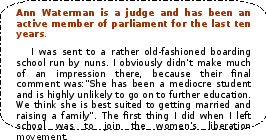
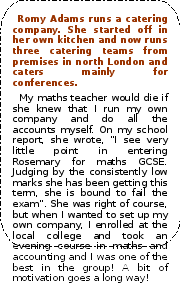

LISTENING
(First Certificate Expert, New Edition, Coursebook, CD 1, track 7)
You will hear a radio discussion in which two students are talking about their first few weeks in higher education. First discuss these questions.
How does being at college/university differ from being at school?
What are the advantages and disadvantages of continuing your education rather than getting a job?
Listen again. For questions 1-5, choose the best answer a, b or c.
1) What advice does Leanne give about getting to know people in the first weeks at university?
a Join lots of sports clubs.
b Try not to judge people on first impressions.
c Make friends with people studying the same subject as you.
2) What does Harry regret about his first two weeks at college?
a not going out enough
b not doing more work
c not saving his money
3) Leanne was able to manage financially at university by
a living at home
b getting a part time job
c Finding ways of economizing
4) What is Harry’s view on attending lectures?
a Don’t bother going
b You should make detailed notes/
c They are useful as an introduction to the subject.
5) What do they both find difficult about working without supervision?
a motivating yourself
b not getting distracted
c understanding the task
C. Discuss the questions below.
1) What advice would you give to school-leavers starting higher education?
2) What do you think is the best way to get to know new people?
VOCABULARY
Complete the sentences with the correct word. Use each word once only.
1) professor/teacher
When I was 12, my English … encouraged me to write stories.
Our … at university was more interested in his research than in teaching.
2) check/control
Before you hand in written work, you should … it carefully for mistakes.
The children in Mr. Adam's class are so naughty that he cannot … them.
3) career/course
Dr Jenkins ruined his … when he gave several patients the wrong drug. They sent him on a two-week … to learn how to use the new computer.
4) subject/lesson
Monday's French … was so boring I thought it would never end. I think physics is a difficult … to study at university level.
5) educate/train
I'm sure your company will … you to use the new equipment. Many people feel that schools do not … children very well these days.
6) degree/grade
I think this composition deserves a better …than C, don't you?
Although my … was in chemistry, the headmaster still let me teach biology.
Study the following phrasal verbs and find their definitions in the dictionary: to carry out, to get across, to get down, to go over, to hand in, to keep up, to pick up, to stay on, to turn up, to work out.
Match the phrasal verbs in italics in the sentences to the definitions a) – j) below.
The Principal handed in his resignation.
The students turned up late for class.
The teacher got her ideas across very well.
We worked out the answers very easily.
He stayed on at university another year.
I got down to work as soon as I arrived.
A taxi picked them up and took them to college.
She kept up with the other students.
We carried out a survey on staff attitudes.
He went over the exercise with his students.
|
e) performed f) examined g) gave to a person in charge |
h) communicated i) started j) remained |
D. Complete these sentences with the phrasal verbs from Exercise C in the correct form.
1) Haven't your notes … yet? Perhaps they are in your coat.
2) Are you … after class tonight or going home?
3) Who's going to … that experiment?
4) It is time I … marking the papers.
5) … your answers carefully.
6) I haven't … my homework yet. It is still in my bag.
7) I can't … all the latest technology.
8) Come and … your old coursework from my office.
9) He didn't really … his meaning … to the students.
10) We are trying to … the best way to meet students' needs.
E. Read these tips for exam success and match phrasal verbs from a) – h) with their definitions from 1) – 8).
Six tips for exam success
Keep your reading up (a) during the term so that you have less to read just before the exam.
Brush up on (b) some of the things you learnt a long time ago; they may possibly come up (c) in the exam.
Don't just mug up (d) on the key points you need for the exam and hope that you'll scrape through (e) with little effort.
On the other hand, don't try to do everything. Swatting up (f) on everything you have done all term means you will have to revise a lot of useless things too.
Concentrate on polishing up (g) the most important areas and your best skills.
Don't fool yourself that you'll pass the exam on the basis of what you've picked up (h) during the lectures and classes. You will need to revise!
continue to do something
practice and improve your skills or your knowledge of something, usually something you learned in the past but have partly forgotten
if a question or a subject comes up in an exam, that question is asked or questions about that subject are asked in the exam
quickly try to learn the main facts about a subject, especially before an exam
manage with a lot of difficulty to succeed in something
learning as much as you can about something, especially before exam
practicing and improving your skills or your knowledge of something
learnt by absorbing it rather than studying it
F. Choose phrasal verbs you have known to complete this letter.
|
Cambridge, 20 June Dear Auntie Meg, At last my first year exams are over. It's such a relief. I feel as if I've done nothing but (1) for them for ages. Although, I'd (2) with work quite well during the year, I still needed to (3) everything that we had covered, of course. Fortunately, everything that I hoped would (4) in the exam paper did. So I hope I've, done OK and haven't just (5). Now all I have to do is (6) one course assignment, which I need to hand in by the end of term. We don't (7) till the end of the month and so I won't be home till then. We don’t (8) until the end of September, so it’ll be a lovely long break. I look forward to seeing you soon. Love, Suzanna. |
Which of these would make most students happy and why?






READING 1: HIGHER EDUCATION IN RUSSIA
Study the vocabulary.
arrears
задолженность
on a competitive basis
на конкурсной основе
Certificate of Secondary
Complete General Education
аттестат о среднем образовании
comprehensive knowledge
всесторонние познания
curriculum
курс обучения, учебный план
to be dismissed
быть отчисленным
educational establishment
образовательное учреждение
expenses/expenditures
расходы
precious
совершенный
to raise funds
привлекать капитал, средства
to sign a decree
подписывать указ, приказ
Before you read, answer these questions.
What do you know about higher education system in Russia?
Is it different from other systems of higher education?
Read and translate the text.
The system of higher education in Russia started with the foundation of the universities in Moscow and St Petersburg in the middle of the 18th century. In 1724 the St. Petersburg Academy of Sciences, founded by Peter I, established the university and a grammar school. However, these educational establishments didn’t fulfill the task they took on. It was Michail Lomonosov who suggested the idea of establishing university in Moscow. In 1755, on 25 January, Empress Elizaveta Petrovna signed a decree of university foundation. According to Lomonosov’s plan, there were originally three faculties. First, all the students acquired a comprehensive knowledge in the field of science and humanities at the faculty of Philosophy. Then they could specialize and continue at the faculty of Philosophy or join either the Law faculty or the faculty of Medicine. Lectures were held either in Latin, the language of educated people at that time, or in Russian. Originally, tuition at Moscow University was free for all students; later only poor students were exempt from tuition fees. The state funding didn’t cover all the University expenses; thus the administration had to find ways to raise additional funds.
In general, the system of higher education in Russia was constructed similar to that of Germany. Due to demands of the international educational organizations, the higher education system began to change over the past ten years. Universities began transitioning to a system similar to that of Britain and the USA.
There are presently four basic types of higher education institutions (HEIs):
Universities (responsible for education and research in a variety of disciplines);
Academies (responsible for education and research. They differ from universities only in that they restrict themselves to a single discipline (Academy of Arts, Academy of Architecture);
Institutes (multi-discipline oriented);
Private Institutions (offer degrees in non-engineering fields such as business, culture, sociology, and religion).
Entry requirements. The Constitution and the Russian Federation Law on Education guarantee open and free access to higher education on a competitive basis. Currently the Certificate of Secondary Complete General Education is required for admission to all kinds of HEIs. Applications are accepted from citizens of both sexes who have completed secondary education and passed a competitive entrance examination. The academic year lasts from September 1 to June everywhere, with long summer vacations from July to August 31. It is divided into two terms. The evaluation of student’s performance is designed in such a way that the progresses of the latter in mastering subjects included in the curriculum are monitored closely and objectively. The number of tests and examinations to be taken during every academic year is strictly formulated by the head of the institutions. Student performance on test is evaluated as “passed” or “failed” and on examinations as “excellent”, “good”, “satisfactory” and “unsatisfactory”. Some HEI have already introduced a system of continuous assessment which helps to evaluate student’s progress during the whole academic year. Students who accumulate a number of arrears in their new academic year would be dismissed from their educational institutions. The final state examinations are also very important part of the higher educational assessment process in Russia. These methodologies constitute a comprehensive evaluation system by which the knowledge and the skills of specialists are brightened and the qualification obtained becomes invaluable and precious.
Answer the questions.
When did the system of higher education start in Russia?
Who suggested the idea of establishing university in Moscow?
What are the basic types of higher education institutions in Russia? And what are they responsible for?
What are the entry requirements to the HEI?
What evaluation system do HEIs have?
When does the academic year begin in Russia?
What is higher education for you?
Are the following statements true or false? Correct the false ones.
The first University and grammar school were established in 1724 by the St. Petersburg Academy of science.
Peter I suggested the idea of establishing the university in Moscow.
Moscow University had originally four faculties: Philosophy, Theology, Law, and Medicine.
Administration had not to raise additional funds to cover all the university expenses.
The system of higher education has not change over the last century.
The Russian Federation Law on Education guarantees open and free access to higher education.
All HEIs have already introduced a system of continuous assessment.
Find words in the text that mean:
money that you must pay a university for teaching you
a department within a university or institute
to gradually get more and more over a period of time
the subjects of study concerned with human culture, esp. language, history or philosophy
the action or process of making a formal request
talks given by a university tutor to a large number of students
short examination of knowledge or ability, consisting of questions that must be answered or activities that must be carried out
subjects included in a course of study or taught at a particular HEI
Choose the correct answer to the following.
1) A decree of university foundation was signed by …
a) Michail Lomonosov
b) Peter I
c) Empress Elizaveta
2) The system of higher education in Russia was initially constructed similar to that of …
France
Germany
Britain
3) Academy is responsible for education and research …
a) in a single discipline
b) in a variety of disciplines
c) in three disciplines
4) The academic year is divided into …
three terms
two terms
four terms
5) The number of tests and examinations to be taken every year is strictly formulated by …
lecturers
the head of institution
the examiner
Define the paragraph that contains the following information.
application procedure
evaluation of students’ performance
foundation of the first universities in Russia
types of HEI
SPEAKING
Two students are discussing this question: 'Do universities prepare students for the "real world"?' Complete their discussion with phrases from the box.
|
up to a point you're right |
you think so couldn't agree |
don't you think quite true |
what about suppose so |
Alan: I am sure that what you study at the university is very useful when you start work.
Jane: Do (1)? Some subjects you study don't prepare you for work at all, I'd say. (2) philosophy?
Alan: Well, perhaps (3) about philosophy. But other subjects help you when you graduate from the university. (4) that mathematics is useful?
Jane: I (5). But they could have made it more relevant to everyday life. Alan: I (6) more. Perhaps the problem is not the subjects we learn, but the way they are taught. Take history – they could make it really interesting. Jane: I agree (7). But not entirely. You probably learn more about history when you start to travel. I don't see why it's useful to study it at college. Alan: That's (8). But some people may not have the opportunity to travel when they leave college.
WRITING
An application form
International College have replied to Maria Petrova's letter of enquiry and enclosed an application form. Imagine that you are Maria. You have decided to take the First Certificate course starting on 3 January and finishing on 26 June 20__. You are paying the fees yourself, and today's date is 10 November 20__. Complete the form using the information here.
Student Application Form
|
International College • 145- 8 Regents Road • Palmer • Brighton • bn 1 9QN | ||
|
Applicant | ||
|
Family Name: | ||
|
Other Names: | ||
|
Title Mr/Mrs/Miss/Ms: |
Age: | |
|
Address: | ||
|
Town/City: |
Country: | |
|
Do you have a job or are you a student? | ||
|
Job title /Subject of study: | ||
|
Name of business /University/College: | ||
|
Course applied for: | ||
|
Course dates: | ||
|
Are you paying your own fees, or is your company paying for you? | ||
|
Will you find your own accommodation or do you want this to be arranged by the College? | ||
|
Please tick how you found out about International College. a) Newspaper c) Friend's recommendation b) Through your university/college d) Other source: | ||
|
Signature: |
Date: | |
WORD FILE
|
Unit 4 Module 1 | ||
|
admission to apply for applicant/application on a competitive basis continuous assessment curriculum
|
to be dismissed entry requirements to enroll to be exempt from evaluation to fail an exam
|
to hold (held, held) a lecture to pass an exam to take an exam (in) term tuition fee vacations (AmE) |
Module 2 Higher education in Britain
PREVIEW
Discuss the following questions in groups.
1) What do you know about the system of higher education in Britain?
2) What Universities in Great Britain can you name?
READING 1: THE SYSTEM OF HIGHER EDUCATION IN BRITAIN
Study the vocabulary
A-level exams (advanced level)
breadth of academic knowledge
Bachelor of Arts (BA)
Bachelor of Science (BSc)
Master of Arts (MA)
Master of science (MSc)
Doctor of Philosophy (PhD)
college preparatory courses
to encourage
end-of-high-school examinations
to go on to college
local education authority (LEA)
parental income
to qualify
to run from…to
экзамен по программе средней школы повышенного уровня
объём академических знаний
бакалавр искусств
бакалавр наук
магистр искусств
магистр наук
доктор философии
подготовительные курсы для поступления в колледж
поощрять, способствовать, стимулировать
выпускные экзамены
продолжить обучение в колледже
местные органы народного образования
доход родителей
отвечать требованиям; обучать, готовить
длиться
Read and translate the text.
65% of British secondary school graduates finish their formal education at the age of 17 or 18. The students who go on to college are very well prepared to do so. During the last two years of high school they specialize in college preparatory courses and then they take special national examinations (“A-level” exams or “Scottish leaving examinations”) in order to qualify to compete for admission to a university program. It is during this process of studying for their end-of-high-school examinations that most British students acquire the breadth of academic knowledge. By the time they get to university level, most British students are prepared to concentrate on a particular subject, and they are expected to do so. In the UK, students are admitted not to a university as a whole but to a specific course of study within it.
Admittance to universities. Good А-level results in at least two subjects are necessary to get а place at a University. However, good exam passes alone are not enough. Universities choose their students after interviews. For all British citizens а place at а university brings with it а grant from their local education authority. Grants and loans are intended to create opportunities for equality in education. Grants are paid by the LEA on the basis of parental income.
Students are not supposed to take a job during the term. However, nowadays the government encourages the system of loans. That’s why quite a lot of students can’t afford to live in college and many of them are forced to do a part-time job, but this reduces the traditionally high quality of British university education.
The academic year in Britain’s universities, Polytechnics, Colleges of Education is divided into three terms, which usually run from the beginning of October to the middle of December, from the middle of January to the end of March, and from the middle of April to the end of June or the beginning of July. The British University year is divided into three terms, roughly eight to ten weeks each. The terms are crowded with activity and the vacations between the terms.
Degrees. After three years of study а university graduate will leave with the Degree of Bachelor of Arts, Science, Engineering, Medicine, etc. Later he may continue to take а Master’s Degree and then а Doctor’s Degree. Research is an important feature of university work.
Continue the following sentences using the information from the text.
Special national examinations are called ….
Universities choose their students after….
Grants and loans are intended to ….
Grants are paid by the LEA on the basis of ….
The academic year in Britain’s universities, Polytechnics, Colleges of Education is divided into ….
After three years of study а university graduate will leave with….
А-level results in at least two subjects are necessary to get а place at a ….
In the UK, students are admitted not to a university as a whole but to ….
For all British citizens а place at а university brings with it а grant from their….
Students are not supposed to take a job during the ….
Give definitions to the following words and expressions. Use them in the sentences of your own.
|
|
E. Match the words from two columns to get expressions from the text.
|
secondary preparatory A-level parental part-time academic university Master’s |
Degree year school job graduate course exam income |
READING 2: CAMBRIDGE UNIVERSITY
A. Study the vocabulary.
|
according to counts relevant to supervision undergraduate course |
согласно подсчётам относящийся к… контроль, наблюдение, надзор курс, ведущий к получению степени бакалавра |
Read and translate the text.
The University of Cambridge (often Cambridge University) is the second – oldest university in the English-speaking world. Academically, Cambridge is consistently ranked in the world's top five universities. It has traditionally been an academic institution of choice of the Royal Family and has produced 83 Nobel Laureates, more than any other university in the world according tosome countsThe application system to Cambridge and Oxford often involves additional requirements, with candidates typically called to face-to-face interviews. How applicants perform in the interview process is an important factor in determining which students are accepted. Most applicants are expected to be predicted at least three A-gradeA-levelqualifications relevant to their chosen undergraduate course, or equivalent overseas qualifications.
The principal method of teaching at Cambridge colleges is the supervision. These are typically weekly hour-long sessions in which small groups of students - usually between one and three - meet with a member of the university's teaching staff or a doctoral student. Students are normally required to complete an essay or assignment in advance of the supervision, which they will discuss with the supervisor during the session, along with any concerns or difficulties they have had with the material presented in that week's lectures.
In addition to a long and distinguished tradition in mathematics and the sciences, Cambridge University has educated 15 British Prime Ministers, including Robert Walpole (First Prime Minister of Great Britain). At least twenty-three Heads of State or Heads of Government have attended Cambridge University, including three Prime Ministers of India, two Prime ministers of Singapore, Stanley Bruce (Prime Minister of Australia) and Margrethe IIof Denmark.
Fill in the gaps with the necessary prepositions.
ranked… the world's top 5 universities
an institution … choice
according …some counts
relevant …undergraduate course
discuss … the supervisor
…advance …the supervision
located … Cambridge
method … teaching … Cambridge colleges
…addition …a long tradition
… least
Find the words in the text which mean:
A short piece of writing by a student as a part of a course of study.
connected with education, especially at college or university level
A formal meeting at which someone is asked questions in order to find out whether they are suitable for a job, course of study, etc.
An examination in a particular subject taken in schools in England and Wales, usually at the age of 18.
Coming from or happening abroad.
The process of being in charge of a group of workers or students and be responsible for making sure that they do their work properly.
Someone who has formally asked, usually in writing, for a university place
Very successful and therefore respected and admired.
A student who is doing a university course for the first degree.
A meeting or a period of time use for a particular purpose, especially by a group of people.
Make your sentences with the words.
READING 3: OXFORD UNIVERSITY
A. Study the vocabulary.
|
to affiliate with Chancellor (warden, provost, principal, president, rector) Vice-Chancellor Congregation
Convocation de facto fellow (tutor, don) |
присоединяться, входить в состав ректор
проректор конгрегация, сенат (совещательный орган в английских университетах) конвокация (совет Оксфордского университета) на деле, фактически, в действительности младший научный сотрудник колледжа или университета; наставник; член совета колледжа; преподаватель |
B. Read and translate the text.
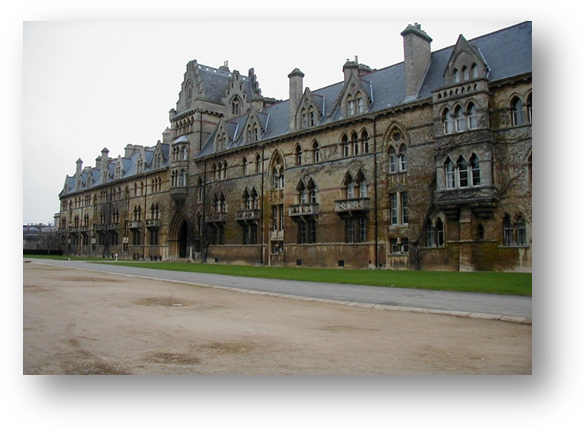 The
University
of Oxford
(informally Oxford
University
or simply Oxford)
is the oldest university in the English-speaking world. It is also
regarded as one of the world's leading academic institutions. The
university traces its roots back to at least the end of the 12th
century, although the exact date of foundation remains unclear.
The
University
of Oxford
(informally Oxford
University
or simply Oxford)
is the oldest university in the English-speaking world. It is also
regarded as one of the world's leading academic institutions. The
university traces its roots back to at least the end of the 12th
century, although the exact date of foundation remains unclear.
The university's formal head is the Chancellor, though as with most British universities, the Chancellor is a titular figure, rather than someone involved with the day-to-day running of the university. Elected by the members of Convocation, a body comprising all graduates of the university, the Chancellor holds office until death. The Vice-Chancellor is the de facto head of the University. Five Pro-Vice-Chancellors have specific responsibilities for Education; Research; Planning and Resources; Development and External Affairs; and Personnel and Equal Opportunities. The University Council is the executive policy-forming body, which consists of the Vice-Chancellor as well as heads of departments and other members elected by Congregation, in addition to observers from the Union. There are 38 colleges of the University of Oxford and six Permanent Private Halls, each with its own internal structure and activities. All students, and most academic staff, are affiliated with a college. The heads of Oxford colleges are known by various titles, according to the college, including warden, provost, principal, president, rector, master, or dean. The colleges join as the Conference of Colleges to discuss policy and to deal with the central University administration. Teaching members of the colleges (fellows and tutors) are collectively and familiarly known as dons (though the term is rarely used by members of the university itself). In addition to residential and dining facilities, the colleges provide social, cultural, and recreational activities for their members.
The admission process for undergraduates is undertaken by the individual colleges, working with each other to ensure that the best students gain a place at the University regardless of whether they are accepted by their preferred college. Selection is based on achieved and predicted exam results; candidate-submitted written work; interviews, which are held between applicants and college tutors; and, in some subjects, written admission tests prior to interview. Personal statements and school references are also considered.
There are many famous Oxonians, as alumni of the University are known.
C. Choose the right answer to the following questions.
Which century does the University of Oxford date back to?
a) the 12th
b) the 13th
c) the 14th century
What kind of figure is the Chancellor?
a) involved with the day-to-day running
b) university’s formal head
c) a department’s head
Who is the University’s de facto head?
Chancellor
Pro-Vice-Chancellor
Vice-Chancellor
What kind of facilities do the colleges provide?
residential and dining ones
b) social, cultural and recreational activities
c) all of them
Are there many famous graduates of the University?
a) Yes.
b) No.
c) Doesn’t say.
D. Match the words to synonyms.
|
gain |
name |
|
university |
President |
|
Chancellor |
real |
|
de facto |
fellow |
|
titular |
academic institution |
|
tutor |
to be situated |
|
candidate |
to get |
|
to graduate |
acceptance |
|
to be located |
applicant |
|
title |
formal |
|
admission |
alumni |
E. Answer the following questions and use them to speak about the system of higher education in the UK.
When do pupils take their A-level exams?
How do universities select students?
Why do all students usually complete their studies?
What are grants and loans aimed at?
How many terms is the academic year divided into?
What kinds of degrees can the students get? Speak about each type in detail.
Do universities represent the only type of higher educational establishments in the UK?
What facilities are offered to students in the UK?
What is the oldest University in the UK? How can students be admitted there?
Who is the real head of the university? Who is its formal head?
Which university has traditionally been the choice of the Royal family?
Were any famous people graduates of Oxford and Cambridge universities?
F. Look at the following chart and characterize the system of higher education in the UK.
|
The campus | |
|
Library |
Books ordered, recalled |
|
Dormitories (Halls of residence) |
Single rooms |
|
Buildings |
Decentralized campus |
|
The classroom | |
|
Admissions |
A- level exams |
|
Coursework organization |
Lectures, reading lists, seminars |
|
Lectures |
Narrow, specialized topic |
|
Seminars |
Open-ended, questions raised |
|
Grading and assessment | |
|
Feedback |
Written work: one or two essays |
|
Exams |
Essays, 3 hours, wide choice of topics |
|
Essays |
Discursive, speculative, structured |
|
Grades |
Passing, 35-70% |
GRAMMAR 1: COMPARISON
|
Adjectives and adverbs |
Comparative degree |
Superlative degree |
|
monosyllabic | ||
|
big new |
bigger newer |
(the) biggest (the) newest |
|
disyllabic ending in -er, -ow, -y, or -le | ||
|
clever simple |
cleverer simpler |
(the) cleverest (the) simplest |
|
polysyllabic | ||
|
beautiful easily |
more beautiful more easily/easier |
(the) most beautiful (the)easiest/most easily |
|
Exceptions | ||
|
good bad far (for distance) far (for time and distance) little old (for age) old (for seniority) well much/many |
better worse farther further less older elder better more |
(the) best (the) worst (the) farthest (the) furthest (the) least (the) oldest (the) eldest (the) best (the) most |
Complete the sentences with the comparative forms of the adverbs in the box.
|
early fast late well badly carefully frequently quietly slowly efficiently |
I arrived in New York a little later than I had planned because the plane was delayed by bad weather.
PCs with clock speeds of 66 mhz process information much … than PCs that run at only 33 mhz.
I got to the meeting a few minutes … than the others, so I had time to look through my papers before we started.
The company did … than analysts had been expecting, so their shares fell when they announced their losses for the year.
I speak Spanish well, but my assistant speaks it even … than I do.
I don’t think Quantas flies to Paris very often. Air France flies there much …
There were a lot of mistakes in that report you gave me last week. I think you need to check your figures a bit …
Could you speak a little …, please? I don’t understand English very well.
The new engine uses fuel … than previous models, so it is cheaper to run.
We used to have a very noisy dot matrix printer, but the new ink jet prints much …
B. Open the brackets using the comparative or superlative degree.
The Royal Dutch Shell Group is (profitable) company in the world.
She has been working as an accountant for 3 years, so now she’s (experienced) than before.
The town is small, we have (little) branches here.
He is one of (clever) candidates I have ever met.
Philips is the second (large) electronics company in Europe.
There are too many sections in the catalogue. It needs to be (short).
We decided to interview him, because his CV was (good) one.
I spent (much) time on the project than I had expected.
C. Complete the sentences using a superlative adjective and the present perfect.
good meal/have The best meal I have ever had was in France.
interesting course/go on
good computer/use
nice country/visit
expensive hotel/stay in
fast car/drive
reasonable boss/work for
bad job/have
GRAMMAR 2: COMPARATIVE CONSTRUCTIONS
|
as … as |
такой же …, как |
He is as experienced as people think. |
|
not so … as |
не такой…, как |
This product is not as expensive as that one. |
|
as much/many … as |
столько же…, сколько |
Just do as much as you can. |
|
the (bigger) … the (bigger) |
чем…, тем |
The more you earn, the more you spend. |
|
twice as much/many…as |
вдвое больше, чем |
They employ 90 people, twice as many as last year. |
|
more than/less than |
более, чем/менее, чем |
Our company is more interested in development projects than others are. |
|
as (soon) as possible |
как можно быстрее |
Try to make a decision as soon as possible. |
|
the (highest) possible |
наивысший |
The competitor’s goods are of the highest possible demand on the market. |
|
as well as |
так же как |
We usually have lectures as well as seminars. |
Open the brackets by putting the adjectives and adverbs into the correct form.
Oxbridge
Oxford and Cambridge are the two (old) and (prestigious) universities in Great Britain. Both were founded (many) than 800 years ago. They are often called collectively Oxbridge to denote an elite education. Many Oxbridge graduates often go on to become the (powerful) in British society. The universities have produced a large number of Britain’s (prominent) scientists, writers, politicians, as (well) as noted figures in many other fields.
Today Oxford and Cambridge continue to attract many of the (good) brains and to mesmerize a (great) number of students. The normal length of the degree course is 3 years but some courses in languages or medicine may be 1 or 2 years (long).
Oxford and Cambridge Universities consist of many colleges. Each college is different, but in many ways they are alike. The (large) ones have (many) than 400 members, the (small) colleges have (little) than 30.
Complete the sentences using soon, well, much, many and translate them into Russian.
This year universities have been given great funding, twice as… as last year.
You should get down to work as… as possible.
All universities pay as … attention to the entry requirements as to the curriculum.
Universities’ advisers will give you advice on your studies as… as on applying to the college of your choice.
There are as … British students as foreign ones.
Put the words in the right order to form a statement.
as / as / groupmates / languages / good / at / he / is / his
500 / were / as / a / basis / competitive / as / applicants / admitted / on / many
the / than / ten / grant / possible / our / group / of / more / students / highest / get
full-time / work / as / ones / nowadays / well / some / part-time / students / as
Andrew / friends / studies / than / my / harder / other
Complete each sentence using the information in brackets.
1) (You can speak English fluently.) The more you practise, the more fluently you can speak English.
2) (You learn quickly.) The younger you are …
3) (You have good exam results.) The harder you study…
4) (You can easily find a job.) The more experienced you are …
5) (You pass exams well.) The more prepared you are …
6) (The grant is high.) The better you study throughout the course …
L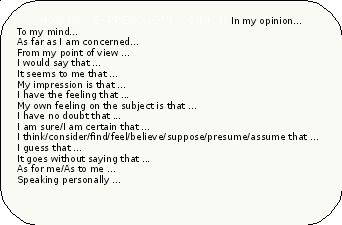 ANGUAGE
SKILLS 1: EXPRESSING YOUR OPINION
ANGUAGE
SKILLS 1: EXPRESSING YOUR OPINION
e.g. From my point of view it is very important to have a gap year before going to college.
My impression is that high education helps to achieve childhood ambitions.
SPEAKING: EDUCATIONAL SYSTEMS IN COMPARISON
Look at the statements about the educational system in the UK. Choose the statements which are also true for your country. Using expressions from Language Skills 1 discuss the statements in pairs.
Education is compulsory until the age of 16.
Education in state schools is free until the age of 18.
Children start primary school at the age of four or five.
A small percentage of children (about seven per cent) go to private, fee-paying schools.
Most secondary schools are ‘comprehensive’ schools, that means that they take students of all abilities.
Children in primary and secondary schools take national tests to monitor their progress.
At the age of 16, students take important exams and then they can leave school.
Students who want to continue their studies can take advanced level exams two years later.
30-40 per cent of young people go to college or university after school.
An undergraduate university course normally lasts three or four years, although for some subjects (e.g. medicine) it is much longer.
WRITING
You want to attend a course of English in an English-speaking country and you see this section in a college prospectus.
SCHOLARSHIPS
Every year, two scholarships are offered to candidates from overseas who can show how our one-year course would help their career. Scholarships cover fees, accommodation and food, but not transport or personal spending money. Apply in writing, explaining why you think you deserve a scholarship.
Write your answer in 120-180 words in an appropriate style.
Model answer
|
Say why you are writing and what you are responding to (e.g. an advert, a prospectus).
Use a formal, neutral style. (Remember: no contractions, no colloquial language, no direct questions, no informal punctuation such as exclamation marks.)
Be polite and positive, but not too much!
Use a formal ending.
Sign your name and then print your name dearly underneath.
|
Dear Sir/Madam, I would like to apply for one of the scholarships I saw advertised in your prospectus. At present I am training to be a secondary school teacher of English and I finish my course at the end of June. However, I feel I still have a lot to learn about the language and culture of the English-speaking world and would benefit considerably from a course in an English-speaking country. The reason I am applying for a scholarship is that I cannot' afford the cost of studying abroad. I have no income except for my student grant, so if I am fortunate enough to be given a scholarship, I would have to work part-time to save some personal spending money. My parents will borrow some money for my airfare if I am successful. I would appreciate being given the opportunity to study at your college and would be very grateful if you would consider my application.
Yours sincerely, Marco Prodi MARCO PRODI
|
If
you know the name of
the person, begin Dear
Mr Smith/Dear Ms
Jones, etc. In
one paragraph, briefly
describe you/your
situation,
| |||||
WORD FILE
|
Unit 4 Module 2 | ||
|
assignment accommodation degree dean college preparatory courses compulsory education comprehensive school course of study
|
department to encourage end-of-high-school examinations essay grades graduate (n, v) to go on to college
|
grant parental income part-time job primary school secondary school to run from … to scholarship supervision |
Module 3 Higher education in the USA
PREVIEW
What are the ways to encourage young people to get higher education? Discuss the following:
|
|
| |
READING 1: HIGHER EDUCATION IN THE USA
A. Study the vocabulary.
|
to lure (away, into, to) |
завлекать, соблазнять |
|
aspiring |
стремящийся к чему-л., пылко желающий чего-л., честолюбивый |
|
sophomore |
студент-второкурсник |
|
freshman |
студент-первокурсник |
|
junior |
в американских колледжах и школах: третий, предпоследний (класс, курс - при 4-х годичном курсе), первый, второй (при 3-х годичном курсе), первый (при 2-х годичных курсах) |
|
senior |
ученик выпускного класса; студент последнего курса; старшеклассник; старшекурсник |
|
minor |
неосновной, второй (об академической дисциплине) |
|
Orthoptics |
ортоптика (методика упражнений для глаз для восстановления бинокулярного зрения при косоглазии) |
|
tuition fee |
плата за обучение |
|
community |
сообщество, содружество, группа людей, объединенных общностью места жительства, интересов, происхождением, общими взглядами или принадлежностью к одной и той же организации |
|
county |
oкруг, графство (административно-территориальная единица штата) |
|
assigned |
заданный; назначенный |
|
to convey |
выражать, передавать (идею, смысл и т.п.) |
|
to inspire ( in, with ) |
внушать, вселять (чувство и т.п.) |
|
scholastic |
учебный, академический |
|
multiple choice test |
критерий множественного выбора |
B. Match the words with their definitions.
|
academic advisor |
a secondary area of academic specialization |
|
accreditation |
a student's average for the semester or quarter |
|
alumnus, alumni, alumna, alumnae |
a teacher at a university or college |
|
associate degree |
a unit of study at a college or university, usually represented by one hour of class per week per term, most classes are worth three credit hours and meet for three hours per week |
|
bachelor's degree |
an advanced degree awarded by a university following completion of studies beyond a bachelor's degree |
|
college/university/school |
awarded after completing a program of study at a two-year college |
|
credit hour |
awarded after four years of study at a college or university, also referred to as an undergraduate degree |
|
doctoral degree |
chosen area of academic specialization |
|
faculty |
most colleges and universities divide the school year into these parts |
|
final exam |
most colleges assign students an advisor to help them with problems relating to specific classes, changing majors, or curriculum requirements |
|
major |
these educational institutions receive public funding and are generally less expensive than private; state schools |
|
tuition |
schools for in-state students, which do not receive public funding |
|
master's degree |
the cost of attending classes at a college or university. |
|
minor |
the most advanced degree, awarded after three to five years of additional study following completion of a master's degree |
|
professor |
the process by which colleges and universities are granted approval by an official review board, indicating that the institution has met certain requirements |
|
public school |
the teaching staff of a college or university, the term does not refer to a department within the university, as it does in some countries |
|
semester/quarter/term |
the test at the end of the term |
|
private school |
these Latin words refer to graduates of a college or university |
|
grade point average (gpa) |
these terms are often used interchangeably, differences among the terms do exist, however. One primarily awards bachelor's degrees and concentrates on providing a general, or liberal arts, education. Other tends to be larger and awards advanced degrees (master's and doctoral degrees) along with bachelor's degrees. |
C. Read and translate the text.
Higher education in the USA lures students from all parts of the world. It takes a lot of preparation to get into any one of the American universities. Most of these schools or colleges have their own standards for testing the student's skills and knowledge.
A student aspiring to study in the USA can gain admission as an undergraduate, graduate or a post graduate student.
Undergraduate/
Bachelor’s program. Generally, it takes four years of undergraduate study to earn a Bachelors degree. The first year is called freshman year; second – sophomore; third – junior; and the fourth – senior. Students in senior year are also called as "Upperclassmen".
There are various subjects you can choose to study in an undergraduate college. The first two years mostly cover general subjects. A junior year student must choose a "major" field of study. They must take a certain number of courses in their field. In some schools, students also choose a "minor" field. There is usually time for students to choose several other "elective" (extra) courses in other subjects. Each student is assigned a "faculty advisor", who teaches their major subjects, and assists them to select a particular program of study.
Graduate Study. It is what is sometimes called postgraduate education. All master degrees are graduate degrees. Masters Degree is usually required in fields such as Engineering, Library science, Business Administration or Social work. Mostly master’s degree is a 2-year program, but some subjects like journalism, may need just one year.
A Doctorate degree (Ph.D) usually takes five to seven years to complete. Unlike undergraduates, graduate students begin specialized study from the first day.
Professional/
Vocational Training Programs. These are many specific courses/ training programs for professional subjects. Some of them include Printing technology, Orthoptics, fashion and textile technology. If you want to go for graduate studies in the USA, you must know that there are different types of education centers in the USA.
State College or University. These schools are supported and run by the State Government. Each U.S. state operates at least one state university, and several state colleges.
Private College or Universities. These schools are privately owned/operated institutes. Tuition fee is usually higher than the state government schools. Normally these colleges and universities are smaller in size.
Community Colleges. Community colleges are local i.e. a city or county colleges. They also conduct evening classes for students who work during the day. Normally, community colleges welcome international students. But few countries do not recognize degrees from such community colleges.
Professional Schools. These are professional schools to train students in professional fields such as Art, Music, Engineering, Business, etc. They can be a part of a university or may be a separate school. Some offer graduate programs as well.
Institute of Technology. These technical schools conduct at least four years of study in the science and technology fields. Some of them offer graduate programs too.
Schools run by Church. Many U.S. colleges and universities were founded by religious groups and are run by local religious organizations. Nearly all these schools welcome students of all religions and belief, but may give preference to members of their own religious group.
Academic year. The school calendar usually begins in August or September and continues through May or June. Most new and international students join the colleges during the Fall session, so as to adjust to the weather.
The academic year at many schools is composed of two terms known as semesters. Some schools use a three term calendar known as the "trimester" system. Still others divide the year into four terms known as the "quarter" system, including a summer session which is optional.
Academic Advising. Academic advisers offer information, guidance, and advice throughout the academic program. They may provide this information in a group setting with other students, or in private sessions. Most graduate students are assigned, or can choose a faculty member as their academic adviser.
Credits. Each course is considered to be worth a number of "credits" or "credit hours". This number is roughly the same as the number of hours a student spends in a class for that course each week. A course is typically worth three to five credits. A full program at most schools is twelve or fifteen credit hours (four or five courses per term). International students are expected to enroll in a full program during each term.
Grade. The word "grade" conveys two meanings, viz. A year of education e.g. the first year of school is "first grade", or grade also means marks/rank, e.g. "grade A, B, C, D, or F".
Course. "Course" is usually called a "subject", where as "course of study" is a full program consisting of several courses.
Transfers. After attending classes for a semester or two the student can enroll in a new university, i.e. take a transfer to a different university. Usually most credits earned at the first school can be used to complete a degree at the new university. Also, if you have finished a certain undergraduate degree outside U.S.A, and are planning to continue your studies here, then you can apply as a transfer student.
Marks. Students are evaluated on the basis of "Marks". Professors give each student marks/grades for each course. The marks are based upon all the following or combination of the following, depending on the school:
classroom participation: discussion, questions, conversation. Students are expected to participate in class discussions, especially in seminar classes. This is often a very important factor in determining a student's grade;
a midterm examination: usually given during class time;
one or more research or term papers, or laboratory reports;
short exams or "quizzes" intended to inspire students to keep up with their assignments and attendance;
final examination: these are the final examination after completion of the course.
Admission
Step 1. For full time study you need to get good scores in some tests. For graduate programs GRE (Graduate Record Examinations)/GMAT (Graduate Management Admission Test) are the most needed tests. GRE is usually required for graduate programs. It includes a general test, subject test, and writing assessment. GMAT contains verbal, quantitative, analytical, and essay sections. It is usually required for graduate programs in business and management.
For higher education in schools or undergraduate colleges admission following tests are required by most of the institutes in the USA:
TOEFL (Test of English as a Foreign Language). It measures the ability to understand, read and write English;
SAT (Scholastic Assessment Test). It is a college admission pre-test. This exam has two parts, viz. SAT I (Reasoning Test) and SAT II (Subject Tests). SAT I is a three hour test, primarily multiple choice. It measures verbal and mathematical reasoning abilities. Subject Tests are one hour, mostly multiple choice tests in specific subject. It measures knowledge of particular subject and the ability to apply that knowledge. Many colleges require or recommend one or more of these tests for admission/placement purposes.
Step 2. Choose the appropriate course and College/University of your choice. Communicate/ correspond with the university to submit your application for the admission.
D. Say if the statements are false, right or there is no information on the subject.
Education in the United States follows a unique pattern different from that in many countries.
Most colleges and universities offer majors, though they are more common in professional and technical colleges than in liberal arts colleges.
It takes 4 or 5 years of full-time college-level coursework to get a Bachelor Degree.
The major field of study is the most prominent and significant structural element of the American baccalaureate degree.
A PhD degree can take between five and seven years to complete, depending on the course of study chosen, the ability of the student, and the thesis that the student has selected.
The quarter system divides the calendar year into four quarters, three of which constitute a complete academic year; quarters are typically 10 weeks long so that three quarters amount to 30 weeks of instruction.
Some U.S. faculties, schools, and institutions use pass-fail grading systems, especially when the student work to be evaluated is highly subjective.
Certain courses of study are only available at the graduate school level in America.
Public universities are schools that are operated by private individuals and are financed by private funds.
The number of credits assigned to a course corresponds to the number of hours that a student will attend class for that course.
E. Say which paragraphs contain information on:
What kind of programs lead to certificates and diplomas plus six degree levels.
How a specific field of study is called.
What kind of tests and examinations students take in the American colleges and universities.
Which calendar systems are used by most American colleges and universities: quarter system, semester system, and trimester system?
If students must also complete a series of courses besides the course in their major.
F. Answer the questions.
Do the terms “primary school” and “elementary school” differ? Why?
What does tertiary education include?
Undergraduate school follows the middle school, doesn’t it?
How long does it take a student to get a Bachelor degree?
What is the most traditional degree given by US colleges and universities?
A major is a head of a university, isn’t it?
What must be completed prior to earning the doctorate degree?
Do American universities operate under the semester system or quarter system?
What kind of tests do American students take?
Who do students receive guidance, help in preparing for exams, and advice throughout the academic program from?
G. Complete the sentences choosing from a) or b).
1) Adult and continuing education, plus special education is available …
only at Bachelor degree level
at all educational levels
2) Students who have finished secondary school and would like to get higher education must attend what is referred to as …
an undergraduate school
primary school
3) More and more jobs and careers in Engineering, Business Administration or Social work today require applicants to posses …
a master’s degree
an associate degree
4) Completion of a US doctorate degree typically takes between …
five and seven years
two and four years
5) Academic year runs from …
early September to late June
early August to early May
6) A majority of schools are competitive, selecting …
only those students with excellent grades and test scores
all students pursuing to be enrolled in the university or college
GRAMMAR: MODALS
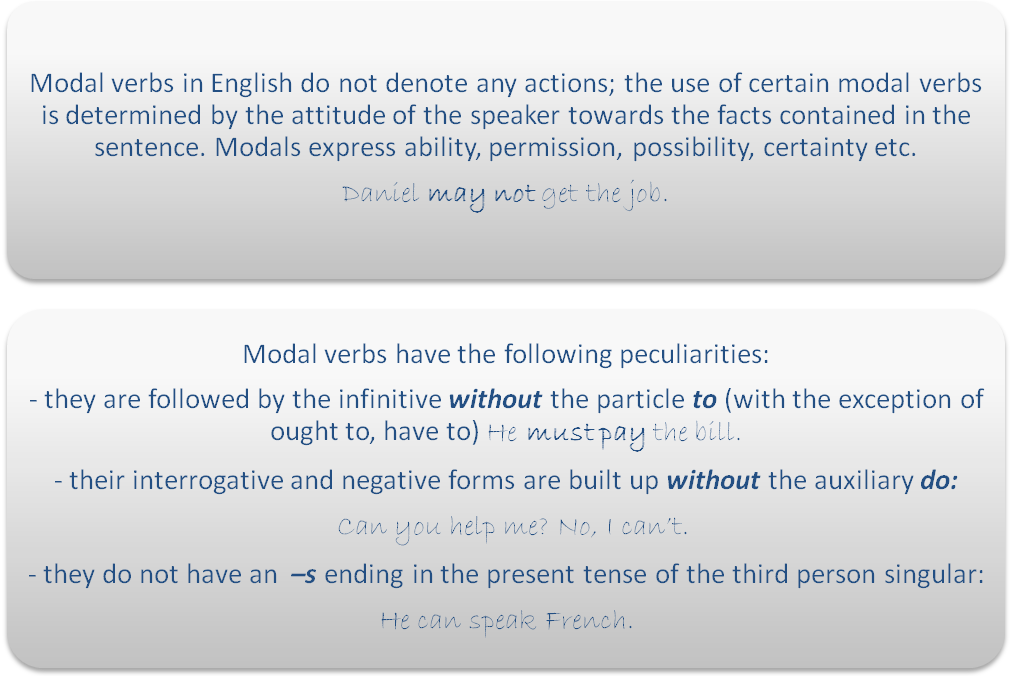
THE MEANINGS OF MODAL VERBS AND THEIR EQUIVALENTS
|
Function |
Time |
Form |
Example |
|
Ability |
Present
|
can
is/are able to
|
She can speak Spanish but she can’t speak Italian. Despite his handicap he is able to drive a car. |
|
Past |
could was/were able to |
Mozart could play the piano at the age of five. Mike’s car broke down but he was able to repair it. | |
|
Possibility |
Present |
may might could |
There may be a life on Mars. The rash could be a symptom of something more serious. |
|
Past |
could have might have
|
She might have done it; she had an opportunity and the motive. | |
|
Future
|
will be able to
|
We will be able to travel to the Moon. | |
|
Permission |
Present/Future
|
can can’t
|
“Can I use your phone?” “No, I’m afraid you can’t”. |
|
Past
|
was/were allowed to |
I was allowed to leave early yesterday. | |
|
Obligation |
Present
|
have to must need to should ought to
|
Students have to wear uniform. I must get up earlier. Do we need to get a visa for the USA? They really should/ought to consult shareholders first. |
|
Past
|
had to
|
We had to report to Reception by four. | |
|
Future |
will have to will need to |
The Council will have to find ways of cutting costs next year. | |
|
Necessity |
Present
|
must have to need to ought to |
All human beings must/have to/need to have enough sleep.
|
|
Past
|
had to needed to |
The staff and the students had to evacuate the campus. | |
|
Future
|
will have to will need to |
You will have to/need to work harder than that. |
A. These sentences come from an information booklet about a college. In each case choose the appropriate modal verb: may, must, can, should, be able to, or need .
The College welcomes part-time students who… work towards a qualification or attend a recreational education class.
Students claiming concessions for tuition fee payments … still pay the registration fees in full.
Late entries to examinations … be allowed, but will cost more than entering on time.
If you wish to attend a class in English for Speakers of Other Languages, you … take our test before you enroll.
If you need any advice, your first point of contact is your tutor, and you … always access other people through him or her.
A senior member of staff is on duty each evening between 6.30 and 9.30, and … be contacted via Reception.
Students attending evening classes only may not … access all our services. We … however make arrangements for you to see an appropriate adviser during the day.
It is regretted that people with physical disability … not be able to take the course that they choose.
The Student Council … be elected by students from across the college to represent and promote their general interests.
The College café is open from 8.30 am to 4 pm and from 5 to 8 pm. Outside these hours, a range of food and drinks … be purchased from vending outlets.
B. Choose the correct word or phrase to complete each sentence.
You must/needn’t save a file before you turn the computer off, or you will lose it.
I am afraid this is a non-smoking office, so you don’t have to/can’t smoke in here.
Employees are reminded that they mustn’t/needn’t use the office phone to make personal calls.
You needn’t/mustn’t send the reminder to Eastwood’s – they paid the invoice this morning.
In countries like Iran, you don’t have to/can’t buy or sell alcohol.
This income tax form must/needn’t be completed and returned to the Inland Revenue within 30 days.
You mustn’t/don’t have to come to the meeting if you have more important things to do.
This information is highly confidential, so you mustn’t/needn’t discuss it with anyone.
As you are from the European Union, you mustn’t/don’t have to have a visa to go to France.
Drivers wishing to hire a car must/can be over 21 and have a full driving license.
C. Look at the chart and make sentences using have to, don’t have to, or can’t.
|
|
obligation |
no obligation |
prohibition |
|
Airline pilots Union members University teachers Army officers Police officers |
have good eyesight pay a subscription be graduates go to training courses be over 1.75m tall |
work office hours
be qualified teachers carry guns (UK) |
drink before flying work during a strike
go on strike |
e.g. Airline pilots don't have to have excellent eyesight.
They don’t have to work office hours.
D. Change each of the following sentences using might, can’t, must, and a suitable infinitive.
1) It’s possible that they will give us the discount that we want.
They … might give us the discount we want.
2) Judging by the phone bill, I am sure she has been making long international calls.
Judging by the phone bill, she …
3) The factory is on a 3-day week. I am sure they aren’t selling many cars.
The factory is on a 3-day week. They…
4) It was a very bad deal. I am sure they lost a lot of money.
It was a very bad deal. They …
5) There is a chance she will be promoted at the end of the year.
She …
E. Match the comments in column A with the comments in column B.
|
A |
B |
|
I’m afraid I’m tied up all this week.
|
Ok, I’ve got them here. Shall I fax them to you? |
|
Can you turn the heating down?
|
That’s OK. Shall I pick you up from the airport? |
|
Is the next interviewee here yet?
|
That’s OK. Shall I ring back this afternoon? |
|
Is that the new screen I ordered? |
Yes. Where shall I put it? |
|
I am sorry, but I am in a meeting now. |
I am not sure yet. Shall we send you a quote in a few days? |
|
How much is this going to cost?
|
No, but shall I open the window for you? |
|
I don’t know London very well.
|
That’s OK. Shall we arrange a meeting for next week? |
|
I need to see the plans. Today, if possible. |
Yes, she is. Shall I send her in? |
GRAMMAR REVISION
F. Open the brackets.
Business star
Many of us want to become successful in business. One of the first steps is choosing a business school. To gain the success your level can/may/should be really high and you can/have to/may be a real specialist, only professional businessmen have to/are able to/should work far/further/furthest and develop their career.
If your goal is to become a Business School superstar, you can’t/mustn’t/shouldn’t forget that being a leader also means being a team player.
When you study at business school, many projects are provided as group projects. If you deal with other people well, it will be easy/easier/easiest for your group to succeed. Leadership skills are shown not only when you are in charge of some group, but first of all how you help the other members of your team. It must/can/may be any kind of job, but you have to/can/should do it good/better/best of all: manage deadlines, delegate and manage time. Your team will appreciate that.
Your colleagues will respect you if you can/are able/have to not only to lead, but also to follow when necessary. Be good/better/the best candidate and get great/greater/the greatest job!
LANGUAGE SKILLS 2: EXPRESSING YOUR AGREEMENT/DISAGREEMENT
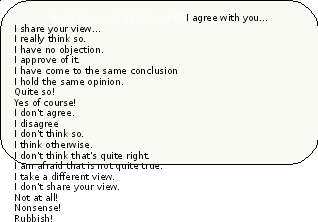
e.g. A: I think that there is a big difference between studying at university and at school. I guess that you have to set your own learning objectives and make sure that you meet them.
B: I hold the same opinion and I have come to the conclusion that the main difference is that you have to manage your own time. One way of doing that is to get a diary.
A: I don't think that getting the diary would help if you don’t set your own deadlines.
B: It is true but it can help to keep these deadlines under control.
SPEAKING
Discuss with your partner the following questions using expressions from Language skills 2.
Before exams do you usually revise alone or with friends? Which is better?
Do you think that making mistakes is an important part of learning? Why/Why not?
What courses have you taken/done in the past? What was good/bad about them?
If you go to a lecture, do you make lots of notes or just listen?
How can you make progress in subjects outside the HEI?
OVER TO YOU
Using the information from the textbook and the internet fill in the table and make the description of higher educational systems using it.
|
|
SIMILARITIES |
DIFFERENCES | ||
|
RUSSIA |
THE UK |
THE USA | ||
|
Admission |
|
|
|
|
|
Course structure |
|
|
|
|
|
Academic year |
|
|
|
|
|
Academic structure |
|
|
|
|
WORD FILE
|
Unit 4 Module 2 | ||
|
academic advisor academic year alumni credits deadline
|
delegate elective to enroll in grade point average (gpa) major
|
to make notes optional student council training programmes vocational
|
TEXTS FOR HOME READING
TEXT 1 CREDITS
Read and translate the text.
1 Like everything else under capitalism, the crediting and credit card system is simple. A store, a filling station or just a credit company allow you credit, its limit depending on your solvency which they calculate somehow (incidentally, on the basis of the information you give them). Having opened a credit account, they send you a plastic card bearing your name, account number and a blank for your signature. Wherever credit cards are accepted, the cost of your purchases and of the services rendered are put on the account indicated on it.
2 Every month the company which has issued you the credit card sends you a report on your expenses. The report tells you how much of the credit you have used up, and recommends the minimum of your expenses to be defrayed8 before the end of the month. You may pay out the lump sum, which is a clever thing to do because payments by installments will include a certain interest agreed upon in advance and recorded in your application for credit. This interest usually exceeds the bank credit rate.
3 After you have exhausted the credit, your card will no longer buy you anything. In that case you can use it as soon as you have paid for everything.
This system is not only simple but convenient as well. You don't have to carry cash, even a checkbook. Theoretically, your credit cards pay all your expenses: food, gas, clothes, car rentals, hotel bills, airlines and health resort bills.
4 Another convenience of this arrangement consists in that you can start paying for your purchases within a month of making it. The latent psychological trick is, however, that one is more likely9 to go on a spending spree if all one10 has to do by way of paying is to show his credit card instead of shelling out cash. Credit card holders buy more, as a rule.
5 Credit cards are just a means by which a mighty Western credit system has penetrated into everyday life and into the budget of the average American family. Being a fragment of that system, credit cards are its graphic illustration. There is hardly a sphere of the capitalist economy which credits haven't found their way into. Homes, consumer goods, planes, college instruction, industrial equipment, farm machines, fertilizers, land, factory and office blocks - all these are purchased on credit. Without credits, modern capitalism will not last a day. Without them, the Western economy would not have been as dynamic as it is now: by governing its material and financial resources, credits stimulate their turnover. It is11 due to such system that the Western economy has achieved the results which we admire today. The credit system plus enterprise is the core of American capitalism.
B. Give Russian equivalents to the following words and phrases:
the bank credit rate, certain interest, cost of your purchases, to pay your expenses, a bill, an account, average family, turnover, payment by installments, credit card bearing your name, convenience, to purchase on credit, to spend, to expend, to exceed the bank rate, to exhaust credit, to be indicated, to be recorded in application form, to put on the account, to carry cash, to use up credit, to penetrate into (to find its way into), to admire, as soon as, in advance, depending on your solvency, under capitalism, within a month, no longer, due to, there is hardly, which is a clever thing to do, such system will not last a day.
C. Find in the text English equivalents to the following phrases:
предоставлять кому-либо кредит, попросить кредит, покупать в кредит, кредитная ставка, оговоренный процент (т.е. о размере которого заранее договорились), заявление о предоставлении кредита, выдавать кому-либо кредитные карты, принимать кредитные карты (в качестве оплаты услуг), оказанные услуги, владельцы кредитных карт, оплачивать расходы, отчёт о расходах, номер счёта, открывать счёт, выплачивать всю сумму сразу, обучение в колледже, потребительские товары, заводские и офисные здания, как и всё в этой стране, больше не купит, это просто средство, вряд ли существует такая сфера, благодаря такой системе.
D. Find in the text 14 noun chains, that is combinations of 2, 3 or more nouns not connected by prepositions. Mind that the end of a noun chain is indicated by a determiner of another part of speech, for example:
The gas pipe system has several control points.
The gas pipe system in the second zone functions in a proper way.
Translate the noun chains you found into Russian. Make use of both variants of translating nouns used as attributes:
a) by an adjective (without changing the word order in the chain)
e.g. factory equipment – заводское оборудование
b) by a noun in possessive case but beginning the translation of the chain with the last noun in it
e.g. growth rates – темпы роста
high-quality steel production – производство стали высокого качества
Also, mind that attributes may sometimes be connected by “and”
e.g. labour and material resourses – трудовые и материальные ресурсы
light and food industry products – продукция лёгкой и пищевой промышленности
E. Say whether the following statements are true, false or there is no information in the text on the subject.
A credit company allows you credit, its limit depending on the information you give them.
The cost of your purchases and of services rendered is indicated in the report on your expenses that you receive at the end of each month.
When a credit company allows you credit it informs you on the rate of interest you will have to pay for this.
You can pay for your purchases with your credit card only within a month of making them.
Say which paragraphs contain information on:
Different ways of paying your expenses.
The importance of the credit card system to the economy of the country.
Advantages of paying with credit cards.
TEXT 2 MONEY AND BANKS
Read and translate the text.
1 The idea of money as a universal equivalent is familiar to us since childhood. Capitalism has learnt to use money in such a way that it would answer its purpose. Money is looked upon as a hireling of sorts12 which has to work for its master non-stop. Therefore no one salts money away at home in America. Americans keep their money in the bank so that it should breed more money: as interest, at least, although this is not the most fortunate way to make a profit.
2 Money is one of the Federal government's sources of profit: it prints money and lends it out. This is done by the Federal Reserve Bank. All the leading banks borrow money from the Bank at the so-called prime rate13. The latter is a vital component of the American finance system. It is not only a means of replenishing the state treasury, but also a regulator of America's financial well-being.
3 The regulation mechanism is simple enough. Supposing the prime rate is five percent. Having borrowed money from the Federal Reserve Bank at a five-percent interest rate, a local bank puts it into circulation (lends it out to its clients) at a seven-percent interest rate in order to make a profit. If the prime rate is ten percent, the bank lends out the money at a twelve-percent rate. This means that when the prime rate is small, you can borrow money from the bank on the easiest terms. In other words, money costs less in this case, and can be safely invested in long-term operations - involving real estate, for example. When the prime rate is high, however, money should be invested chiefly in quick-paying businesses such as stores selling goods in high demand.
4 By announcing another change in the prime rate level, the Federal Reserve Bank stimulates businessmen to reassess the profitability of certain deals and thus, in the final analysis, influences the level of business activity in various spheres of the economy. It would have been impossible to pursue such a policy without a ramified network of local banks.
5 No population centre in America, even the smallest one, is conceivable without a bank building. A small town may have several banks, and in a city there are tens of them. Like any business, a bank is after14 a profit, above all. Money is the commodity it sells. To put it simply, a bank seeks "to buy" money cheaply (not necessarily from the Federal Reserve Bank), at an annual six percent interest, for example, and to sell it dearly (as credit to a building company) at an annual interest rate of eleven percent. This is what the banks are busy doing. There are many variations with this pattern15, of course.
6 Naturally, the banks put their money where it brings them the highest profit. This is why they always keep up to date16 with the market situation. By shifting money of various "costs" from sphere to sphere, from one geographical region to another, the banks actively stimulate progress in industry, construction and agriculture. Besides this, the banks promote the growth - or cause the demise17 - of individual population centres or even whole regions.
7 Banks are interested in keeping most of their money in circulation so that it should bring them profit. They seek to reduce lending rates in order to attract buyers. The cuts in interest rates are more than made up for by an increase in the amount of money in circulation.
8 In their pursuit of high profit, the banks sometimes get involved in risky operations fraught with bankruptcy. Therefore, the Federal government takes measures to minimize the danger of banks going broke18. Every bank is obliged to take out insurance against robbery or bankruptcy lest the clients should lose their money in any case.
9 The banks cater to big and small companies and individuals.
B. Give Russian equivalents to the following words and phrases:
familiar to us, source of profit, a means of replenishing, state treasury, well-being, annual interest, prime rate, cuts in lending rate, goods in high demand, ramified network, real estate, not the most fortunate way of… , the latter, chiefly, cheaply, dearly, danger, to promote growth, to cause a demise, to influence, to reassess profitability, to keep money in the bank, to keep money in circulation, to attract buyers, to lose money, to make up for losses, to cater to individuals, individual population centers, to pursue such a policy, in their pursuit of high profit, to shift money of different costs.
C. Find in the text English equivalents to the following phrases:
получать прибыль, ссужать деньгами, ссудный процент, брать деньги в банке под 12% годовых, пускать деньги в оборот (обращение), на самых выгодных условиях, быстро приносящее доход дело /предприятие, очень важная часть чего-либо, сокращение, увеличение количества денег в обращении, обязан принять меры, деньги рассматриваются как…, это значит, что…, другими словами, довольно просто, проще говоря, предположим, поэтому, вот чем занимаются банки, вот почему они стремятся сократить процентную ставку, в конечном счёте, в любом случае, так называемый ссудный процент, не обязательно, естественно, прежде всего, по крайней мере.
Look through paragraphs 1, 2, 6, 7, 8, write out 6 phrasal verbs and give their Russian equivalents. Define the type each of the phrasal verbs belongs to:
I – do not require object after them
II – the particle is used after the verb only
III – the particle may be used either after the verb or after the object
IV – the particle is followed by a certain preposition
Find in the text 9 noun chains.
Find in paragraphs 1, 3, 7, 8 words and word combinations with the meaning «чтобы», «чтобы не», «так, чтобы / таким образом, чтобы».
D. Say whether the following statements are true, false or there is no information in the text on the subject.
The “cost” of money depends on the prime rate.
When money is “cheap” it can be safely invested in real estate operations.
By increasing the prime rate level the Federal Reserve Bank stimulates investments in construction.
The Federal government insures every bank against robbery or bankruptcy.
E. Say which paragraphs contain the information on:
A means of making profit for:
the Federal government
a bank
individuals
How money is looked upon by the banks.
How banks influence different spheres of economy.
How the Federal government promotes the development of different branches of economy.
Say which of the following sentences presents most accurately the main idea of the text.
Lending money out – that’s what all banks (including the Federal Reserve Bank) are busy doing.
Banks’ activity is very important both to the population and economy.
Different ways in which banks make their main profit.
TEXT 3 TAXES
Read and translate the text.
1 There are three levels of government in the United States: federal, state and city, therefore there are three types of taxes: federal, state and local taxes. There are several kinds of taxes. The main ones are income taxes. People must pay a certain percentage of their salaries to the federal government. Companies pay company/ corporation income tax on their profits.
2 The income tax in America is progressive: the more you earn, the more you pay. All taxpayers benefit from a system of tax allowances under which part of their income is tax-free. Privileges lowering the amount of tax are: moving expenses, having a big family, medical costs, the number of dependents, the expense of caring for small children, other such expenditures.
3 All citizens have to fill out a tax form once a year and send it to the Internal Revenue Service Bureau. Every employer is obliged to regularly take some money for taxes out of a worker’s paycheck. If at the end of the year the sum taken out is more than that arrived at on the tax form, the government returns the difference to the worker. However, if the sum is less than on the tax form, the worker must pay the difference.
4 There is also state tax added on to the price of the majority of purchases made in this state, including food (sales tax).
5 Then there is the social security tax and a tax on property and realty, which are paid for the city. Besides all these, there are even other small local requisitions: licenses for cars, licenses for businesses, the inheritance tax, and excise duties on such items as petrol, tobacco, and alcoholic drinks. The cities use this money for education, police, fire departments, public works (street repairs, water, and sanitation) and municipal buildings.
6 The main expenditure tax is the VAT (value added tax). Businesses pay it on most goods and services they buy.
7 The collection of income taxes is constantly adjusted in order to stimulate investments in those areas of the economy where it is needed at the moment most of all. So if things are going bad in housing construction, certain tax deductions are introduced for persons (establishments) building their own houses. If little money is invested in production capacities, some law is introduced stimulating it. In addition, the federal government has other ways of using the income tax laws as a means to regulate the state of the economy.
B. Give Russian equivalents to the following words and phrases:
income tax, social security tax, value added tax (VAT), majority of purchases, property, realty, revenue, expenses, expenditures, medical costs, excise duties, tax allowances, tax deductions, to be tax free, to lower the amount of tax, to charge VAT on such items as …, to constantly adjust, inheritance, dependents.
C. Find in the text English equivalents to the following phrases:
налогоплательщики, расходы на переезд, уход за ребёнком, заполнять налоговую ведомость /декларацию, обязан раз в году, возвращать разницу, из его зарплаты, сбор налогов, средство регулирования, состояние экономики, вводить закон о налогах, строительство жилых домов, если дела идут плохо.
D. Say whether the following statements are true, false or there is no information in the text on the subject.
Sales tax is paid for the Federal government.
Companies pay VAT on most goods and services they sell.
Social security tax is one of the local taxes.
Expenses on moving to another town in connection with the change of a job give a person the right for tax allowances.
E. Say which paragraph contains the information on:
The system of income tax collection.
Taxes as a means of regulating investments.
Income tax deductions.
TEXT 4 ENTREPRENEURSHIP
Read and translate the text.
1 Entrepreneur is a man who is ready to risk his material well-being for the sake of some promising business. Such a person does not wait until he is fired, but begins his own business as soon as he feels he is ready. It goes without saying19 that the earlier a person gets into business, the more time he has to correct the inevitable mistakes.
2 Not all entrepreneurs want to set up big companies. Most dream of their own small, but solid business. Therefore besides large and small companies in America there are also mini-firms – one-person firms. It is not difficult to set up such a firm and it is not hard to survive for a while20. Some of such businesses will remain that way. Some of them will quickly fail. But many, having made it through the first crucial two or three years, will begin to flourish and some even to grow.
3 Entrepreneurship is a motto in America, the spirit of entrepreneurship is the morality of American society, and entrepreneurs are the main moving force of the American economy.
4 Many future entrepreneurs deliberately start a career working for somebody else. By learning the ins and outs21 of another man’s business and noting his pluses and minuses, they accumulate know-how, put aside enough money and establish business connections. After that they are ready to start their own businesses.
5 A car mechanic, while working for his boss, began to earn additionally in his free time in the evenings. Eventually he had his own clientele. He saved up some money, borrowed the rest and built a small three-car repair shop. Now he works for himself and has turned into an entrepreneur.
6 Another man, a competent engineer, set up a small factory producing electricity measuring devices some 40-45 years ago. There were times when he could have expanded production (and correspondingly increased profits), but he never wanted to. He earned enough as it was22. He is proud of the fact that aircraft plants buy his devices and NASA uses them on its shuttle spaceships and satellites. He began his business by himself in his garage. Now 49 people work at his factory. The atmosphere is almost like one big family. He is already 75, but he actively runs the business nevertheless, always introducing new technologies. He regularly gives to charity organizations. He is a typical American businessman and entrepreneur.
7 Even people with intellectual professions are not afraid to try other things and get into business. A professional doing some business is a normal phenomenon in America. It is respected and encouraged by society. And for anyone who has some trade – housepainter, electrician, a joiner – it is even easier to start his own business.
8 Of course, to work for someone else is less trouble: someone creates a job for you, gets orders, collects money from the clients and takes on the responsibility for making both ends meet23. At night, he figures if he has enough money to write out your paycheck, pay the rent for the building, buy equipment and supplies and on and on. And you calmly put in your hours from 9 to 5, and rest on weekends and holidays (something the owner can’t always permit himself). On the other hand, entrepreneurship gives an incomparable sense of personal freedom. Anyone who has experienced it would not be likely to turn down an opportunity to become an entrepreneur.
Look through paragraphs 1,2,4,7 and find 6 verbs which go with the word “business” and 4 collocations with this word. Give their Russian equivalents.
C. Find in the text (paragraphs 1, 2, 4, 5, 8) phrasal verbs which mean:
заняться чем-то, создать (предприятие), отложить (деньги), сэкономить (некоторую сумму денег), стать кем-то /превратиться в кого-то, взять на себя (ответственность), отрабатывать (определённые часы), выписывать (квитанцию), отказаться (от предложения).
D. Find in the text English equivalents to the following words and phrases:
выжить, расширить производство, поощрять, испытывать (какое-то чувство), создавать новые рабочие места, получать заказы, работать на себя, работать на кого-то другого, менее хлопотно, позволять себе, сводить концы с концами,
внедрять новые технологии, остальное время, ремонтная мастерская, ради чего-то, быть уволенным, не ждать пока тебя уволят, соответственно, дополнительно, намеренно /специально, накапливать опыт /знания.
E. Find in the text 12 ing-forms and translate them into Russian.
F. Say whether the following statements are true, false or there is no information in the text on the subject.
It is not difficult to set up a one-person business, but most of such firms quickly fail.
To start your own business you need to save up some money and borrow the rest.
Expanding production does not necessarily mean increasing profits.
All American businessmen regularly give money to charity organizations.
Say which paragraphs contain information on:
Responsibilities of an entrepreneur.
What is needed to do before starting one’s own business.
What kind of people go into business.
What kind of a firm people usually set up when going into business.
Say which of the following sentences presents most accurately the main idea of the text.
It is easy to become an entrepreneur in America.
Entrepreneurs are the main moving force in America.
It is more trouble to work for oneself (to be an entrepreneur) but it is worth it.
TEXT 5 COMPANIES AND MIDDLEMEN
Read and translate the text.
1 The main success of the economy is due to its organization of production. The average American, as a rule, is not an entrepreneur, but works for somebody else and quite often changes jobs, even his profession sometimes. Except for those who work for the government, almost all Americans work for private companies: at factories, on farms and in offices. Usually it is a small company with only 10-20 people or even less. Often it is a family. That size company is the backbone of American companies. But even large enterprises having a thousand or more employees are usually decentralized. They consist of separate, virtually independently run units which may even compete with each other in some cases. Those at the headquarters only coordinate the overall economic and technical strategy.
2 Such breaking up into smaller units works very well. At the head of a company of several thousand employees are, say, thirty odd partners who gather not more than once or twice a year. They sum up the successes and failures, come up with24 a general plan of action and split the profits. The rest of the time the branches are on their own25: they themselves get their clients, orders, finances, set their employment policy and buy their own equipment. None of the daily activity is regulated by anyone.
3 In the United States, the use of consulting firms is a common practice: it is customary to invite qualified specialists to solve complex problems. This is better than having such people in the company, for there is not enough work to keep them busy 100 percent of the time. Many consulting companies are occupied with training workers on the job, for instance, to use new equipment or computers. Some firms give courses on how to earn money. The expenditures of the companies on these consultants and instructors are made up for by the higher productivity of the workers and lower labour fluidity. Moreover, it is profitable due to tax privileges: practically all these expenditures are "written off’ from the taxes, which is only natural, since the government is interested in the enterprise to flourish.
4 The first thing that impresses you in America is the huge army of middleman working in almost every sphere: trade, advertising, market studies, consulting, etc. Initially, you find it hard to understand why the rational American society needs so many parasites. For example, a factory produces windows and the builders take them to a construction site and fix them. This is all the process is about26. In America, however, this process also includes wholesale firms, shops, advertising companies, companies testing the quality of glass, transportation companies and construction firms, to say nothing of27 subcontractors who serve the whole team. Each of them adds some personal value to the designing, manufacturing and delivery of goods.
5 Middlemen in America are, as a rule, very experienced people, professional sellers of windows, for instance. They are not bored girls who can't wait to have a lunch break. Middlemen are people with very good professional training. They know all the pros and cons of their product and the products the rival firms offer.
6 Middlemen operate everywhere: they run employment bureaus, rent and lease housing and office space, create real estate firms, publishing agencies, etc.
Give Russian equivalents to the following words and phrases:
average, except for those who…, the backbone, a unit, a branch (of a company), thirty odd partners, overall strategy, failure, headquarters, labour fluidity, to flourish, separate groups, independently run units, to come up with a plan of action, the first thing that impresses you, you find it hard to understand, they operate everywhere, they run an employment bureau, a wholesale firm, a rival firm, experienced people, construction site, all the pros and cons.
Find in the text English equivalents to the following phrases:
успех объясняется хорошей организацией, благодаря хорошей организации, соревноваться /конкурировать друг с другом, повседневная деятельность, обычное дело, обычно приглашают /принято приглашать, решать сложные проблемы, находить заказы, занимаются подготовкой работников по специальности, поскольку, т.к., подводить итоги, расходы компенсируются, посредник, сначала, проверять качество, устанавливать окно, фирма по продаже недвижимости, брать и сдавать в аренду, проектирование, производство, доставка, обслуживать, жилые и офисные помещения.
Say whether the following statements are true, false or there is no information on the subject in the text.
Small private companies are normally family businesses with 30 odd people.
Large enterprises are, as a rule, broken into smaller units.
Those at the head of a big company coordinate the overall economic strategy
and regulate daily activity of separate units.
It is more efficient to invite specialists just to solve complex problems than
to have them permanently employed.
In business, it is common practice to use services of middlemen who are very experienced people, as a rule.
Say which paragraphs contain the information on:
Responsibilities of a company branch.
The structure of a big company.
Advantages of not having to employ all sorts of highly qualified professionals.
TEXT 6 EMPLOYMENT AND JOB HUNTING
Read and translate the text.
1 Curiously enough, wherever you go you see that most employees are young folk. There are very few middle-aged and no elderly folk at all among them, even though the retirement age is 65. The thing is that after a certain age is reached people crave to start their own businesses. They either set up their own firms, or join operating firms as partners.
2 One of motivations for this is the fear of becoming unemployed. Every employee is always haunted by the likelihood of losing his job, and girds himself28 appropriately. Thus he pays dues29 to cover loss of work which are complemented halfway by his employer. He also puts money aside “for a rainy day” as an investment or a bank deposit. He tries to acquire some sideline30, even if it doesn’t meet all his needs, in short, be prepared for any eventuality.
3 In the United States job placement is also an industry. Firstly, you have federal and state employment agencies, who do not charge you for their services, but whose results are minimal. Secondly, you have similar private agencies, for whose services you must pay. During recession these agencies prosper. Some really get you employment. Charges differ. Sometimes an advance payment is demanded. Some agencies may require a deposit31 with a remainder paid up over a certain period of time after one gets a job. Sometimes an employer pays the fee, which, as a rule, is equivalent to one’s monthly pay. Or a percentage may be deducted from the pay over the entire period which is usually, when the job is temporary, of no more than six months or so.
4 However, the most common job-hunting approach is via newspaper advertisements, as even when recessions are worst and employees are laid off wholesale, newspapers feature a lot of want ads32, true, often not for the kind of job you are looking for. Most people secure jobs with the help of family and friends.
Give Russian equivalents to the following words and phrases:
employee, employer, employment, unemployment, to get somebody an employment, employment bureau /agency, to employ, to be unemployed, to be self-employed, a company employing more than 1000 people, a small proportion of population is employed in agriculture, agriculture directly employs 2.5% of working population, elderly folk, the middle-aged, retirement age, after a certain age is reached, after one gets a job, a temporary job, want ads, an entire period, it does not meet all your needs, to join operating firms as partners.
Find in the text words or word combinations which are equivalent in meaning to the following ones:
to lose one’s job, looking for a job, to compensate for a loss of work, to require, via, to get, to be fired, the rest (of the sum).
Find in the text English equivalents to the following phrases:
зарплата, предоплата, аванс /залог, гонорар, плата за услуги, не брать деньги с кого-либо за что-либо, трудоустройство, поиски работы, примерно один месяц, наиболее распространённый способ, очень мало или совсем нет (чего-то), кризис /спад производства, какой-то процент (какая-то часть денег) вычитается из вашей зарплаты.
Say whether the following statements are true, false or there is no information on the subject in the text.
There are no elderly folk among employees because the level of unemployment is high.
In order to get prepared for a loss of work employees try to get some additional job.
You can always get the job you need via newspaper advertisements.
Charges (for getting you a job) at state employment agencies and at similar private agencies differ.
TEXT 7 FARMING AND LAND TENURE
Read and translate the text.
1 How come33, that while comprising a negligible proportion of the population and despite restricted output, America’s farmers are in a position to feed not only their own country, but half the world into the bargain? The clue is simple. It derives not only from the industriousness with which the farmers produce, but from the pattern34 of relationships between every party involved35, from farmer and bank to machine maker and landowner.
2 Many own land. Some are farmers themselves. However most are investors or banks. In America most farmers cultivate land that is owned by others. When it is said that in America all the cultivated land is privately owned, meant are36 not farmers but landowners. Generally speaking, the farmer owns his farm like any businessman his own firm. But in the same way as a factory owner need not necessarily possess the buildings, so the farmer need not necessarily cultivate exclusively his own land.
3 The landowner is one of the basic factors involved in the agronomical process. He purchases land to lease it to farmers and collect rent after each year’s crop. As the purchase of land like all other property is an investment, this means firstly that he must pay the bank its rates, as few can afford to buy land with cash on the barrel37 and, secondly, pay the annual land tax. The money invested in land must necessarily yield the dividend not less but if possible even more, than if invested elsewhere.
4 No wonder that after leasing his land the landowner doesn’t wash his hands off the whole affair. He has many cares. His land must not only retain, but even improve its fertility, as it is upon this that the crop and hence dividends, as well as the future price of his land depends. Good landowners never lose sight of that. To this end they employ the services of a special land management agency that, in turn, allots a special manager to look after the land. As a competent agronomist, the said manager implements a perennial strategy of land tenure, watching over the rational and prompt use of fertilizers, crop rotation and a drive against weeds and pests. As his own earnings depend on crop yields, he has a personal stake in land fertility and bumper crops.
5 Some of the parties involved in the agronomical process contribute to the end product indirectly. These are the countless promoters of new machinery, the salesmen who demonstrate agricultural novelties, new chemicals and seed materials, as well as the staff of the management firms mentioned.
6 The relationships between farmers, managers, landowners and other parties involved comprise part of the overall system of production relationships under capitalism. Interests more than simply interweave, they dovetail. Small wonder they conjointly yield such abundance in the country year after year.
Give Russian equivalents to the following agricultural terms:
land tenure, farm, farming, to cultivate land, to lease land, fertility, fertilizer, to retain and improve fertility, seed materials, crop rotation, bumper crops, crop yields, after each year’s crop, a drive against weeds and pests.
Find in the text English equivalents to the following phrases:
быть в состоянии, составлять незначительную часть (целого), не удивительно, в придачу, начиная с чего-то и заканчивая чем-то, когда говорят, что…, не обязательно принадлежит другим, мало кто может позволить себе купить, приносить доход, быть лично заинтересованным в чём-то, точно так же как фермер, так и владелец фабрики, а также, такой как, как таковой, так как, как правило, следить за, заботиться о, иметь много забот, пользоваться услугами, стороны, участвующие в процессе.
Give Russian equivalents to the following derivatives:
a factory owner, a landowner, farmer owns his land, his own farm, land is owned by the bank, most of land is privately owned, ownership.
Find in the text 10 ed-forms of English verbs and translate them into Russian paying attention to different functions they perform in the sentences.
Say whether the following statements are true, false or there is no information on the subject in the text.
Farmers in America cultivate exclusively the land they own.
Not all farmers are landowners.
Investment in land is usually more profitable than in any other property.
Dividends of a landowner do not directly depend upon the fertility of his land.
Landowner himself manages the land he leases to farmers.
All the parties to the agronomical process have personal stake in fertility of land and bumper crops.
Say which paragraphs contain the information on:
The pattern of relationships of production in agriculture.
The responsibilities of a landowner.
The duties of a land manager.
The reason for abundance of agricultural produce in the country.
TEXT 8 STOCK AND COMMODITY EXCHANGES
Read and translate the text.
1 At first glance, an exchange is simply a very noisy place where brokers sell stock and commodities. Why is the whole world watching the goings-on in that place, and why does the economy of the US and the world depend on it? Let us consider two examples. Supposing a man bought a seat at an exchange. (A broker's seat is $350,000 and you also have to take an examination.) His business is trade in Eurodollars - dollars in circulation in Europe. He buys money when the rate is down and sells it when the rate is up, watching rate fluctuations on an electronic display. The difference makes the broker's profit. That's all. In America this business is a respected, very profitable business which is very much needed by society.
2 Another man buys and sells future prices for pork. Like the Eurodollar broker, he gets information about price fluctuations from an electronic display. It must be noted that pork is not yet produced (the same applies to the trade in prices for future grain crops, etc.). Naturally, he sells high prices and buys low prices, pocketing the difference. How does it benefit society? How does this trade influence the economy? Let us see how the system works.
3 Raising funds for its needs, an enterprise (factory or firm) issues shares. Shares give shareholders the right to a portion of the firm's property and dividends. The total value of the stock equals the total value of the corporate property. If business goes well, the firm's wealth grows and so does the portion of that wealth due for one share. This means that the firm's stock is on the rise, but it can also fall if things go wrong.
4 When it sells shares, a company pledges to buy them back at any time the shareholder wishes to sell. Naturally, if things don't go very well and on top of that the company has to buy its shares back, it may easily go bankrupt. On the other hand, if a company goes under38, shareholders become holders of worthless sheets of paper.
5 The societal value of stock-exchange operations is self-evident. Stock price fluctuations help businessmen and the public to understand how solid a company is, which branches are more profitable and where investments should be made. Stock exchange also serves as an incentive to effective investments in developing and promising economic branches.
6 In the case with future prices (crops, meat, oil, steel, etc.), when prices are set in advance, the volume of production can easily be determined.
7 This is the way39 commodity and stock exchange markets influence the economy performing the main function of an economic barometer. When stocks start falling, business quarters become nervous, the number of deals decreases and investments are curtailed. The decline of stocks slows down economic development, brings about recession and greater unemployment.
Give Russian equivalents to the following words and phrases:
stock exchange, stock(s), rate fluctuations, when the rate is down/up, to pocket the difference, profitable, respected, to raise funds, to issue shares, to pledge to buy back, worthless sheets of paper, self-evident, incentive, a promising economic branch, in the case with, to set prices in advance, volume, to curtail, to decline, to slow down, to decrease, to bring about recession.
Find in the text English equivalents to the following phrases:
предположим, не говоря уже, давайте рассмотрим два примера, на первый взгляд, следить за происходящим, то же самое относится и к, приходящийся на долю (одной акции), курс акций растет, и кроме того (к тому же), с другой стороны, насколько прочно положение компании, вот как рынок влияет на, деловые круги, бизнес, который нужен обществу.
Match the words to make six word partnerships.
|
|
E. Say if these statements are true or false or there is no information.
An exchange is a place where stocks and commodities are traded efficiently.
Broker’s seats are easily bought and sold by anyone.
Trading on the stock and commodity exchange is considered to be a very important and beneficial business to the society.
A broker sells low prices and buys high prices.
To get the necessary capital, companies issue shares.
There is no risk of going bankrupt for a company whose shares are listed and traded on the exchanges.
Businessmen and the public must keep up-to-date with the situation on the stock markets.
Commodity and stock exchanges are a vital component of the economy.
Say which paragraphs contain the information on:
The importance of stock exchange operations to the society.
The main function of the commodity and stock exchange.
The way shareholders can get dividends or lose their investments.
TEXT 9 ADVERTISING
Read and translate the text.
1 One can buy anything in America, but it takes a great deal of mastery to sell anything there.
2 Millions of people are engaged in promoting40 products (goods and services).There are millions of methods to do it. The most primitive one is to deliver goods to a shop and wait until they are sold out (similarly, to open a service bureau and wait for customers). In this case, the main task is to get people into the shop and make them interested41 in what you offer.
3 To attract customers, some shops organize regular sales at discount prices. This does not mean that the goods sold at a discount are of inferior quality. The idea is to woo customers to the shops promising cheaper goods and wait for them to buy goods at regular prices as they do their shopping. Sometimes shops run out of42 the discount goods. In this case, one can ask shop assistant to issue a rain-check43.
4 To get a customer into the shop, Americans never stop short of44 great spending. First and foremost the customer has to get to know new goods on the market. Free-of-charge distribution of goods serves the purpose. These are samples of new goods which the producer companies wanted the customers to get acquainted with. This is one type of advertising.
5 Another type is showing a product in action. Supposing you got a call from a company selling vacuum cleaners with a suggestion that you have a look at their new model. You agreed to see it and in the evening of the same day a woman comes to your place and cleans half the house. Of course, you like the vacuum cleaner.
6 Another way of advertising is distribution of gifts. From time to time you receive invitations to visit car salons, for example. Your time to get there and test drive a new car is compensated by a gift, such as a portable radio, a beauty set, a turner kit, etc.
7 Selling by catalogue is very popular. Every day you are mailed several catalogues. The most popular of them come in the form of colourful big booklets containing pictures of goods, their regular price, the price in the shop belonging to the firm, and the price of selling by mail. Big companies may also offer you credit on the goods they sell.
8 The art of selling is for the persistent. Without persistent sellers, America would not be what it is now.
9 Commercials, especially television ones, are very expensive and not all companies can afford them. Usually the sellers of similar goods pool their funds to buy one ad. Often producers pay for ads. Advertising expenditure in the US is comparable to the budgets of some countries. However, it is not for nothing that45 society undertakes such spending. It helps move goods more quickly and efficiently. This means that the funds spent on manufacture of goods circulate more quickly, which, in turn, accelerates economic growth.
B. Give Russian equivalents to the following words and phrases:
a great deal of mastery, are engaged in promoting, to attract customers, sale, a discount price, to be of an inferior/superior quality, at a regular price, to promise, a sample, to serve the purpose, to offer, suggestion, a gift, portable radio, a set, a kit, to mail, persistent, expensive, cheap, ad, comparable, to accelerate.
C. Find in the text English equivalents to the following phrases:
точно так же, прежде всего, взглянуть на, время от времени, объединять средства, может позволить себе, их можно сравнить с, идти на такие расходы.
D. Find in the text phrases containing “to get” and memorize different meanings of the verb.
|
to get smth to get somewhere to get smb into smth to get/make smb do smth to get to know smth to get acquainted with I’ve got a car. I’ve got to do this right now. |
получать/доставать/покупать что-либо добираться куда-либо заманить/вовлечь кого-либо в заставить кого-либо делать что-либо узнать о чем-либо познакомиться с У меня есть машина. Я должен сделать это прямо сейчас. |
E. Find in the text phrasal verbs which mean: никогда не останавливаться перед, истощить запас, распродавать, привлекать/заинтересовать and use them in the sentences of your own.
F. Say whether the following statements are true, false or there is no information on the subject in the text.
There are a lot of ways to sell goods and services.
To attract manufacturers, some shops organize sales at discount prices.
Internet shopping is the most popular nowadays.
Advertising accelerates economic growth.
G. Say which paragraphs contain the information on:
How much Americans spend on advertising.
Different ways of product promotion and encouraging people to buy it.
What can help to succeed in selling.
TEXT 10 HOUSING, MORTGAGES46
Read and translate the text.
1 The word "mortgage" means borrowed credit. In other words, a loan with interest, with the guarantee of payment in the form of a house. There is a creditor - a bank - owning these homes until the debt is paid up. The mortgage payments47 often account for 35 percent of the family budget, and sometimes more. Thus, the term is an important one in America.
2 Those who pay mortgages are those who own their homes, town houses or simply apartments. Not by a long short48 all Americans own their places of residence. Meanwhile, despite the large expense which goes along with paying a mortgage, Americans strive all the same49 to own the place which they call home. Why is this?
3 First of all, renting apartments (or houses) becomes more expensive each year, even in those places where the government tries to subsidize housing. The growth in incomes just doesn't keep up with climbing rents.
4 Secondly, real estate usually increases in price, and this price either out-distance inflation, or at least doesn't fall behind it. With the rise in the price of real estate, your financial means, invested in real estate, also grow. Such investments enable people to combat inflation.
5 Thirdly, the widely developed system of loans with interest allows you in many instances not only to fight inflation, but to earn money from it in the form of the value of your home (as is the case, by the way, with real estate in general).
6 How this works, when given a general outline50, is simple enough to understand. In America, real estate is bought, as a rule, on credit. Very rarely does someone collect a sufficient quantity of loose cash needed for such a purchase. We are talking, usually, about tens or hundreds of thousands of dollars. But even if such money were available it is not smart to freeze up these funds over a long period. It is much more lucrative to allow cash to circulate, either to invest it or to have it in the bank where it makes interest.
7 As a rule, you put cash down51 to cover 5-15 percent of the cost. The rest - mortgage. Banks make money off this, receiving on their money a specified yearly interest. At the same time a mortgage is not only profitable for them.
8 When real estate grows in value, though that money which you laid down for the property is only a part of its value, you earn a 100 percent of the growth of the whole price on the real estate. For example, having bought a 100 thousand dollar house, you put down, in all, 10 thousand, and the rest you owe to the bank (mortgage). The whole 100 thousand dollar house actually even grows in price. Having sold the house, at a new higher price, you pocket the difference between the new and old prices.
9 But this is still not all. The interest on the mortgage paid to the bank (in the mortgage payment it is not only the interest but also a sum which is the consistent paying off of the original debt) and the real estate tax, are expenditures which the smart American legal system does not impose taxes on. Filling out your tax declaration, you put these sums in the expenditure section, in this way shrinking the overall sum you will pay in taxes.
10 Many banks offer what is called a "return mortgage". In essence, this means that the bank starts to pay to the debtor, when he reaches a specified age, his mortgage to buy back the house again from him, with the idea that after a certain number of years the bank will own the house in full. The “return mortgage” is really its own form of a pension, which many seniors gladly participate in, as if "living off52 in old age their home – their main (and sometimes even single) material possession left in life. The "return mortgage" illustrates the fact that investing in real estate is one of the best ways to assure your financial independence in America.
11 Naturally, real estate deals are not limited to the purchase of a private single family home. Some go even further and buy apartment buildings. This is a common form of earning a living off real estate.
Give Russian equivalents to the following words and phrases:
mortgage payment, accounts for 5 % of the budget, to own one’s own home, apartment, apartment building, single family house, place of residence, despite, expense(s), expenditures, climbing rent, shrinking taxes, in many instances, for instance, as is the case with, rarely, loose cash, to collect a sufficient sum of money, it’s not smart, to freeze up funds over a long period, to owe (to the bank), interest on the mortgage, original debt, to impose taxes, overall sum, a return mortgage, to reach a specified age, a certain number of, in full, single material possession, to go further, a common form of earning a living.
Find in the text English equivalents to the following phrases:
залоговый кредит, заем с залогом, выплачивать долг, прежде всего, не отставать от, опережать, отставать, позволять (давать возможность), бороться с инфляцией, между прочим, если необходимая сумма имеется, пускать деньги в оборот, вносить наличными, зарабатывать на этом, растет в цене, деньги, вложенные в собственность, постепенная выплата долга, охотно идут на такие операции, не ограничиваются приобретением дома для своей семьи, зарабатывать на недвижимости, суть в том, что…, связанные с…
Say whether the following statements are true, false or there is no information on the subject in the text.
Mortgage is a legal arrangement by which you borrow money from a bank or similar organization in order to buy a car.
A bank owns your house or a flat until the debt is paid up.
It is wiser to own one’s home than to rent a house or an apartment.
Like Americans many Europeans strive to own the places which they call home.
E. Find in the text phrasal verbs that mean:
выплачивать сполна, сопровождать, держаться наравне (не отставать), отставать.
F. Say which paragraphs contain information corresponding to the information in the following sentences.
Many elderly folk take part in the so-called “return mortgage”.
Americans do not pay taxes on the mortgage.
It is much more profitable to keep money in circulation.
Real estate deals are a common form of earning one’s living.
TEXT 11 INSURANCE
Read and translate the text.
1 Under capitalism this is one of the very widespread forms of services. Without insurance, it is difficult to survive and if there is a demand for something, there will be no lack of goods.
2 At a minimum, people insure their dwelling, property, car, and health. In many states, car insurance is mandatory. Insurance payments, as a rule, make up an important part of the family budget. They insure, in reality, almost everything: life, professional activities (inthe event that you make an error), lack of crops in the event of drought, medical expenses, etc.
3 The cost of health insurance, medical and life insurance, depends on your age: the older you are, the more it costs; insurance of professional life depends on your experience, professional work record and your history with malpractice suits53. Analogously, if someone has on one's record several car accidents, his automobile insurance will be more expensive. Besides these factors, they also take your age and sex into account. An increase in insurance payments depends also on an increase in coverage. Typical life insurance, offered by many employers, equals a two-year salary.
4 Insurance of professional life sometimes is so expensive that some businesses go bankrupt from the costs. Insurance companies, nevertheless, do quite well. As a rule, they use their earnings to invest in real estate and often act as construction firms. In this way, they fulfill another important function for society: money for insurance collected from the population participates in socially useful activities and is a boost to the economy.
5 In America, few families do not buy an insurance policy because insurance is, after all, connected to a fundamental aspect of life - caring for health. Nonetheless, there are people who do not buy insurance, medical included, relying on their own health and good luck. For those who cannot dictate their fate, such behaviour is shortsighted and dangerous.
Give Russian equivalents to the following words and phrases:
wide-spread form, lack of crops, insurance payments, dwelling, car insurance, mandatory, to go bankrupt, to do quite well, nevertheless, to fulfill the function, connected to everyday life, caring for health, to rely on good luck, dangerous.
Find English equivalents to the following phrases:
нелегко прожить, недостатка в товарах не будет, если имеешь на своем счету аварию, учитывать возраст, выступать в качестве застройщиков, таким образом, еще одна функция.
Find words in the text which have similar meanings to those in 1)-10).
|
|
E. Say whether the following statements are true, false or there is no information on the subject in the text.
Under capitalism if there is a demand for something, the goods will be in surplus supply.
Offering insurance, the agent takes into account your age only.
Insurance payments make up an important part of the family budget.
Insurance of professional life is so expensive that some businesses go down from the costs.
Insurance is the only major financial service regulated by states, rather than the federal government.
Credit disability insurance is one of the most popular purchases nowadays.
F. Say which paragraphs contain the information on:
Different kinds of insurance.
The amount of insurance premiums for people who have several accidents on their record.
Societal value of insurance companies operations.

 560
three thousand five hundredand
sixty
(BrE)
560
three thousand five hundredand
sixty
(BrE) 98,
374 five hundredand
ninety-eight thousand, three hundred and
forty-
98,
374 five hundredand
ninety-eight thousand, three hundred and
forty-

















 o
increase an increase of
o
increase an increase of



 2
2
 o
decrease a decrease of
o
decrease a decrease of




 3
3










 50
200%
50
200% 0
50%
0
50% )
) )4
)4
 )
) )
) )4
)4
 )
) )
)


 6
6
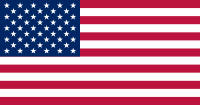
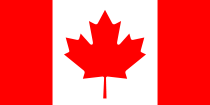
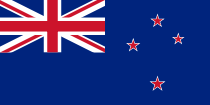


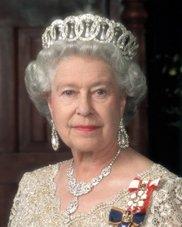
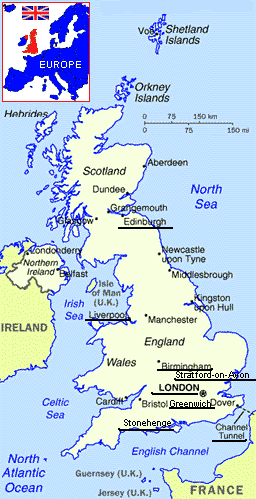
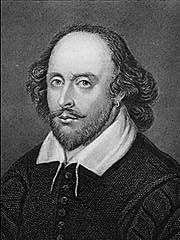 .
A world renowned writer William Shakespeare was born in this town
.
A world renowned writer William Shakespeare was born in this town
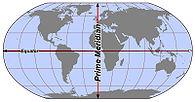

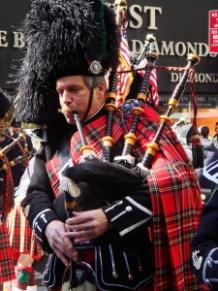 .
It is the capital of the part of Great Britain where bagpipes are
played
.
It is the capital of the part of Great Britain where bagpipes are
played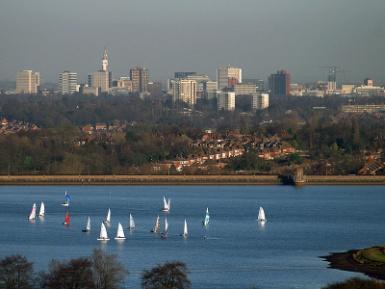 f
population
f
population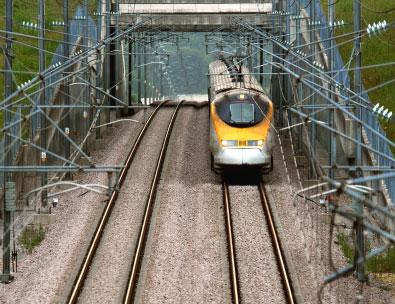
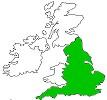
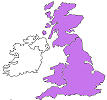

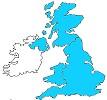
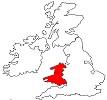
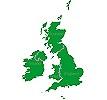
 auses
auses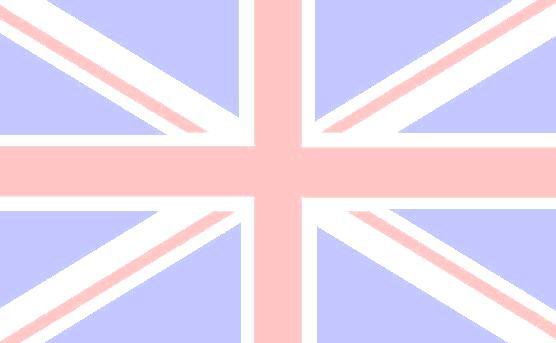


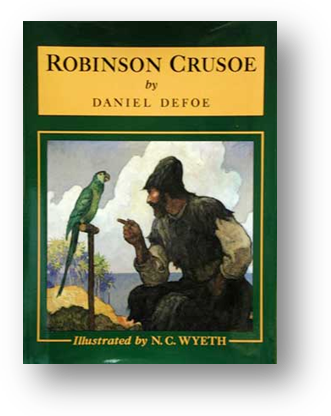
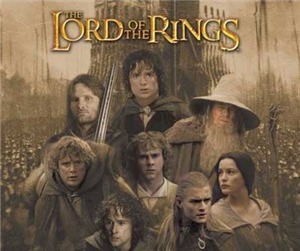

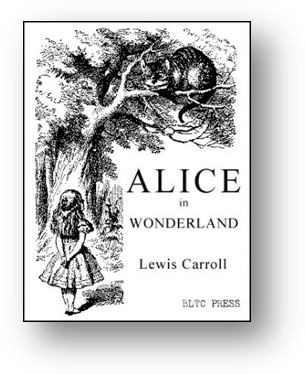
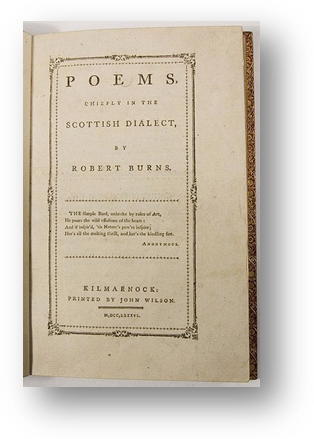

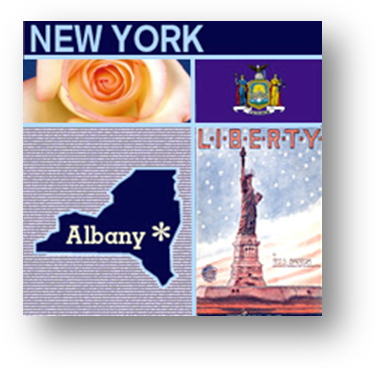

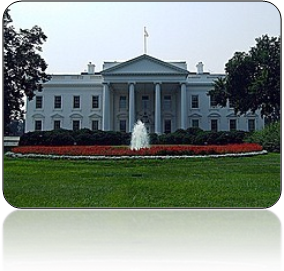
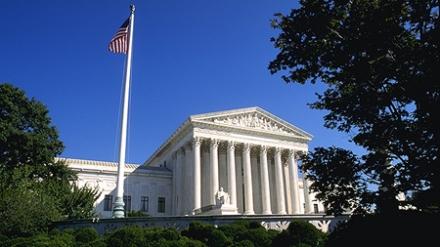

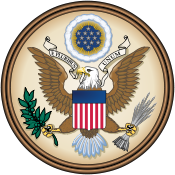

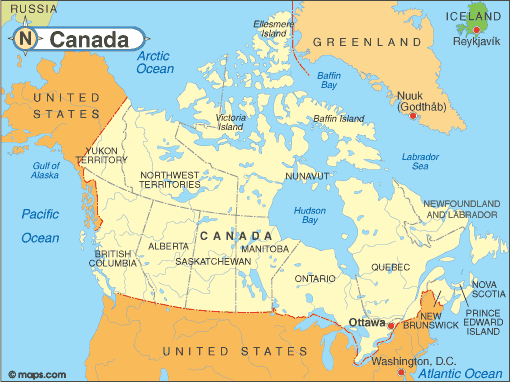
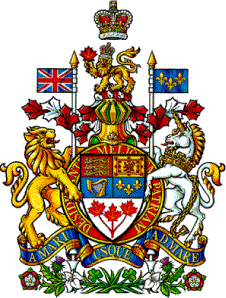 _
_ _ _ w
_
_
_ _ _ w
_